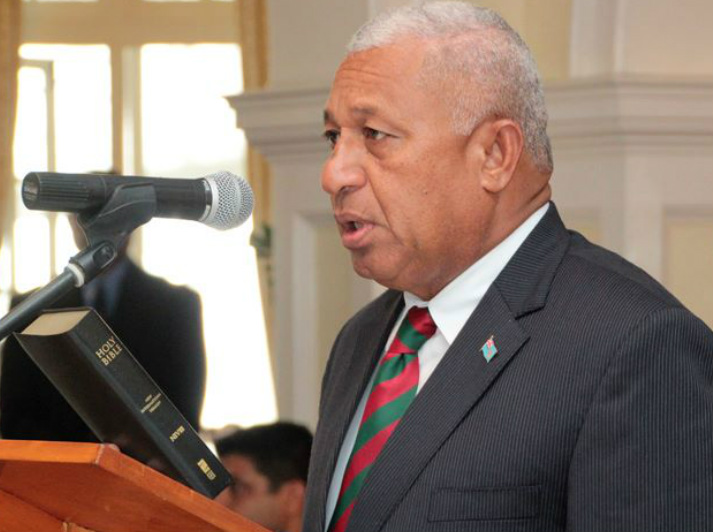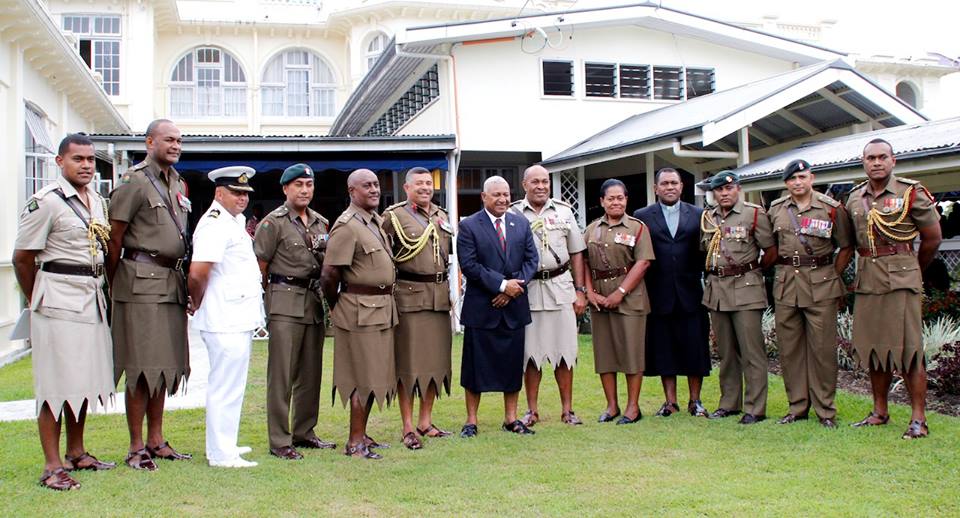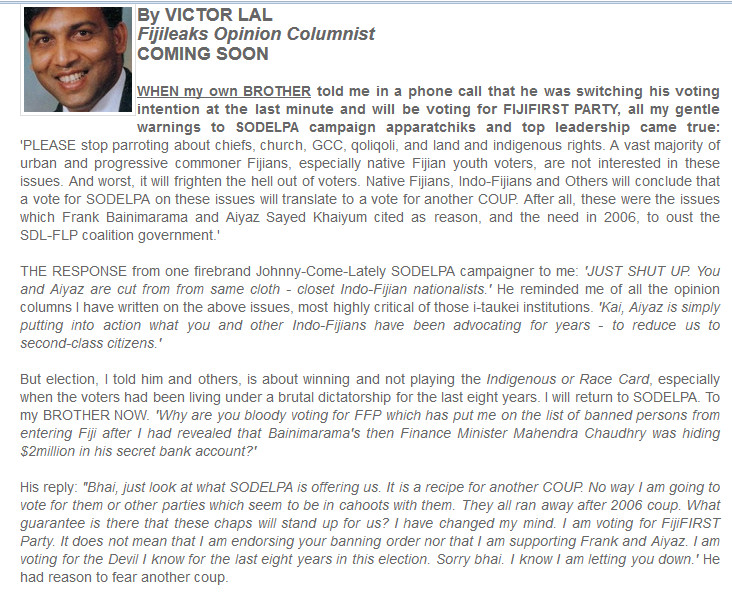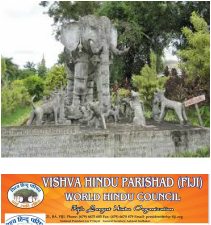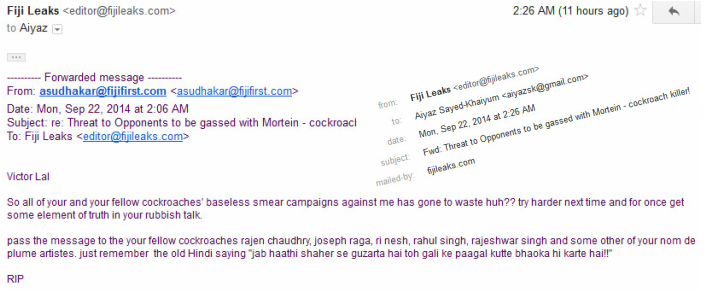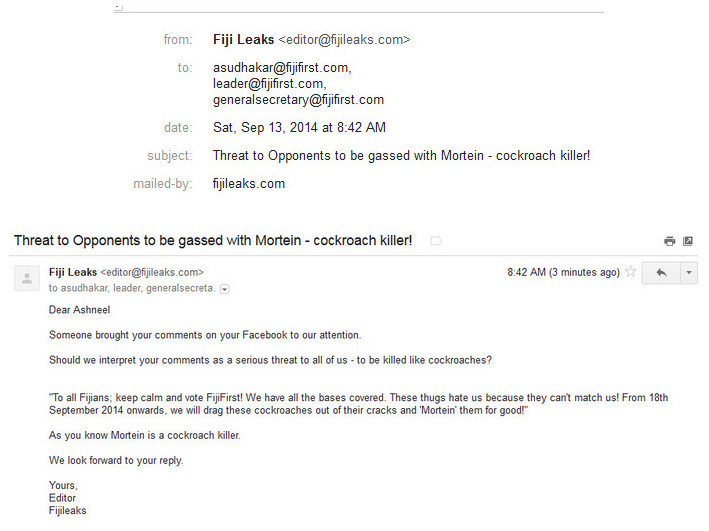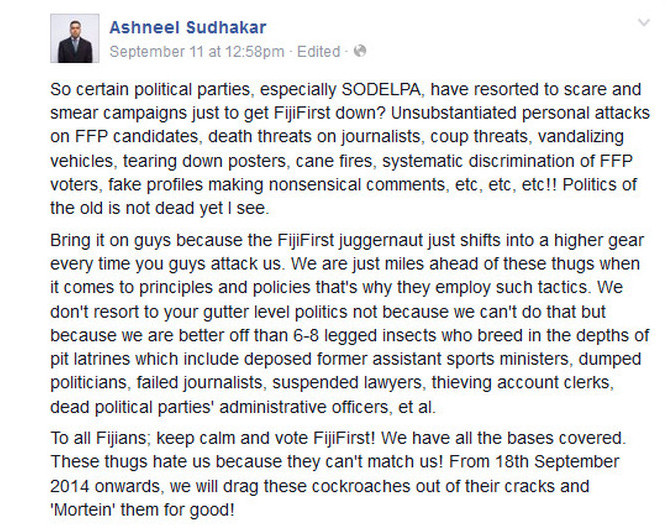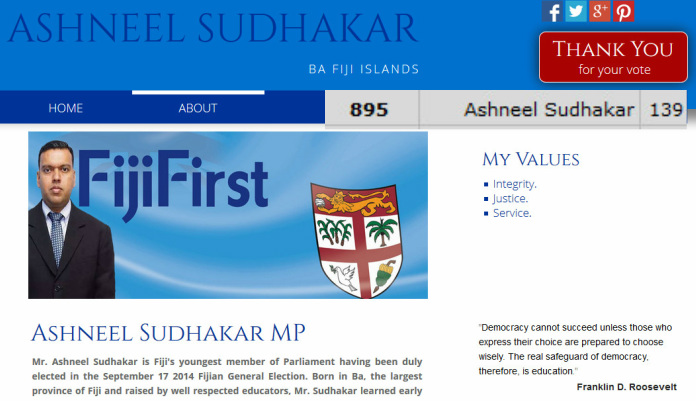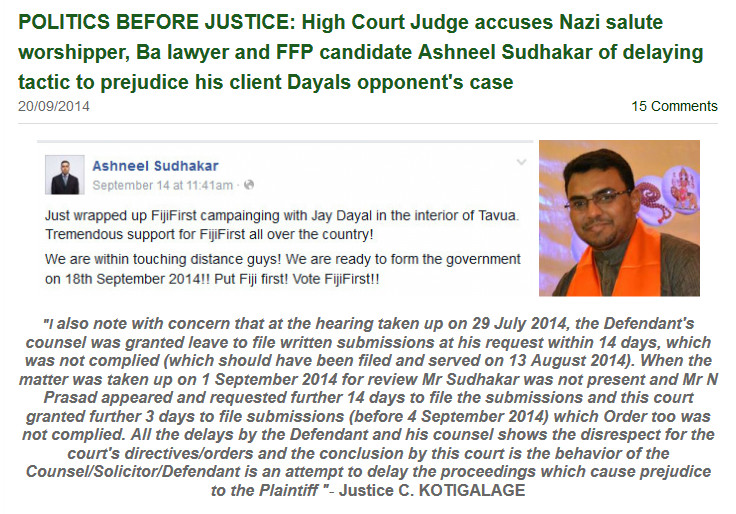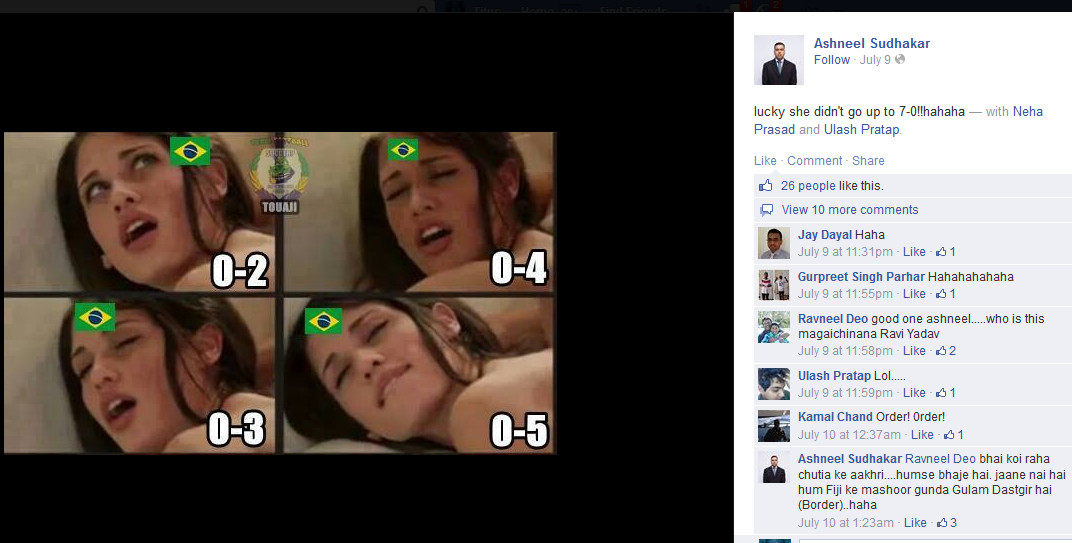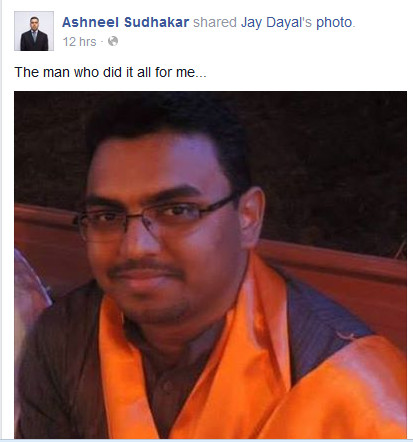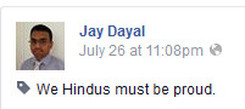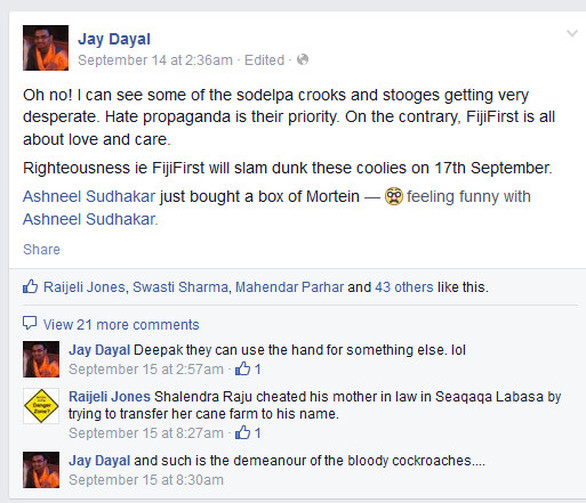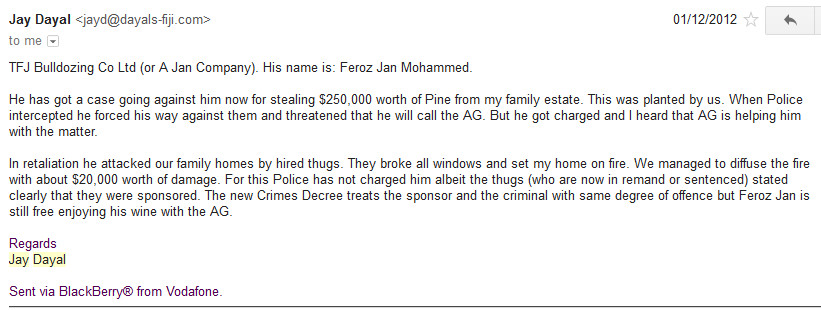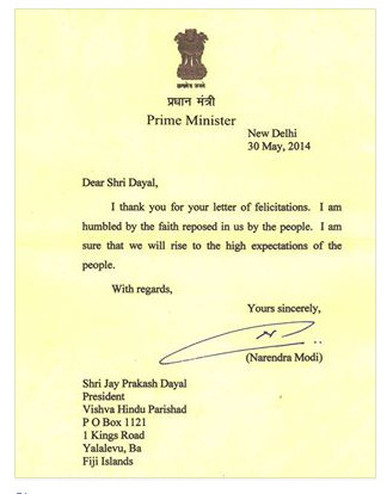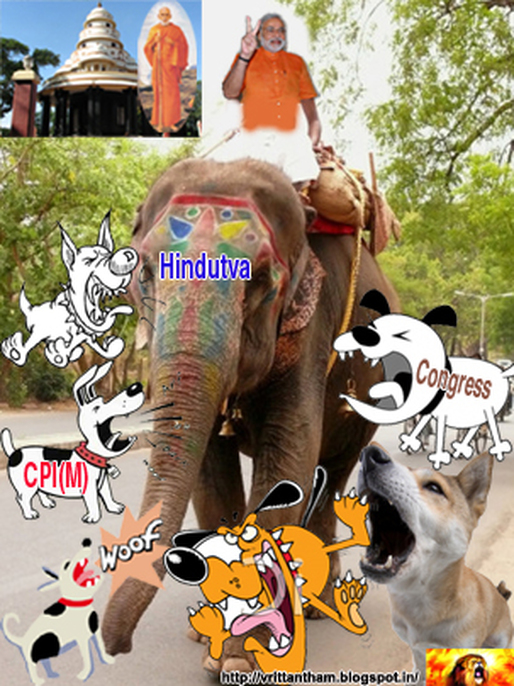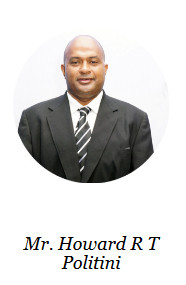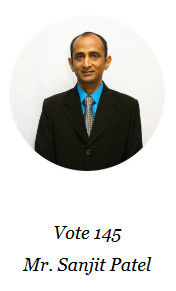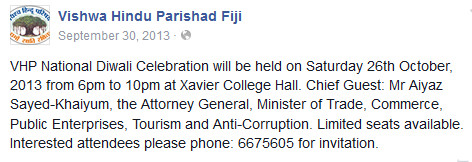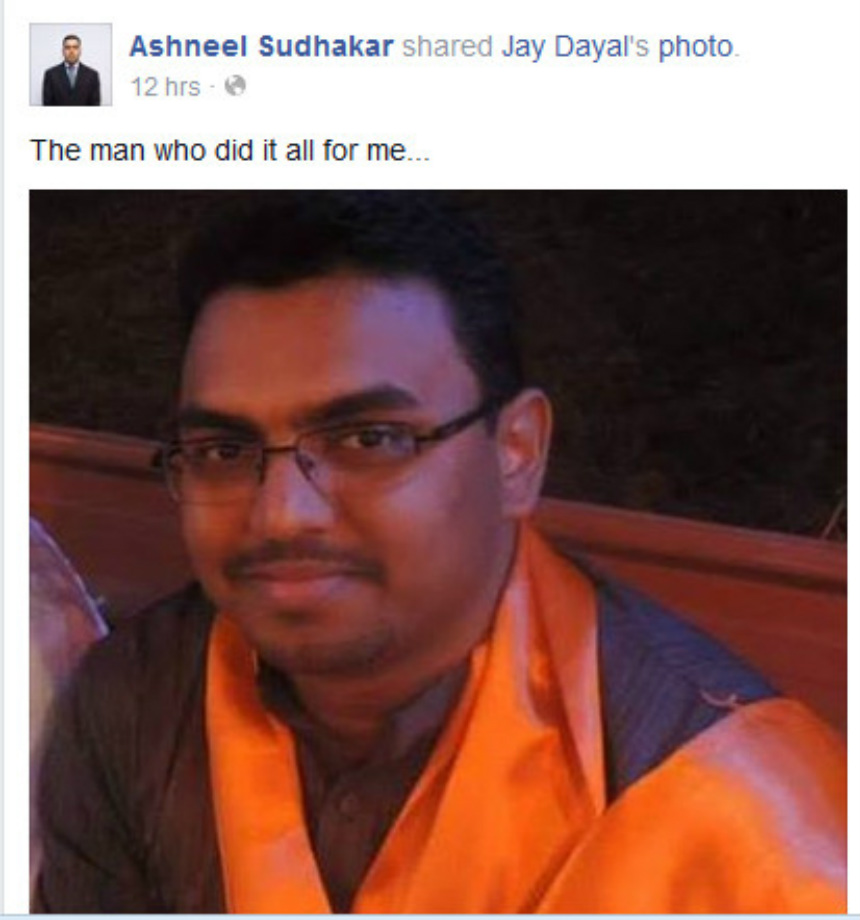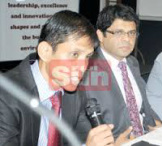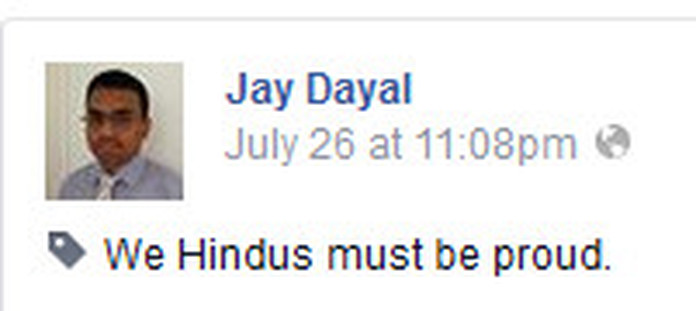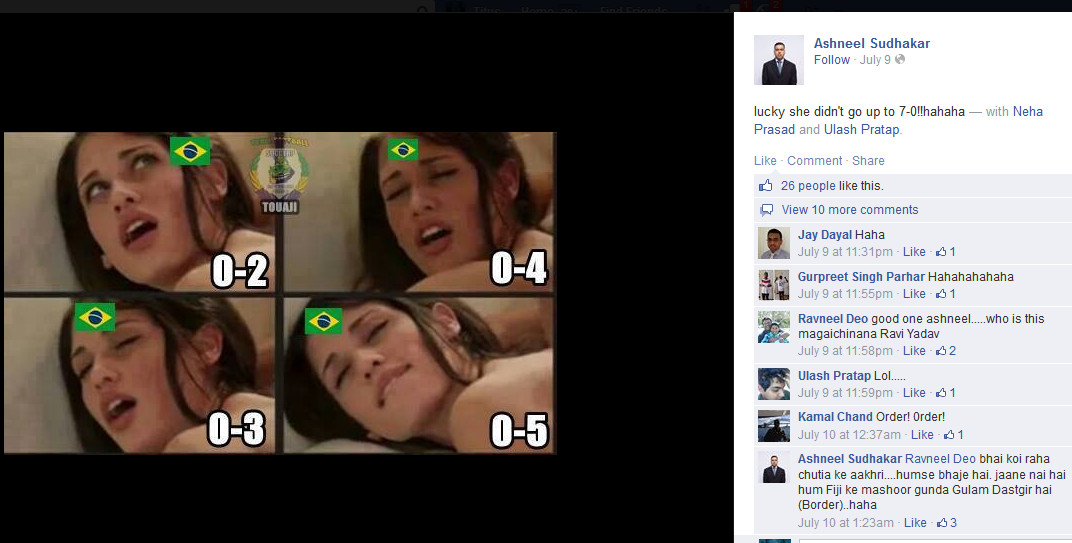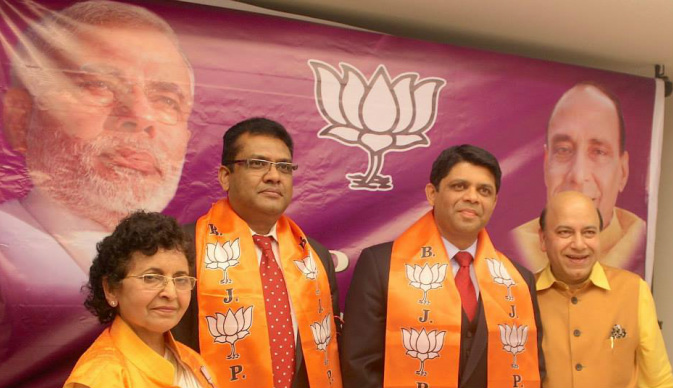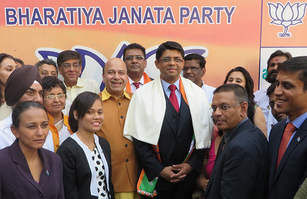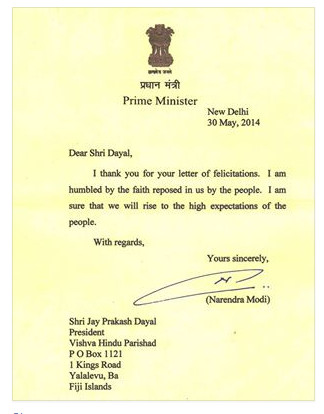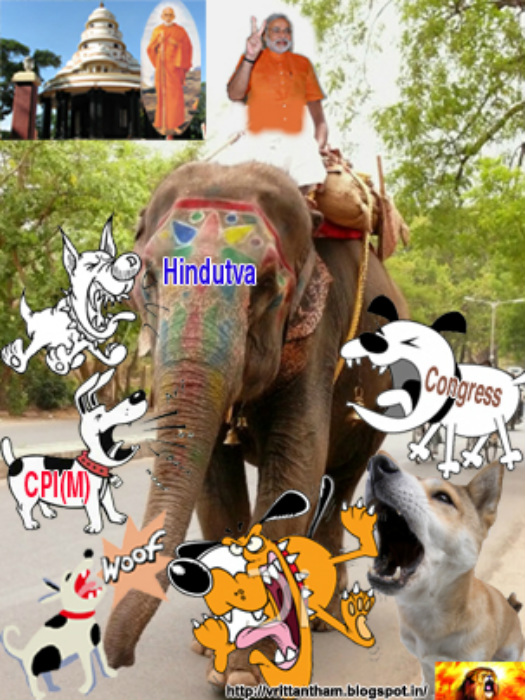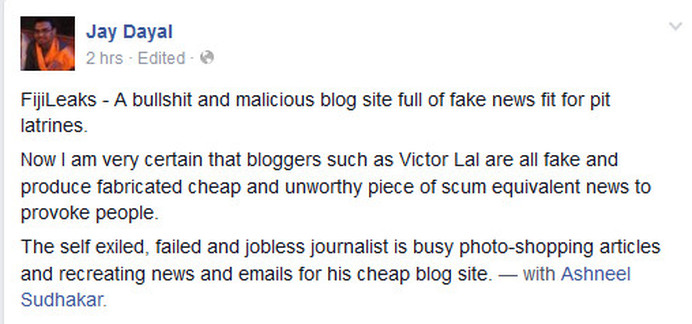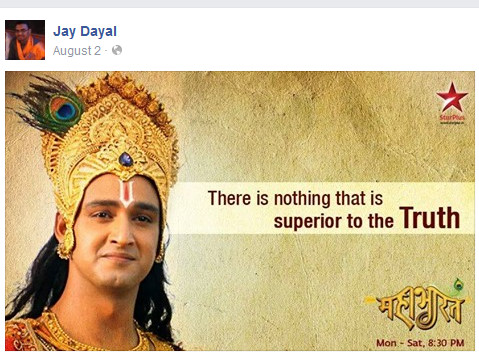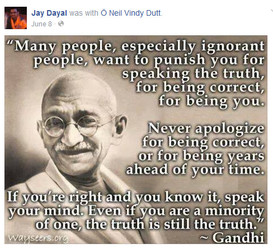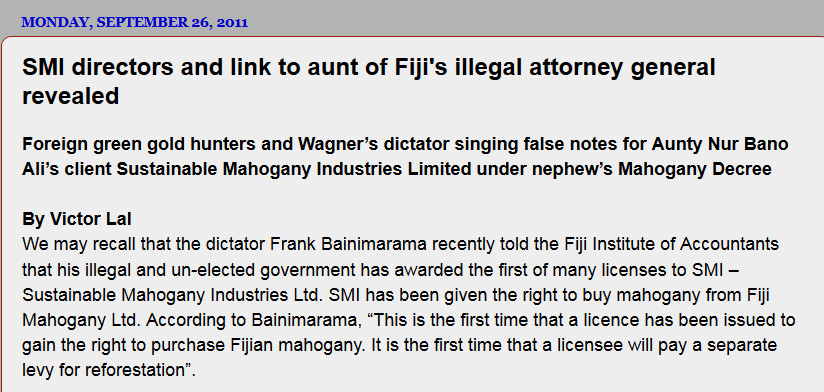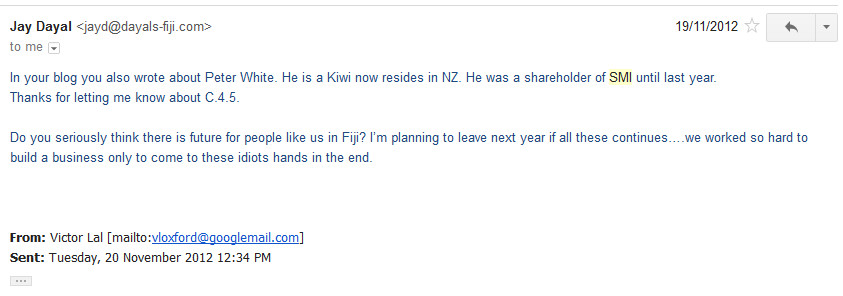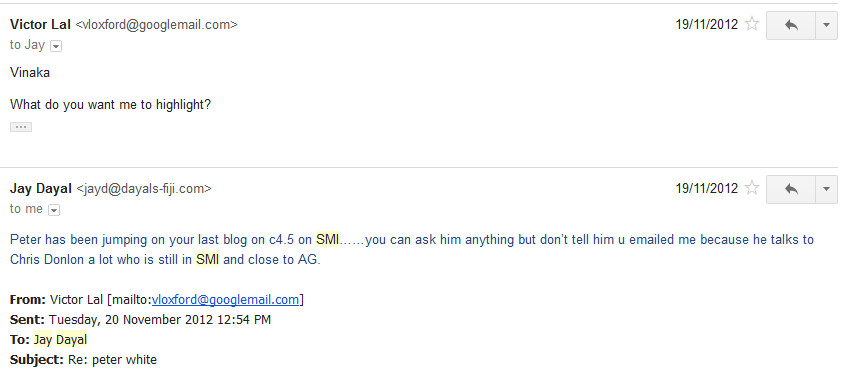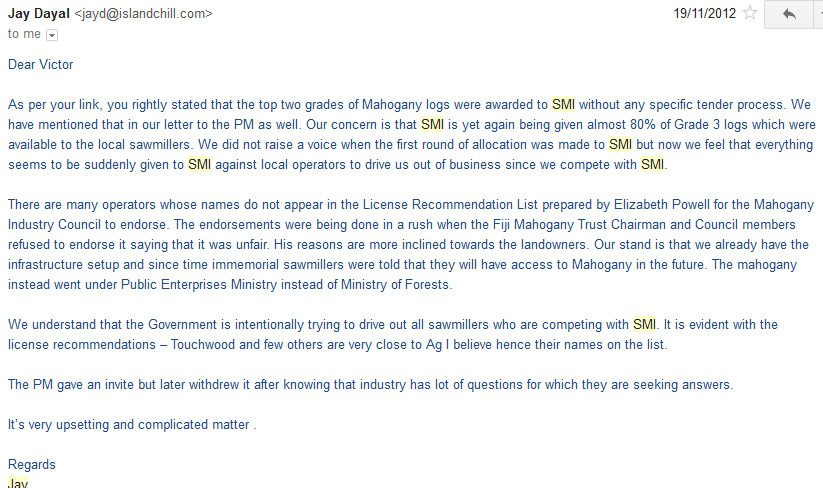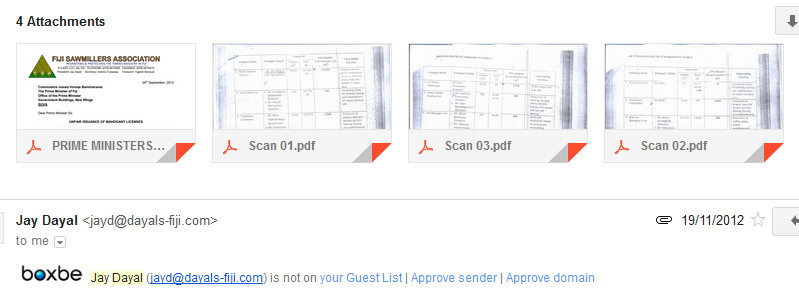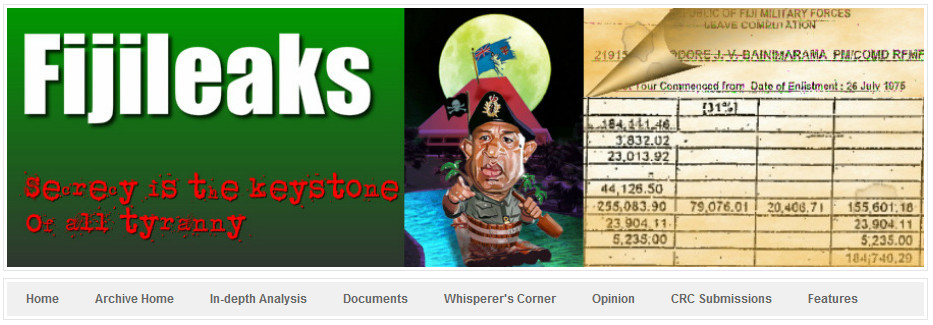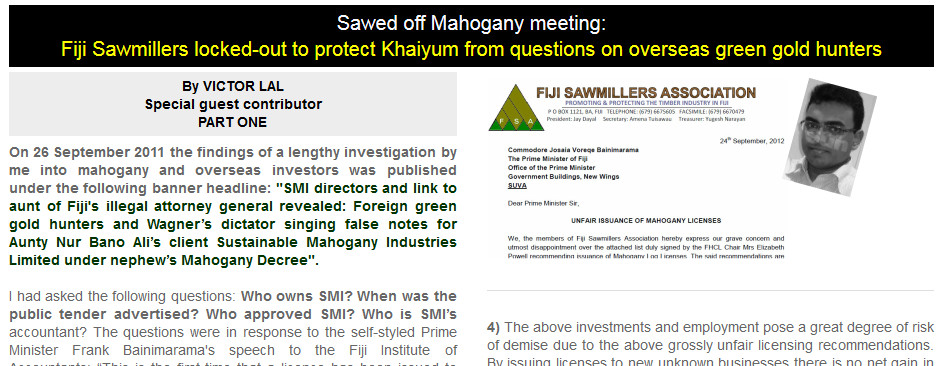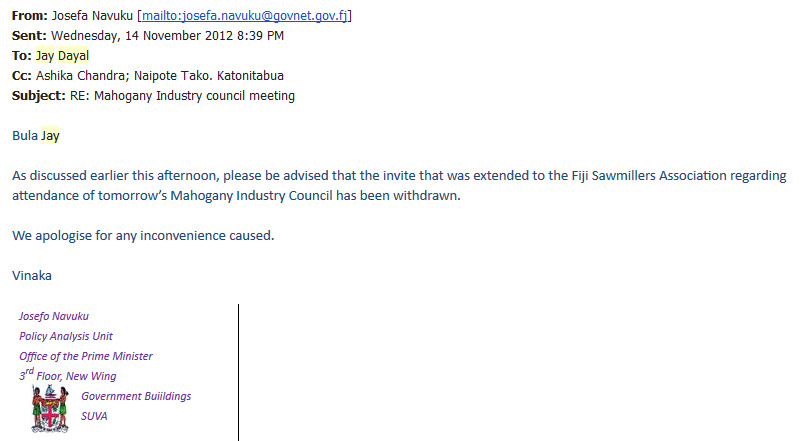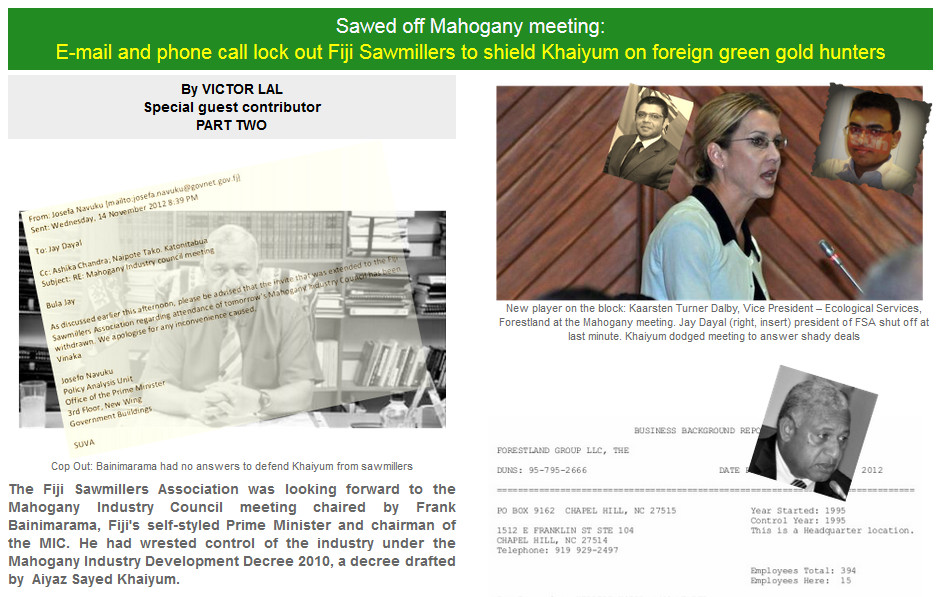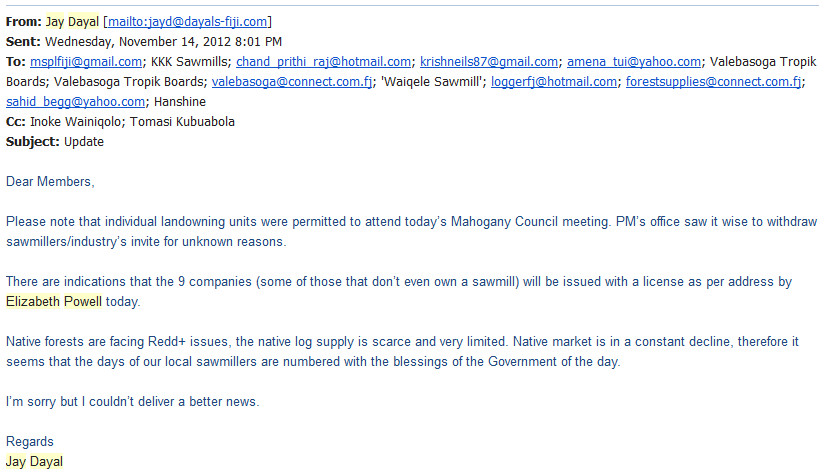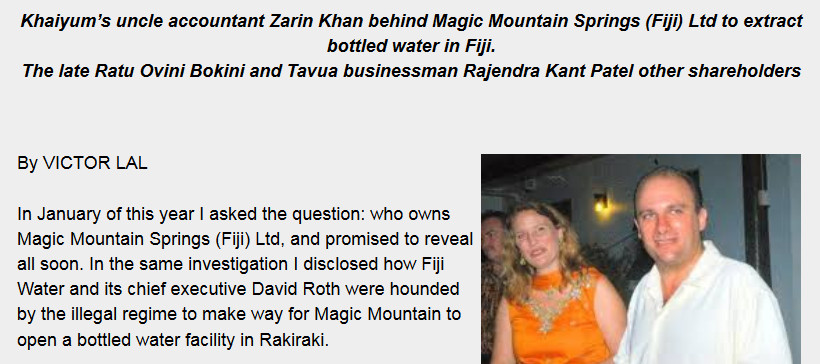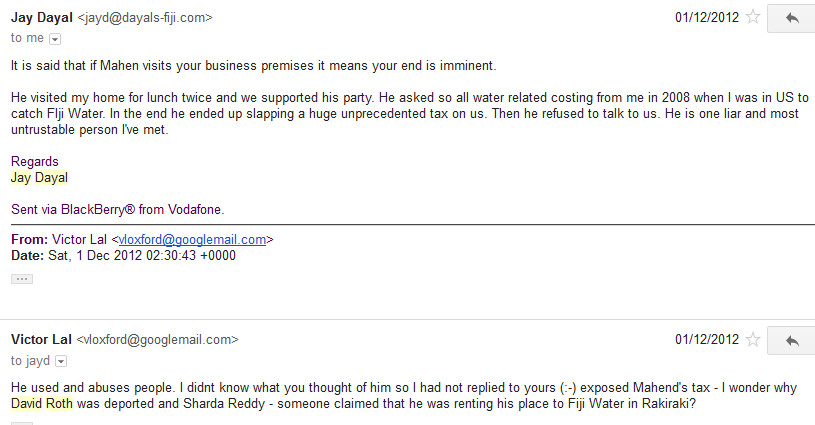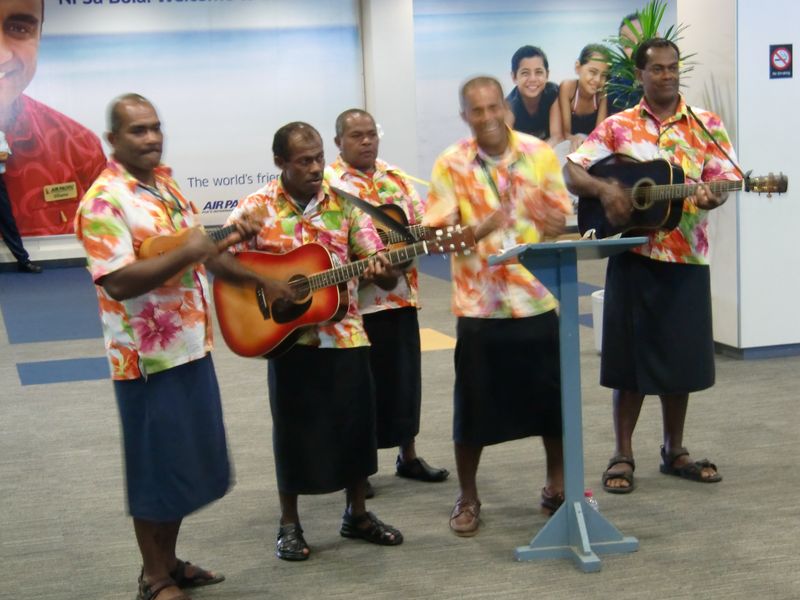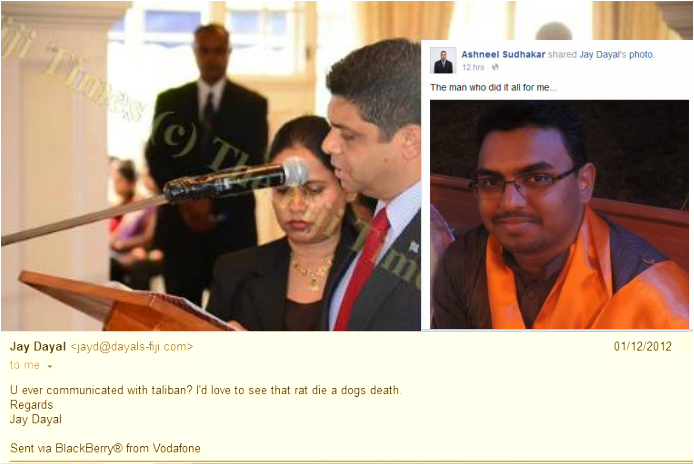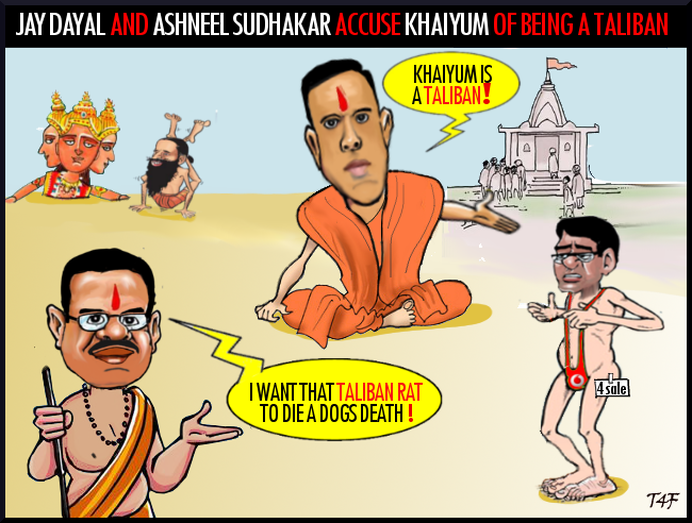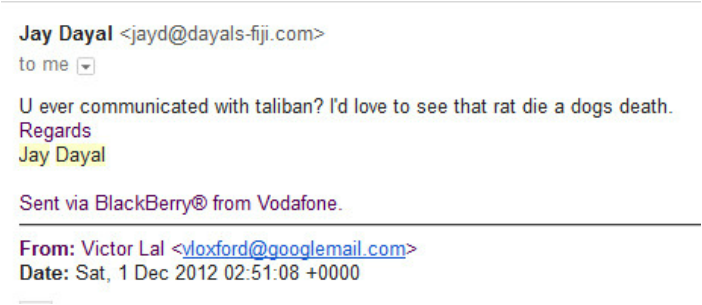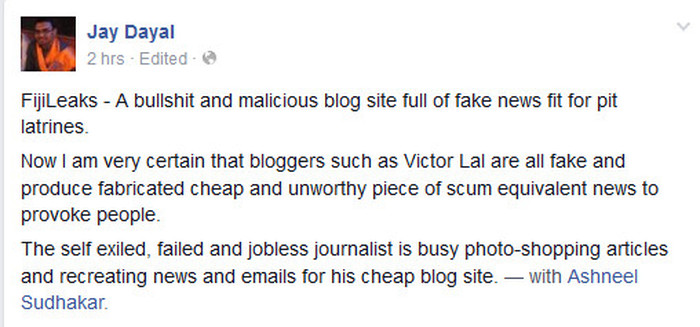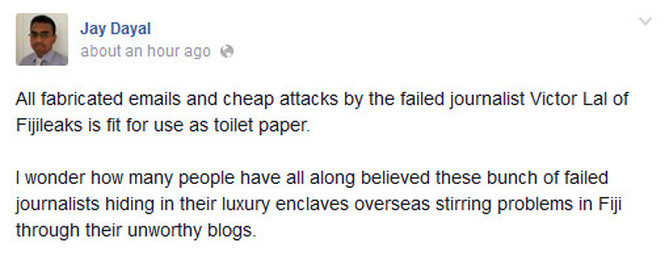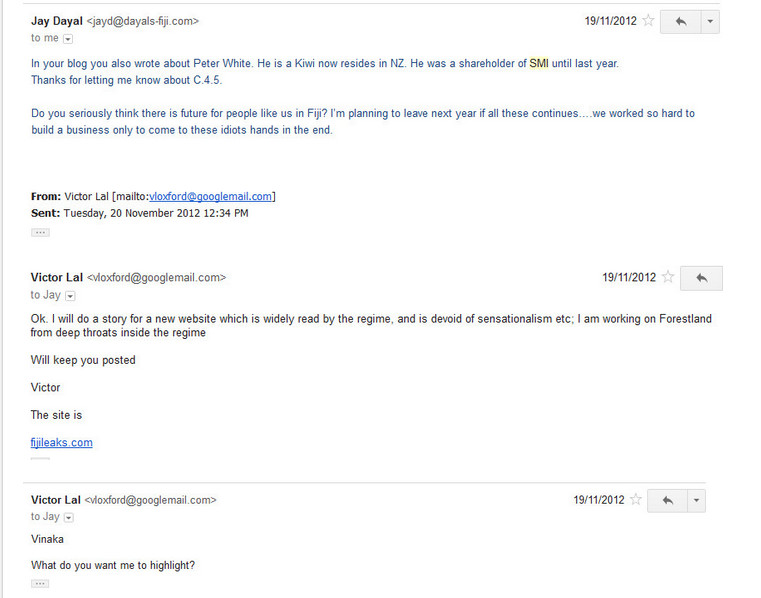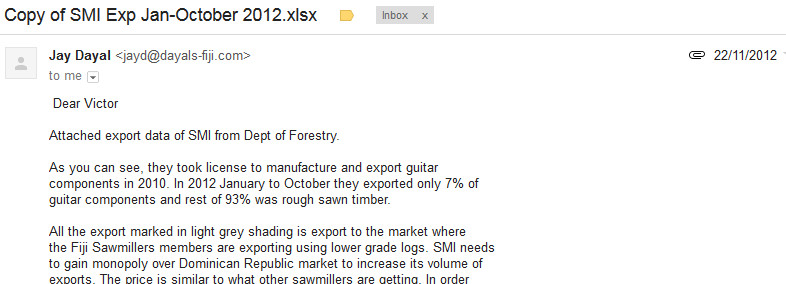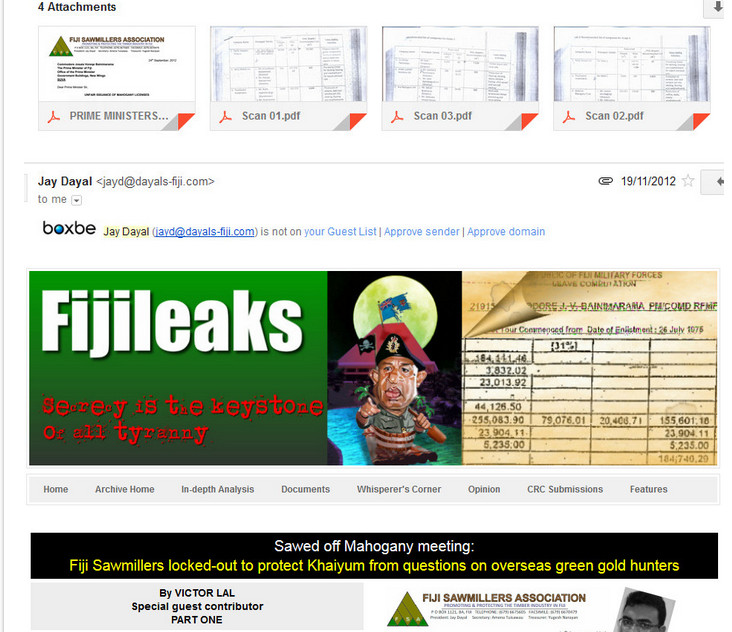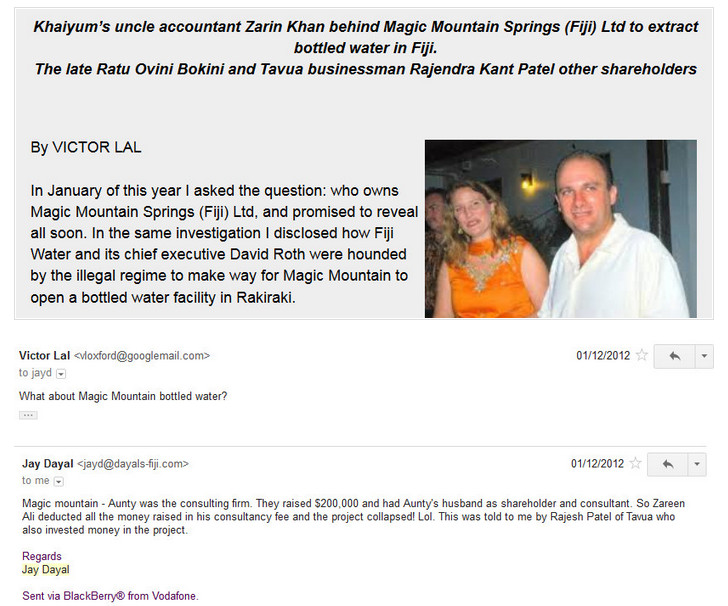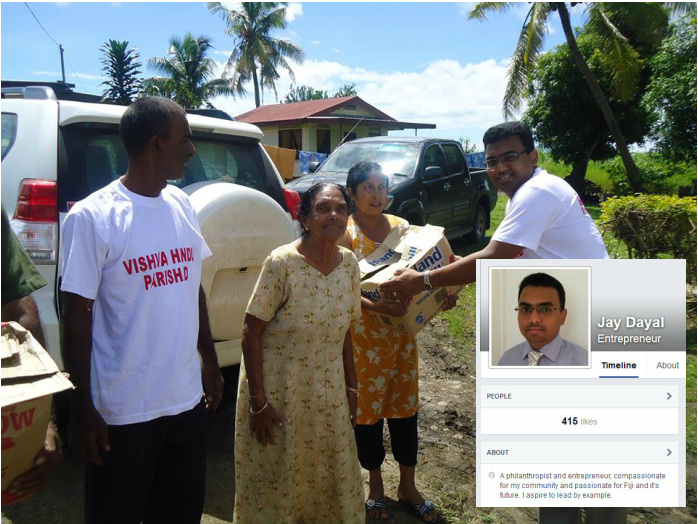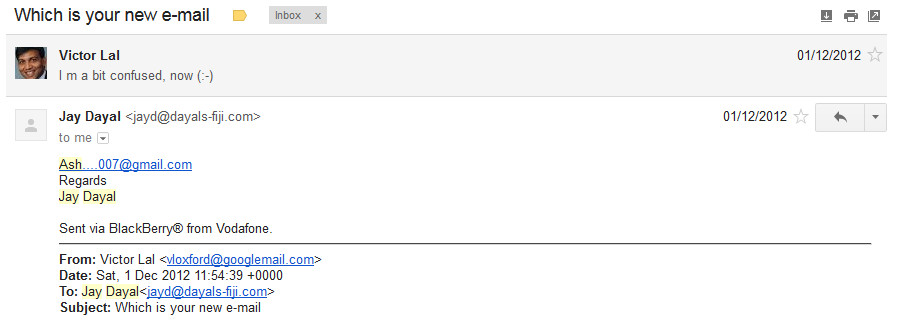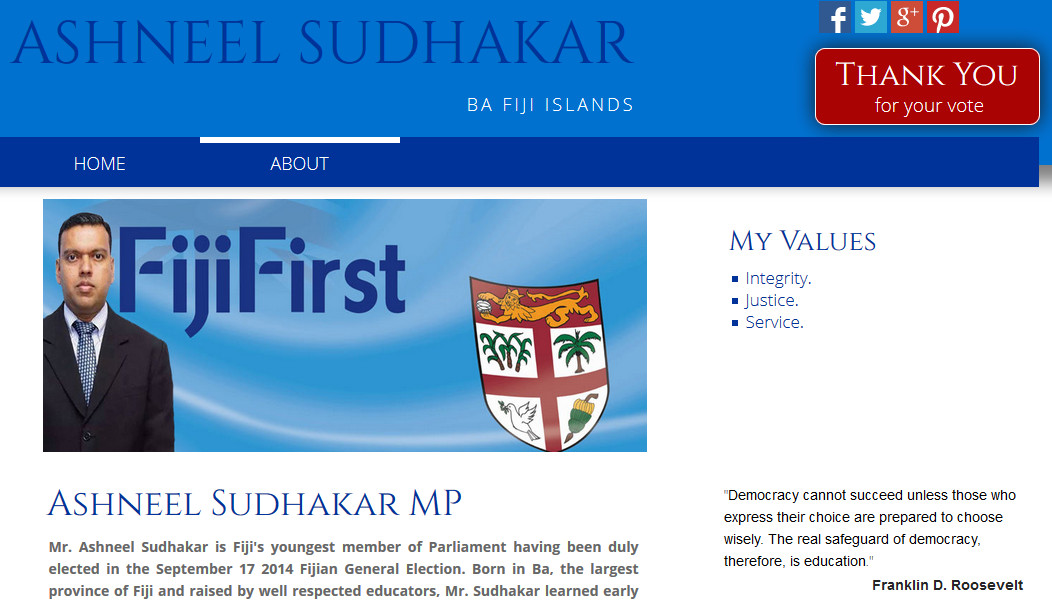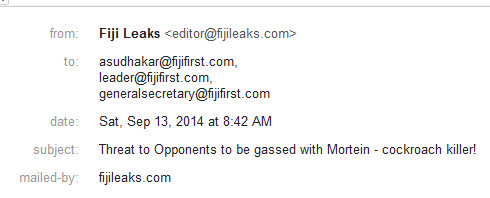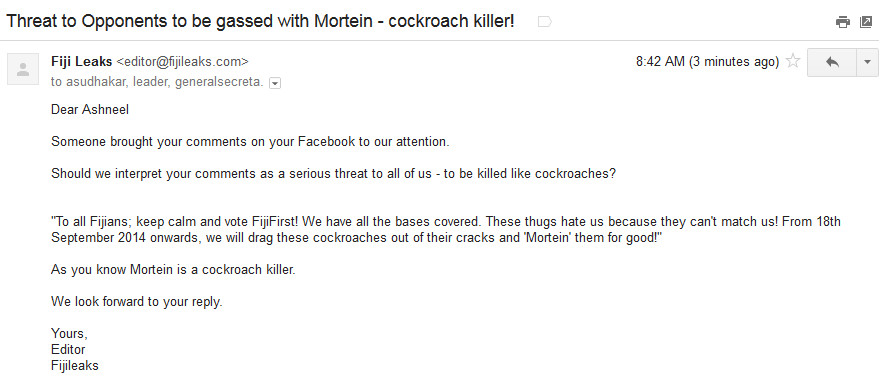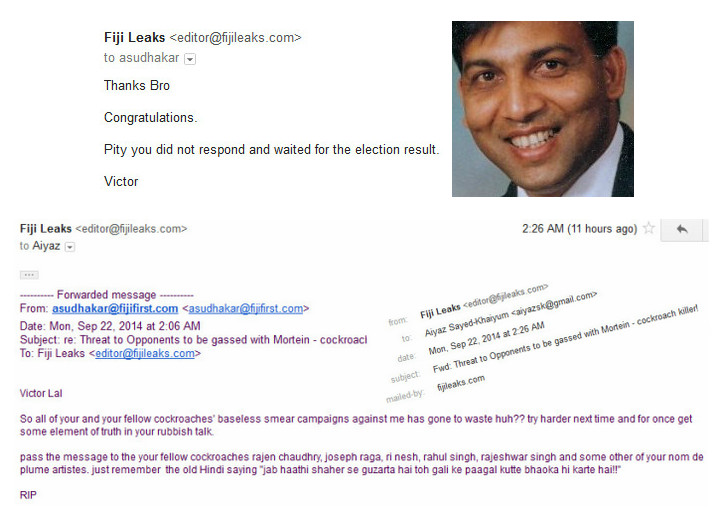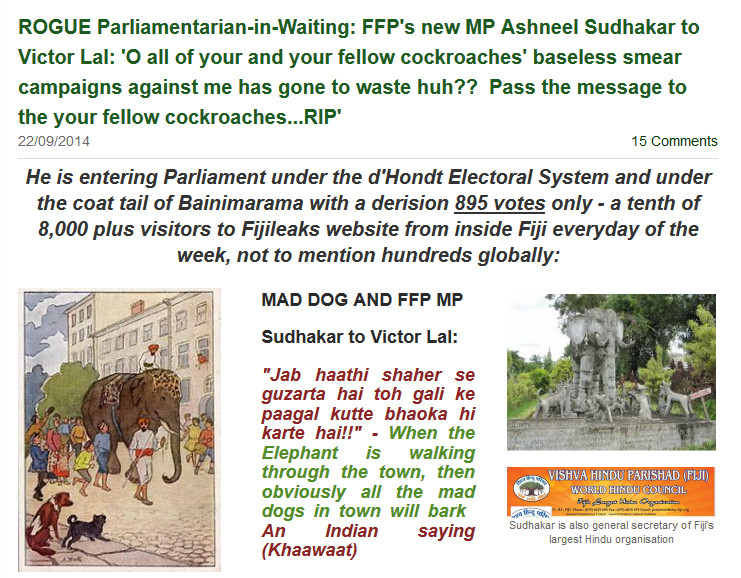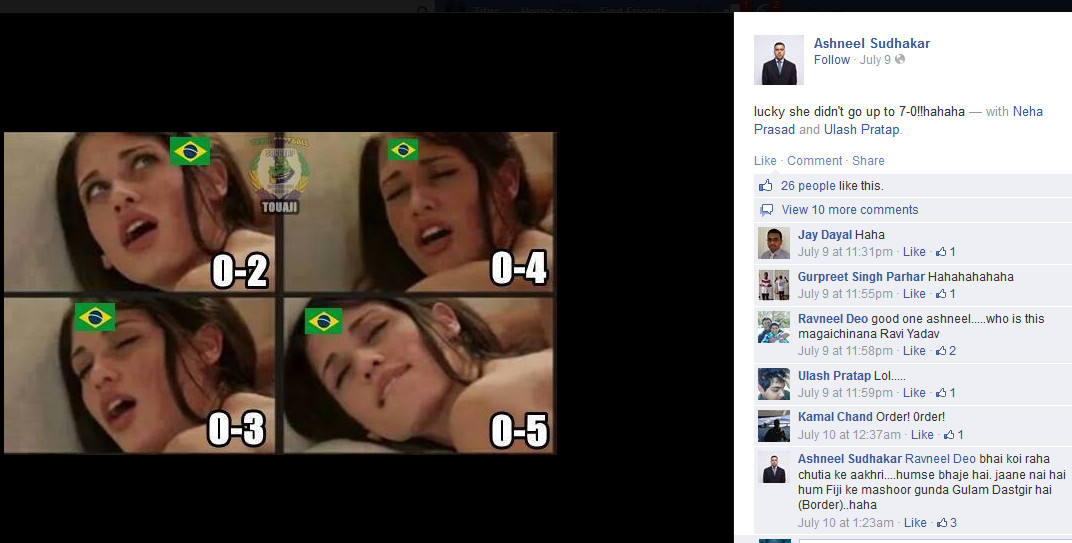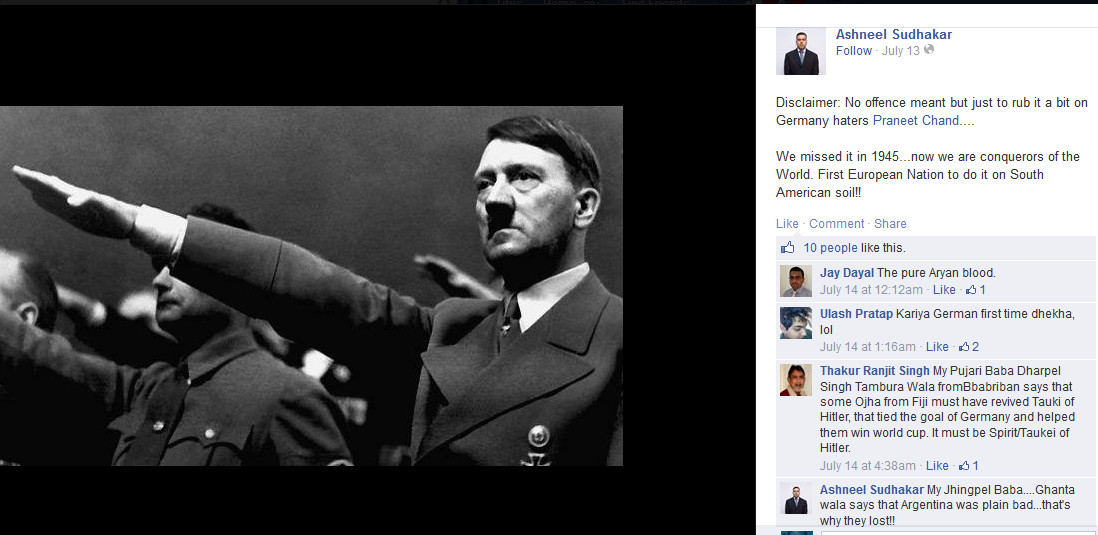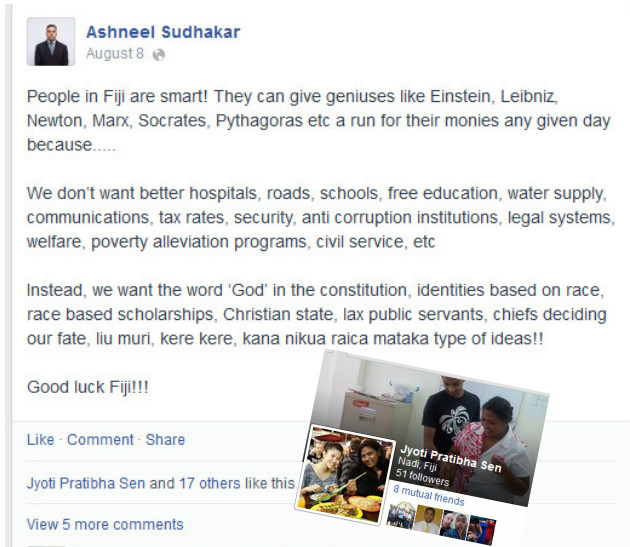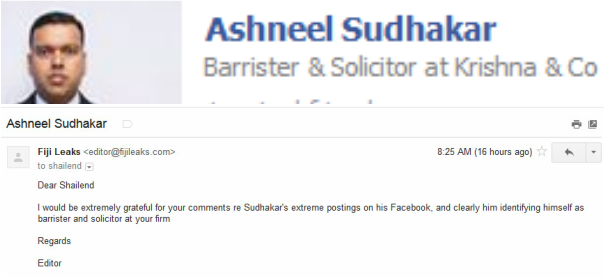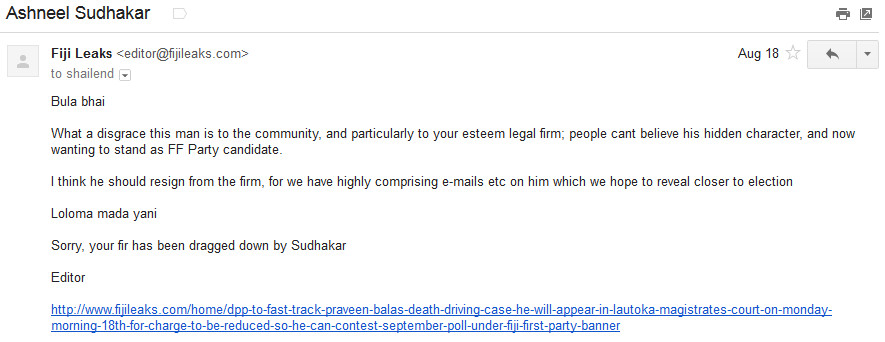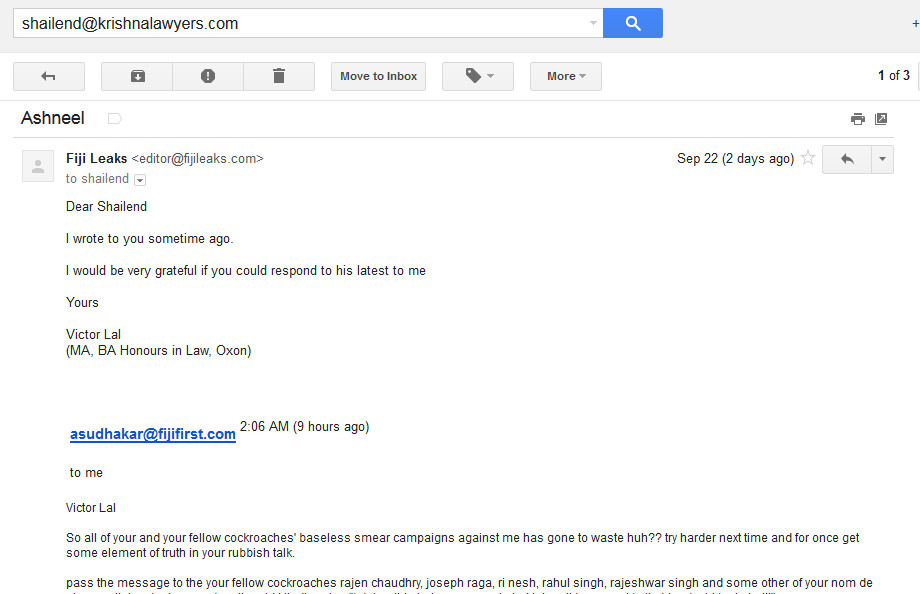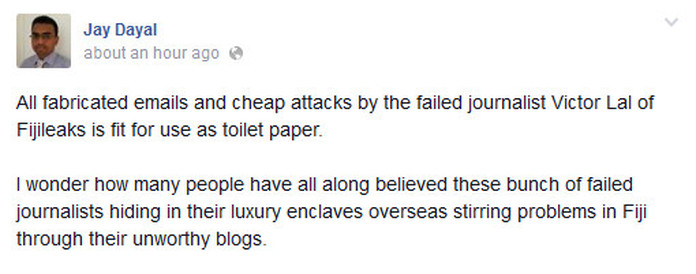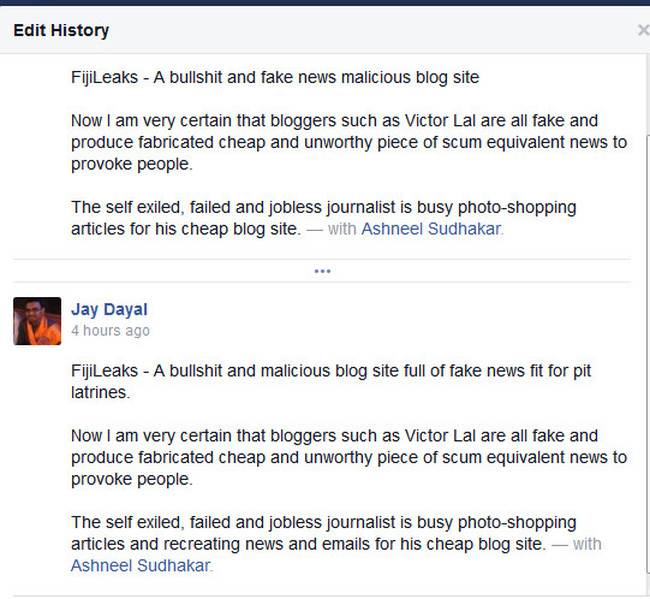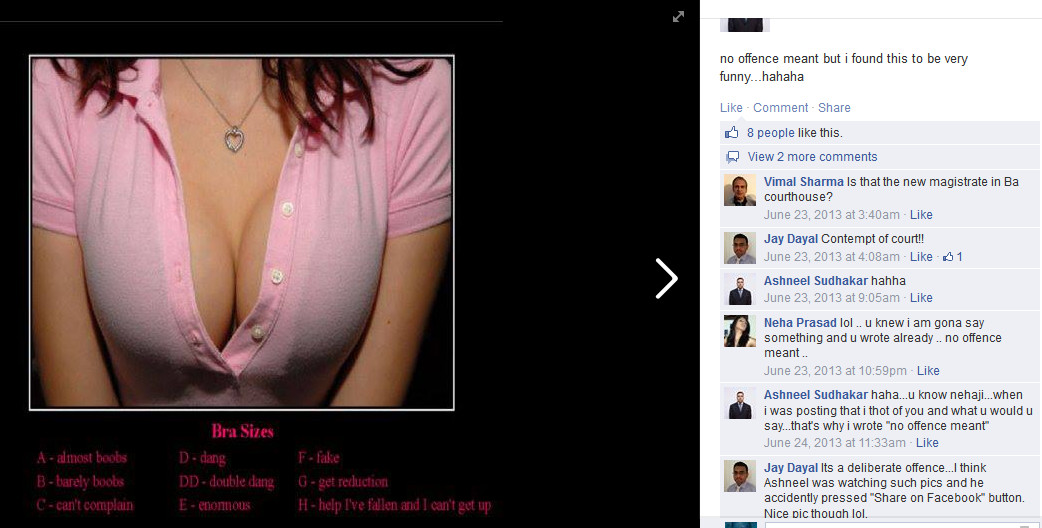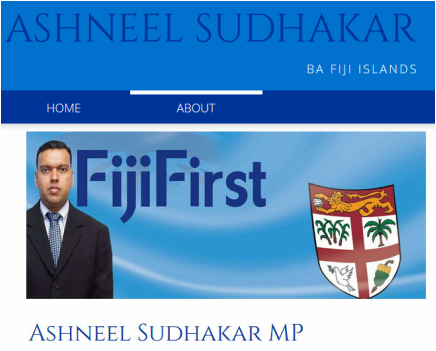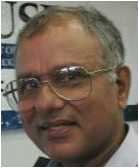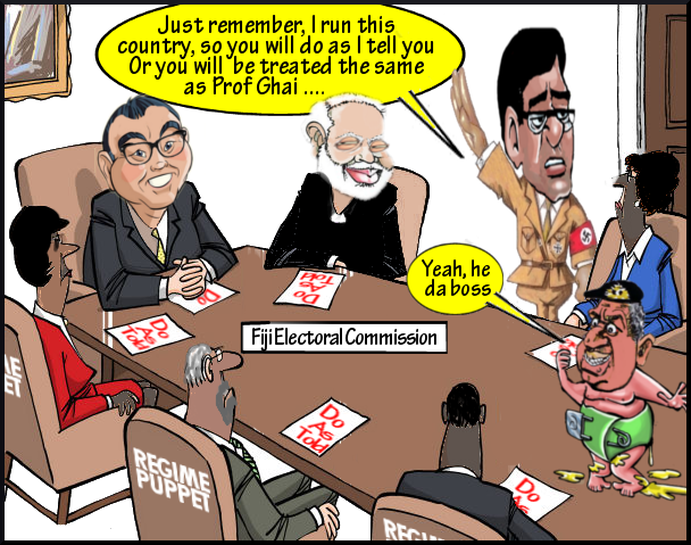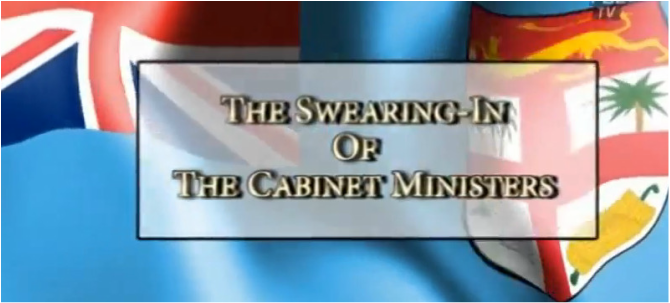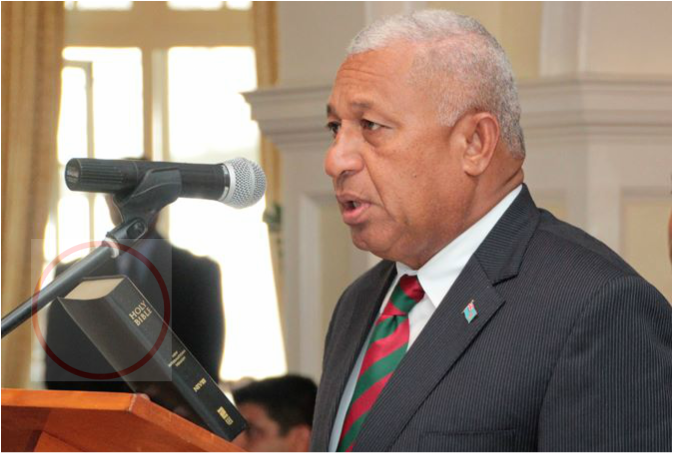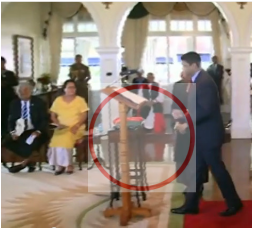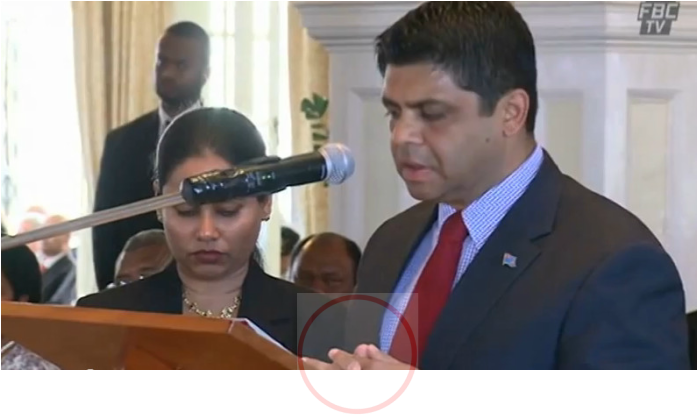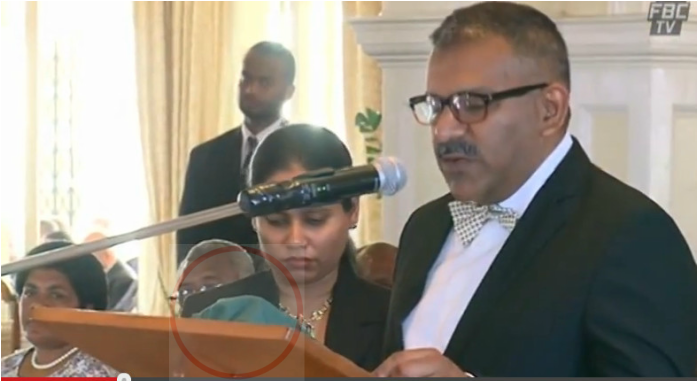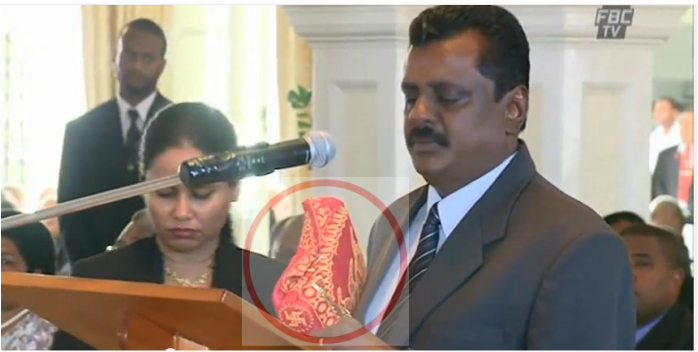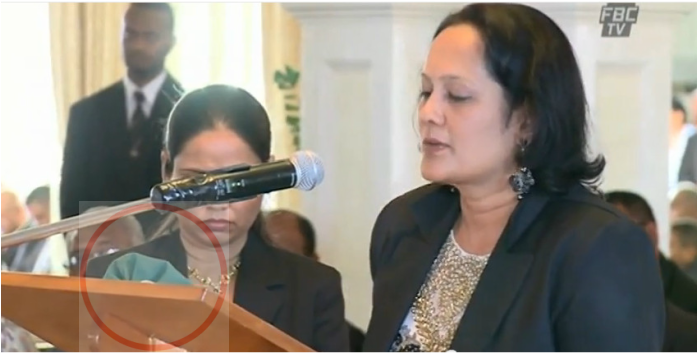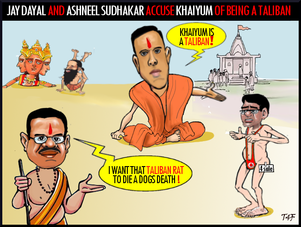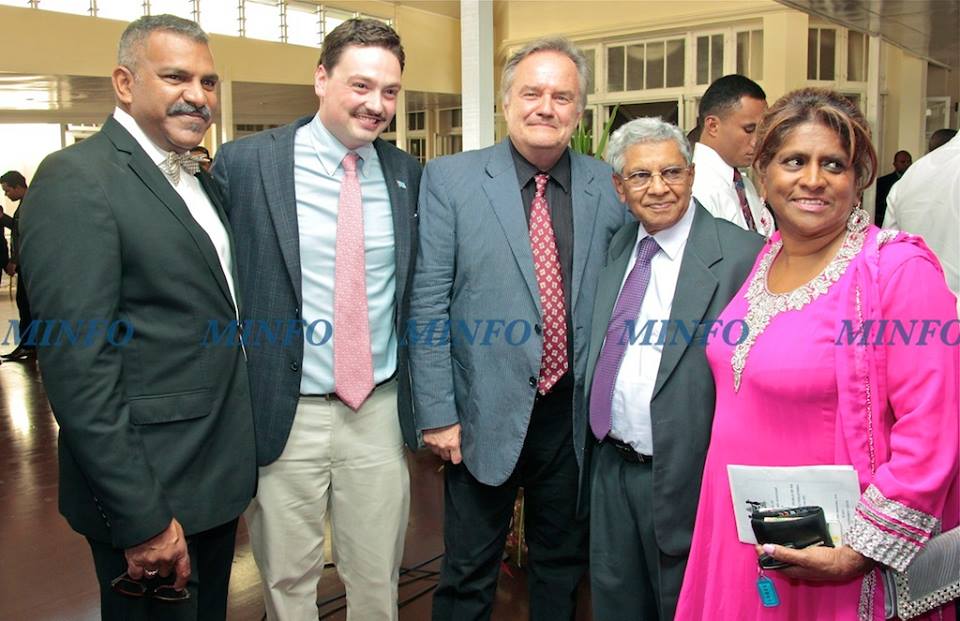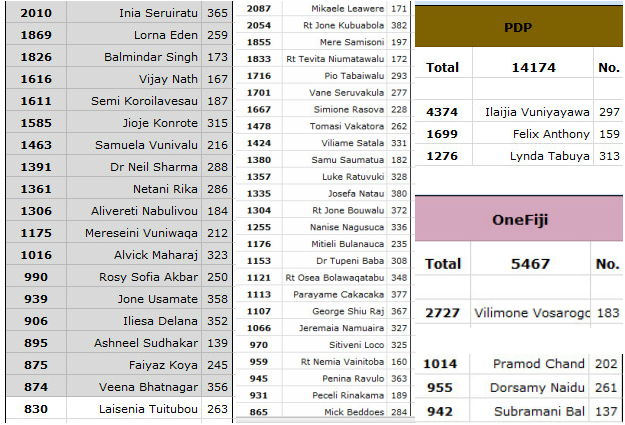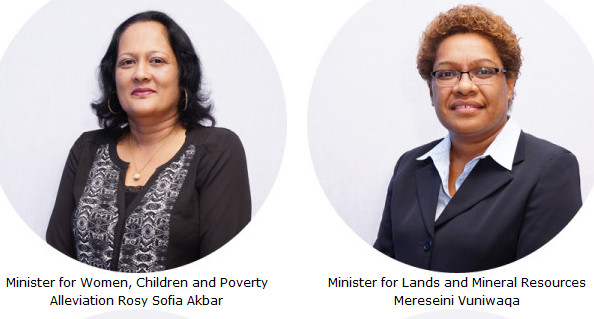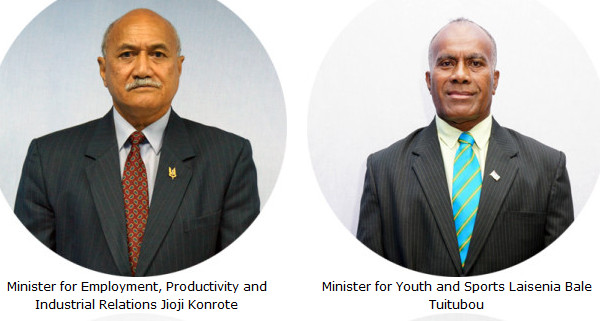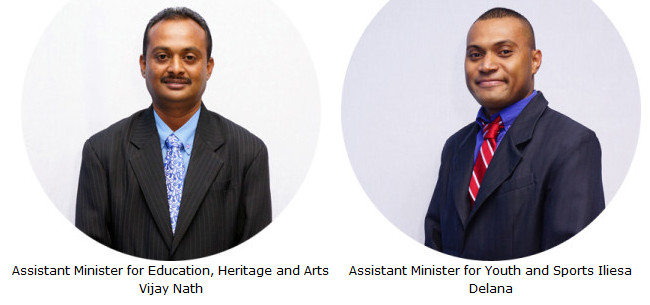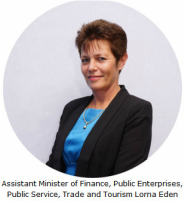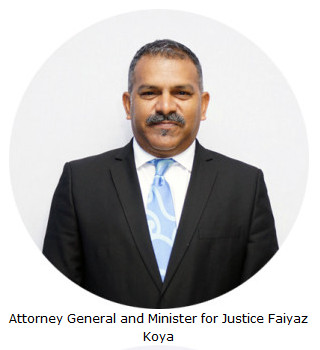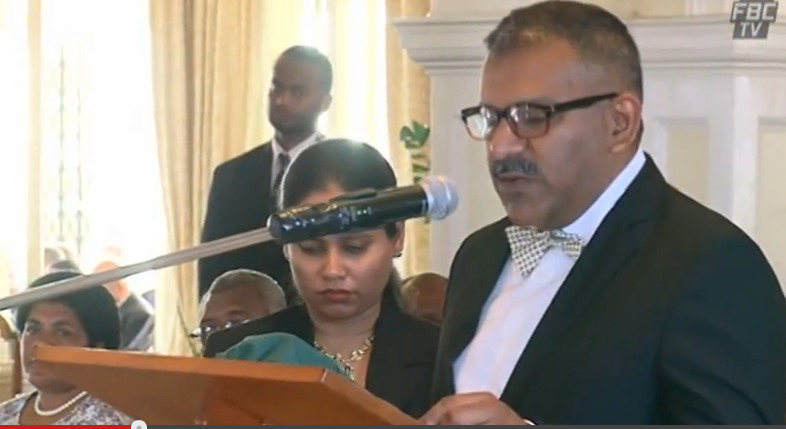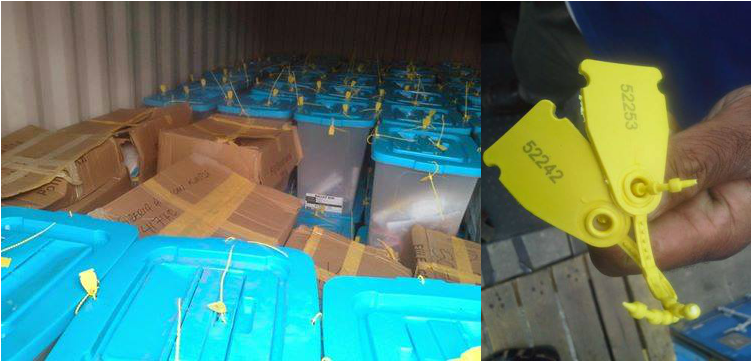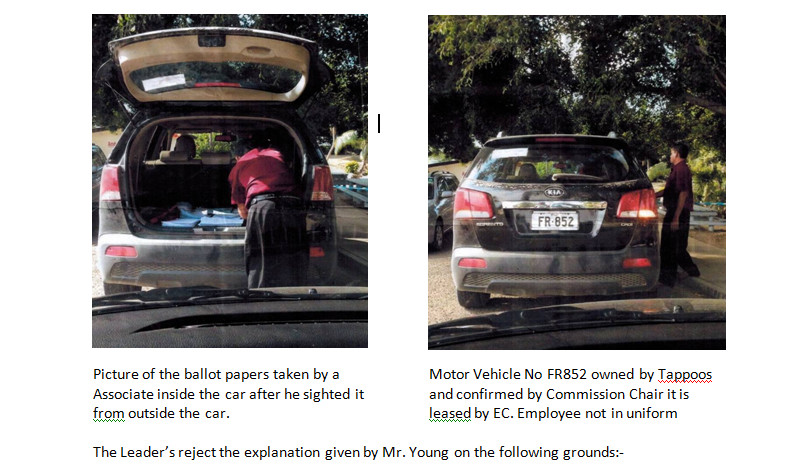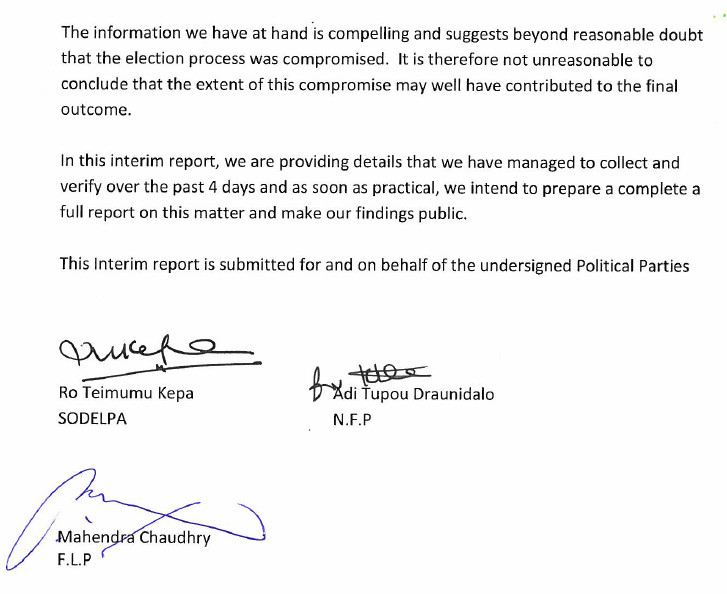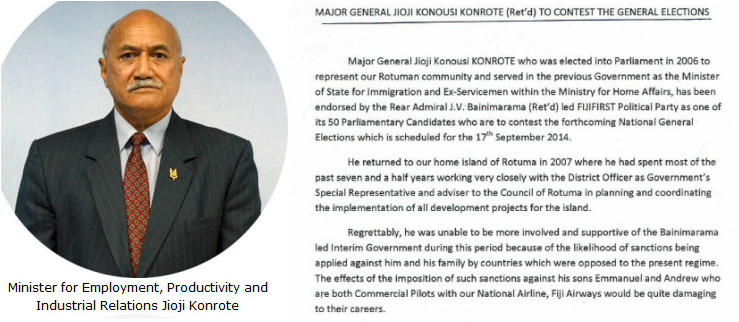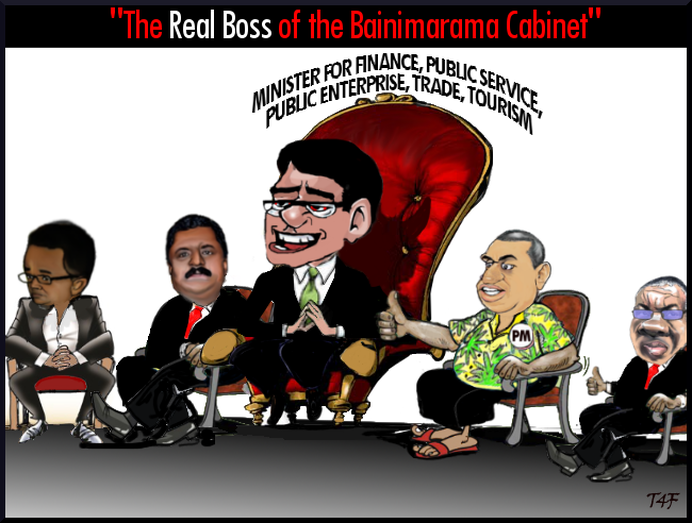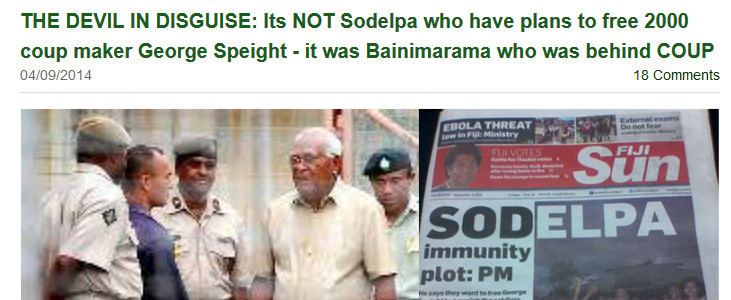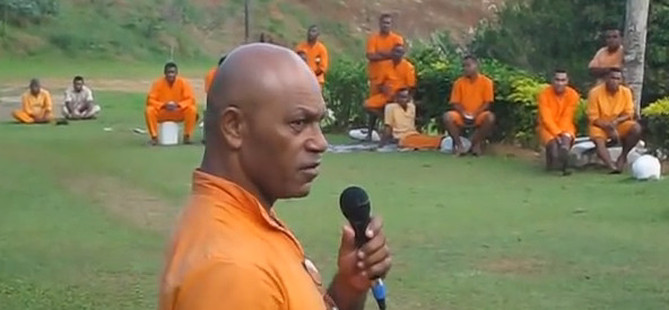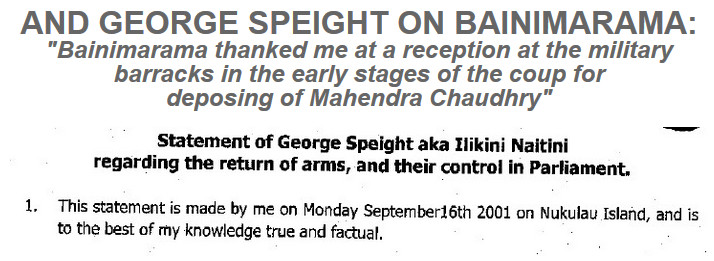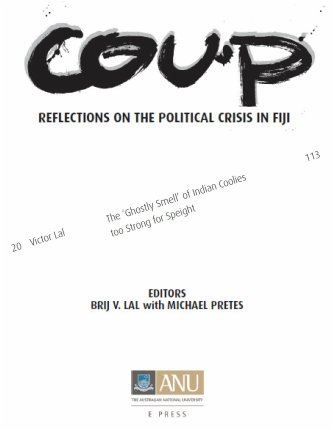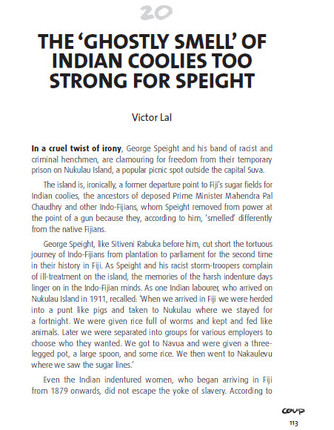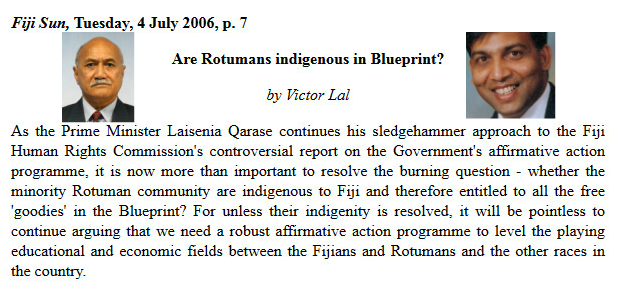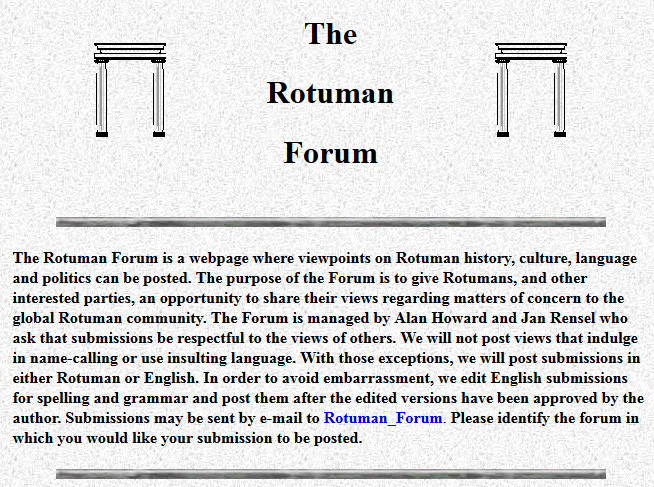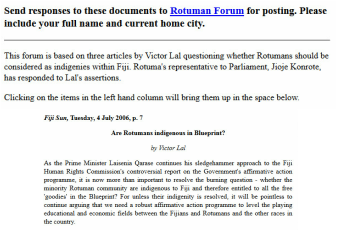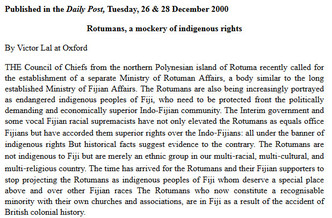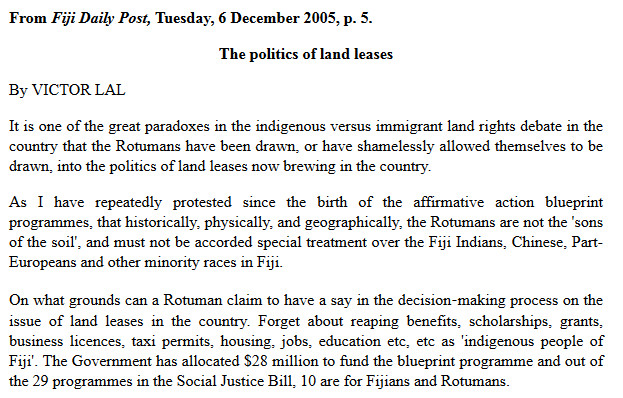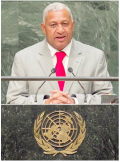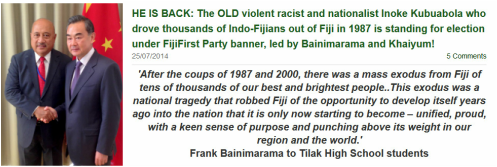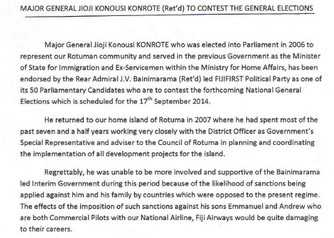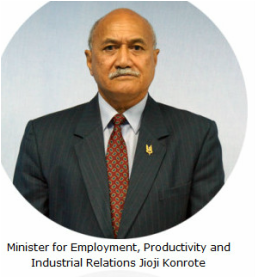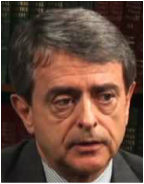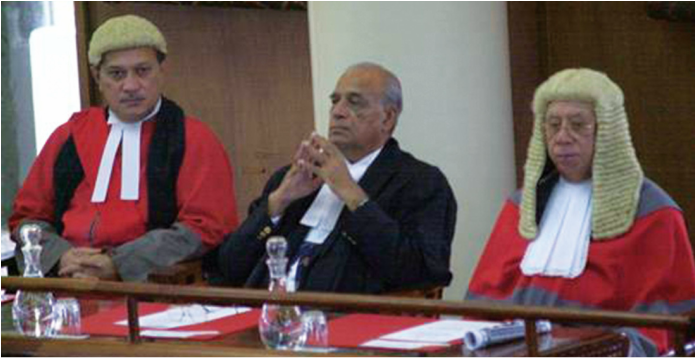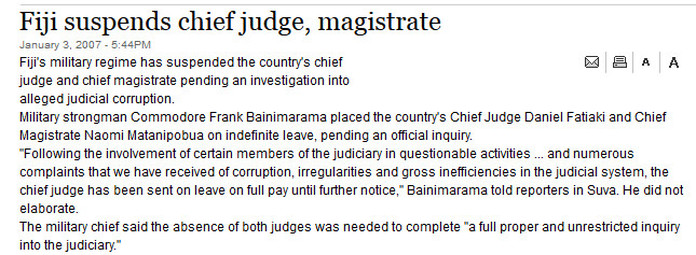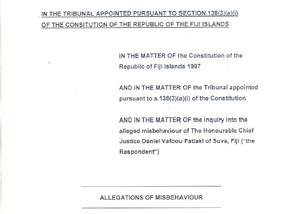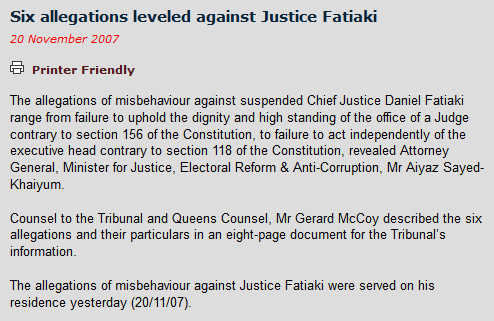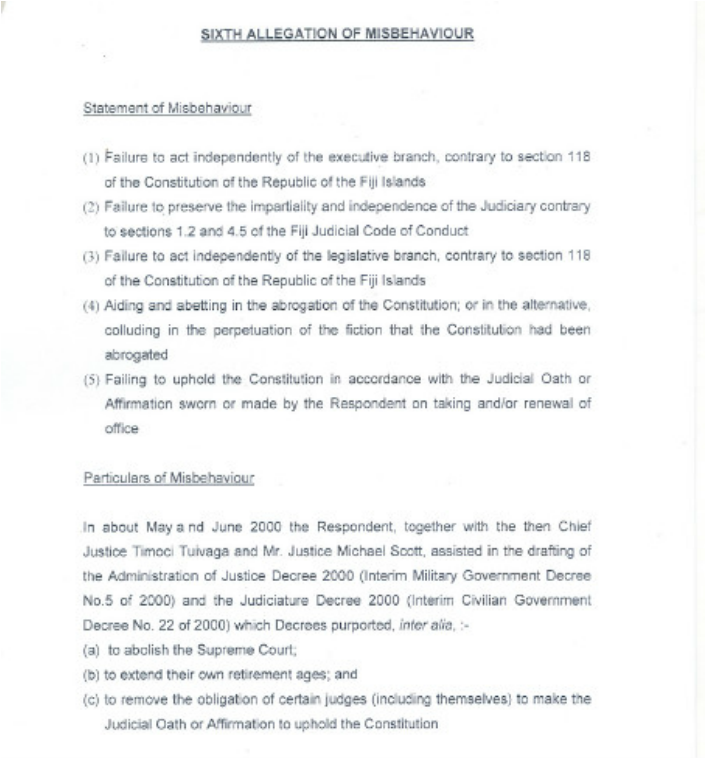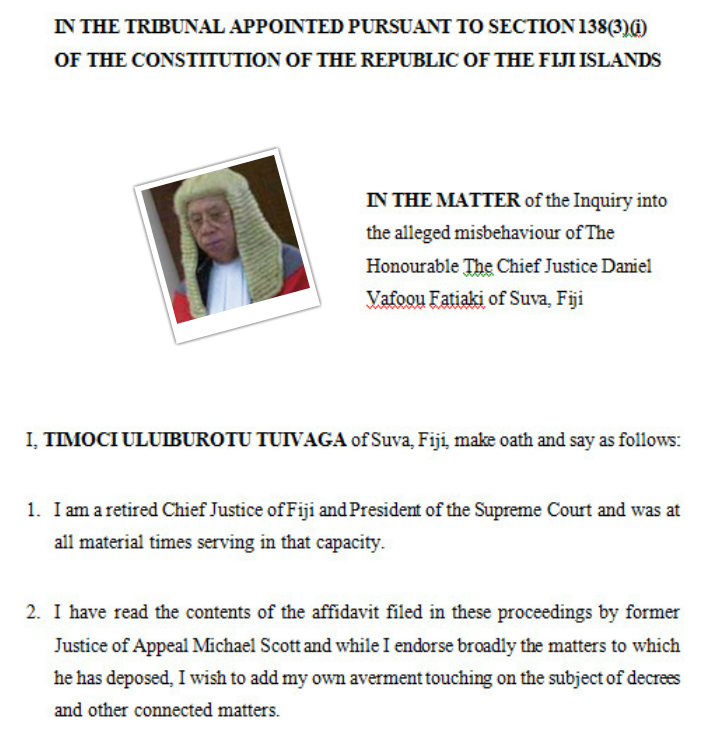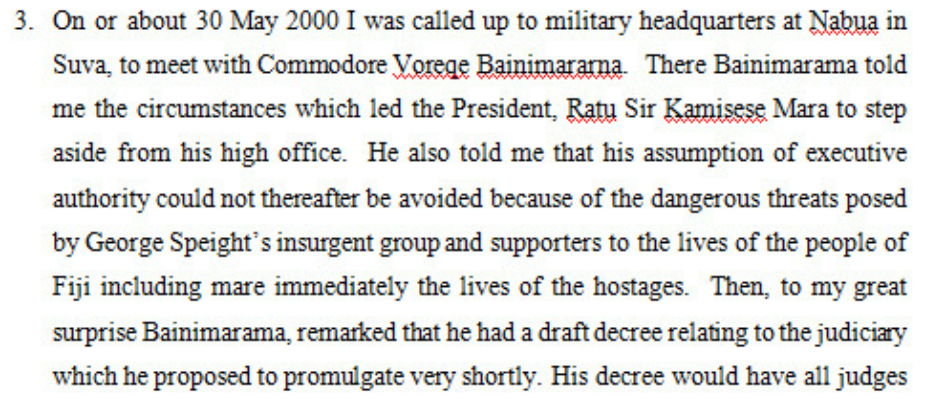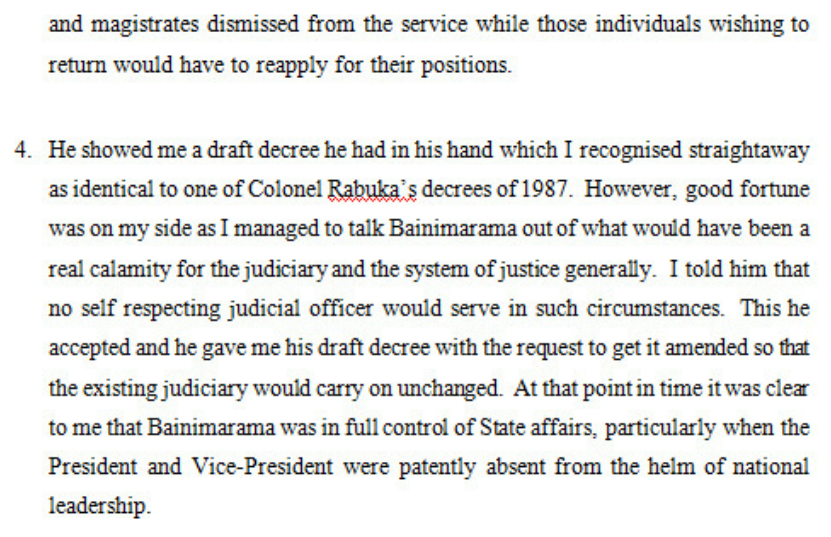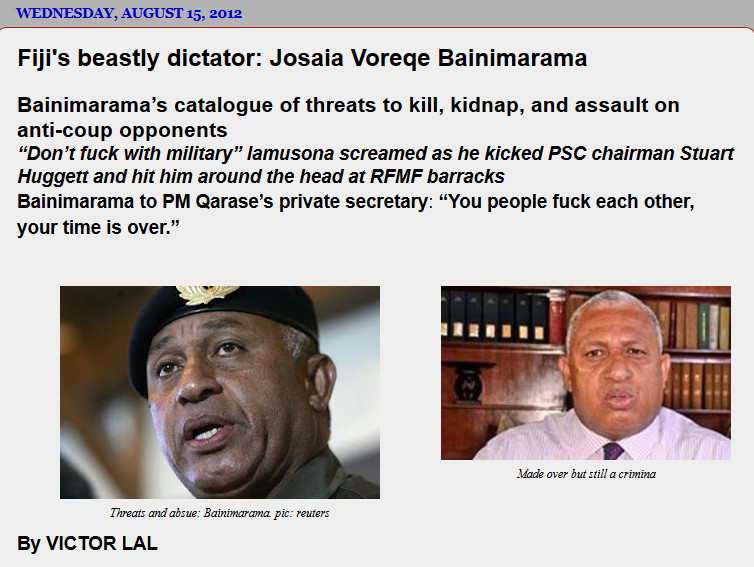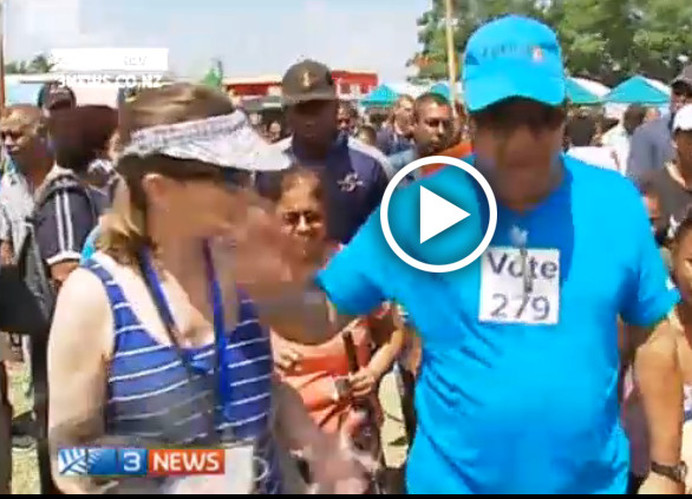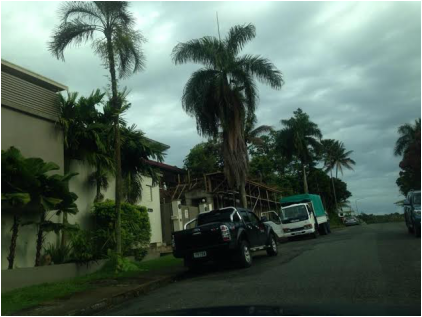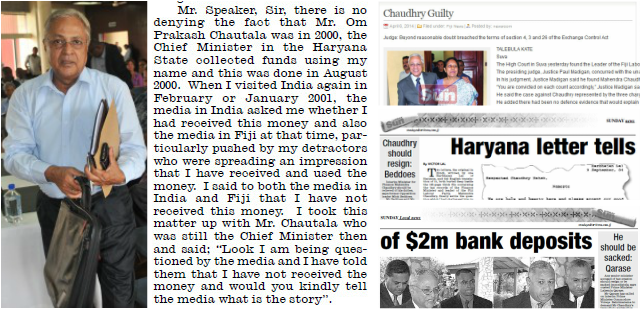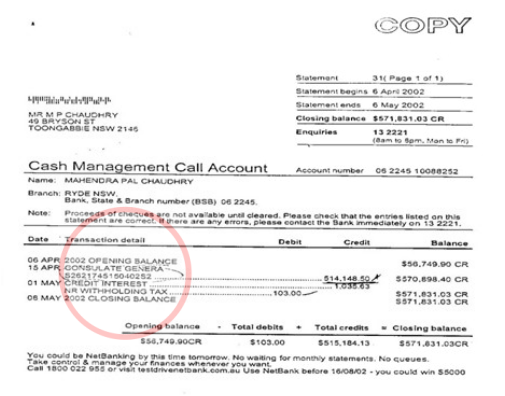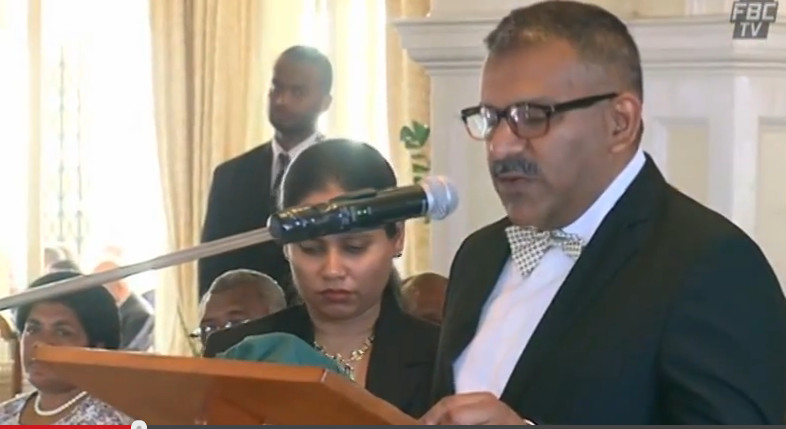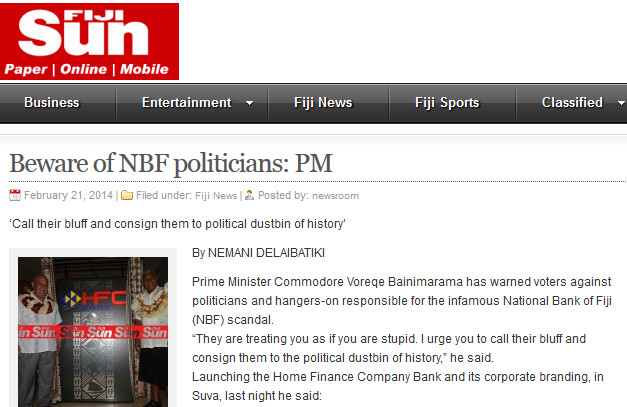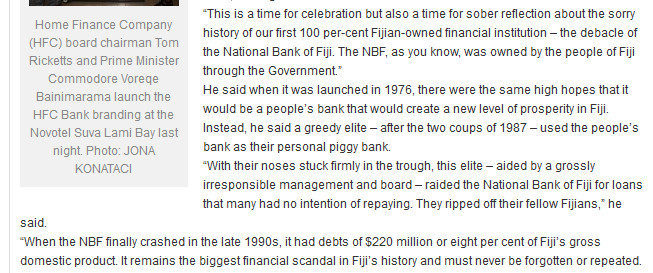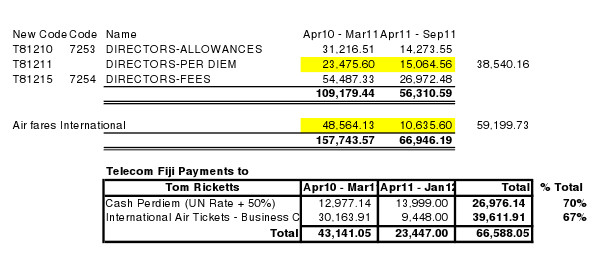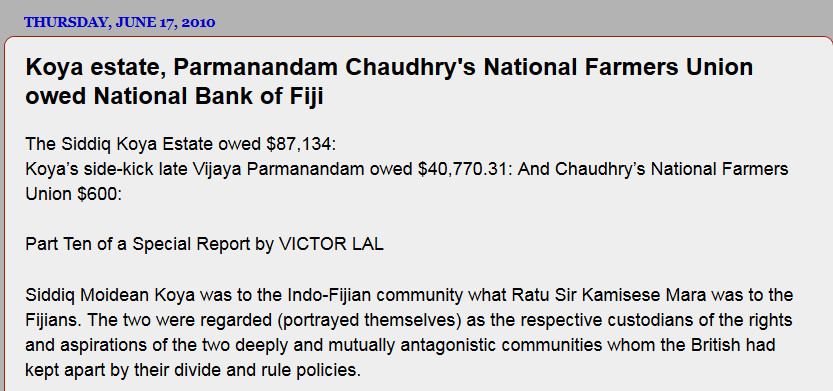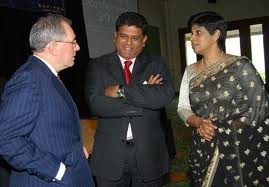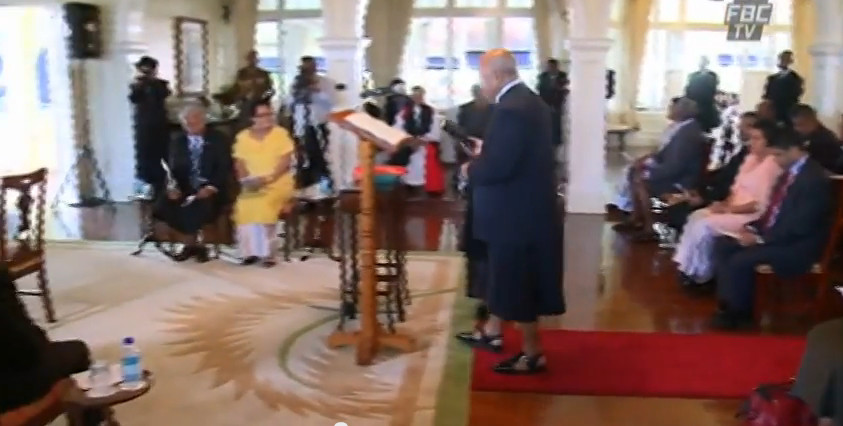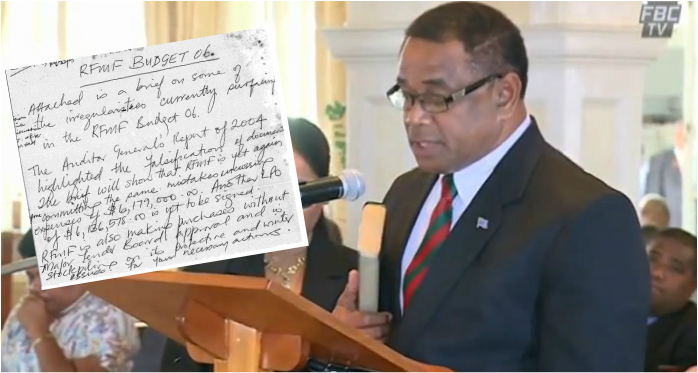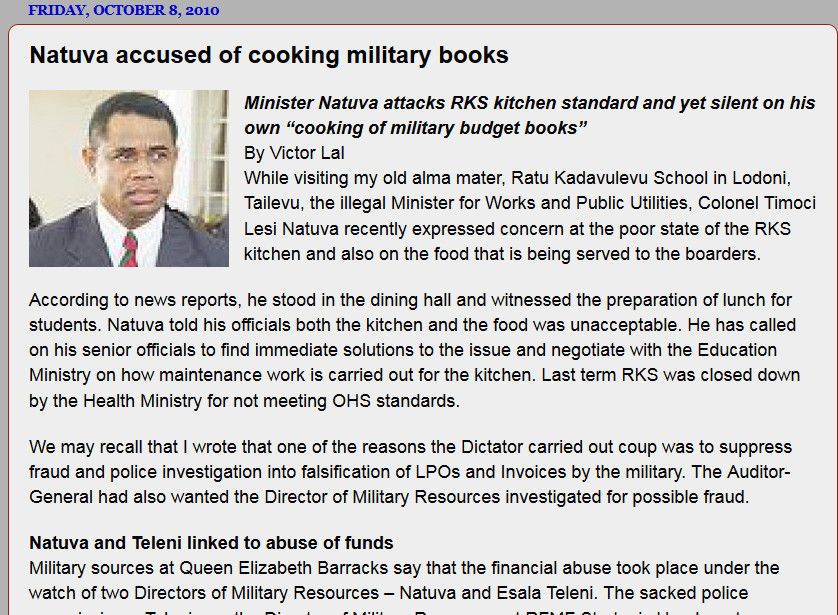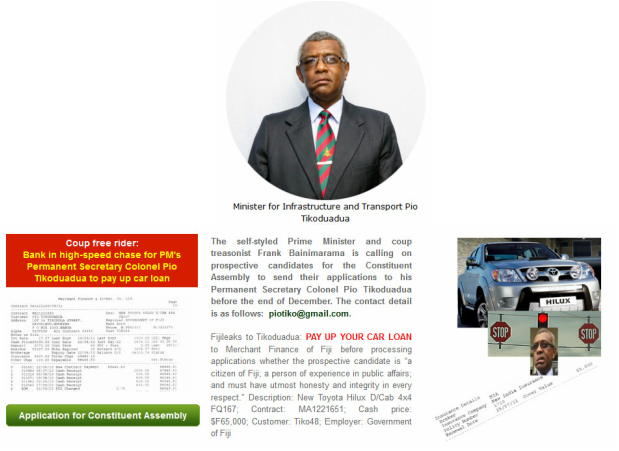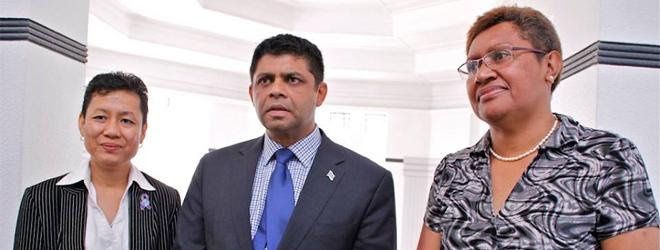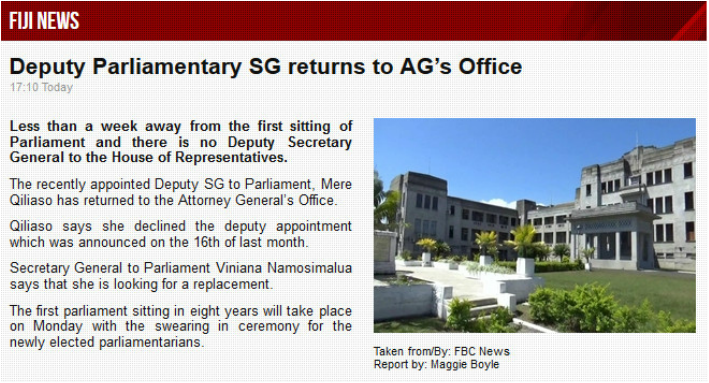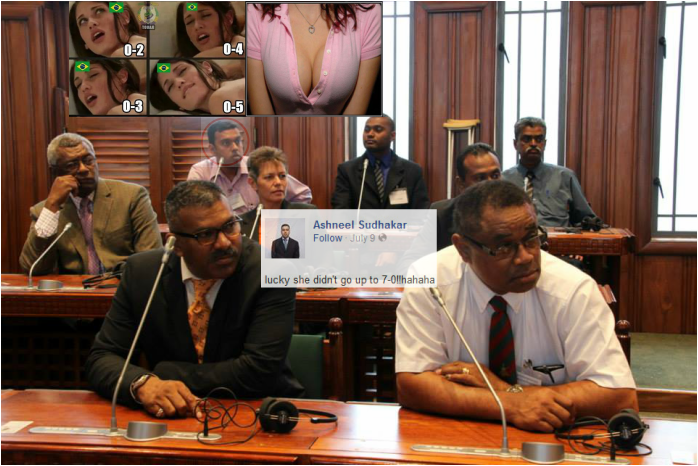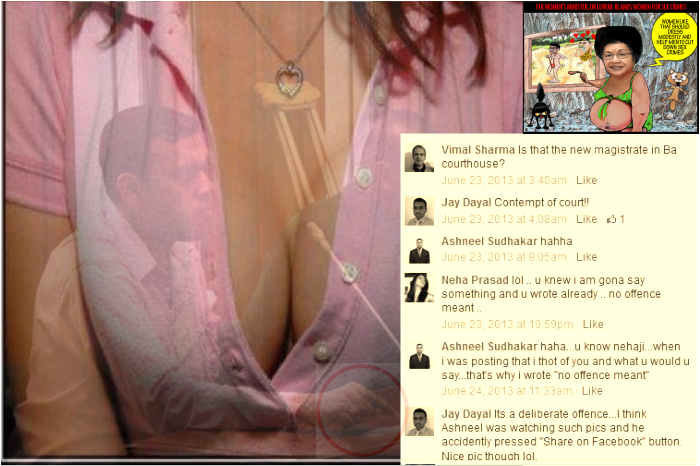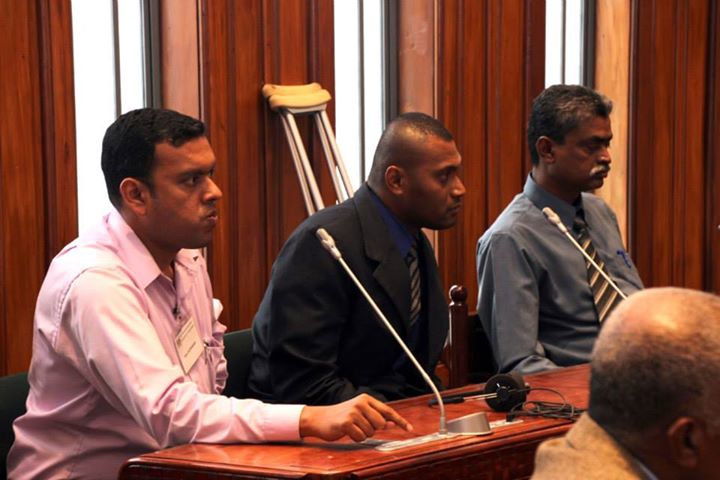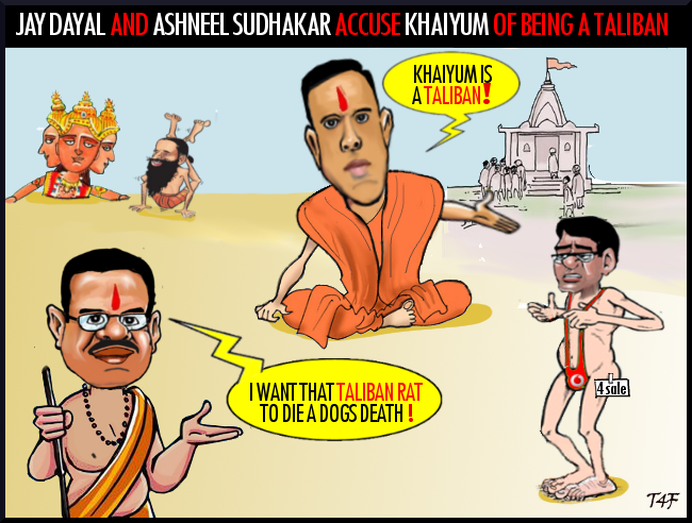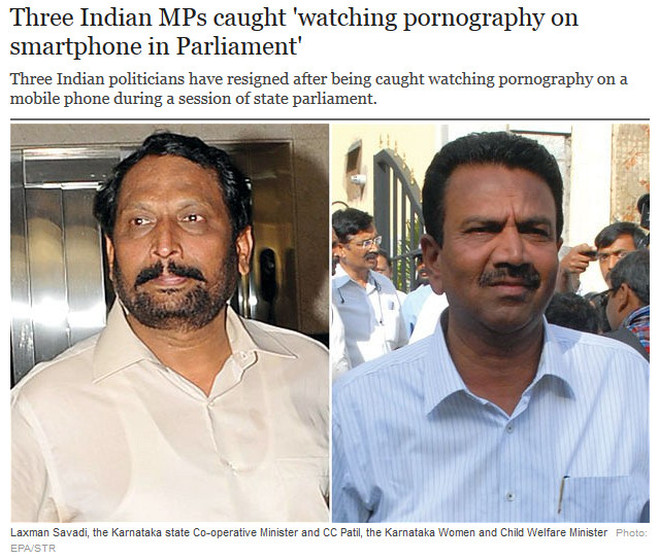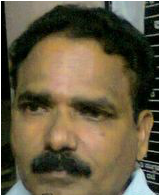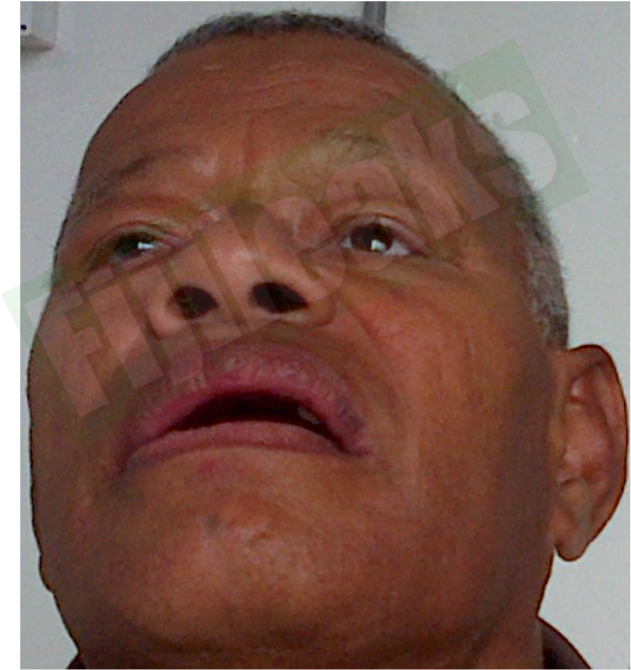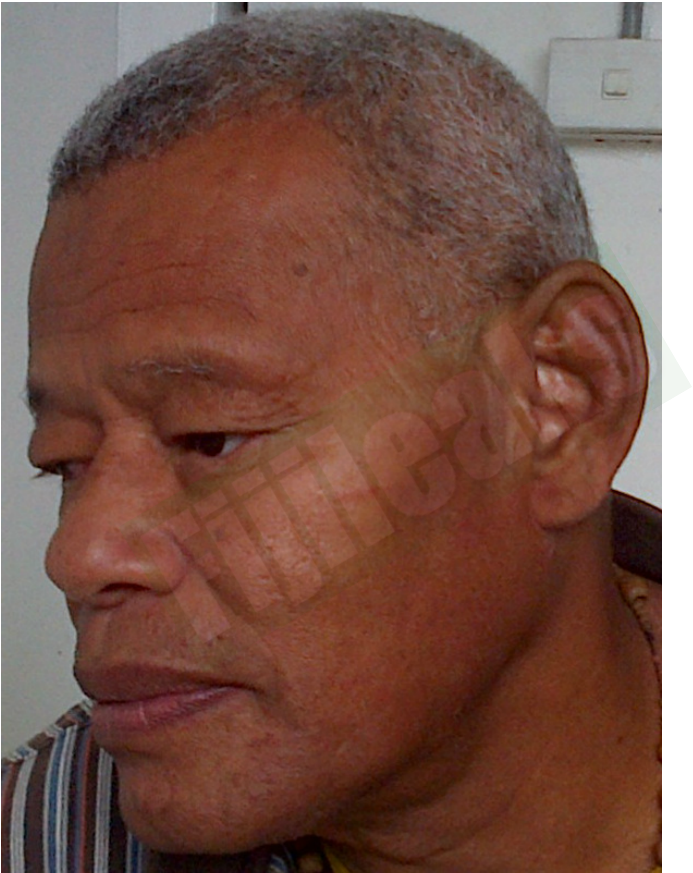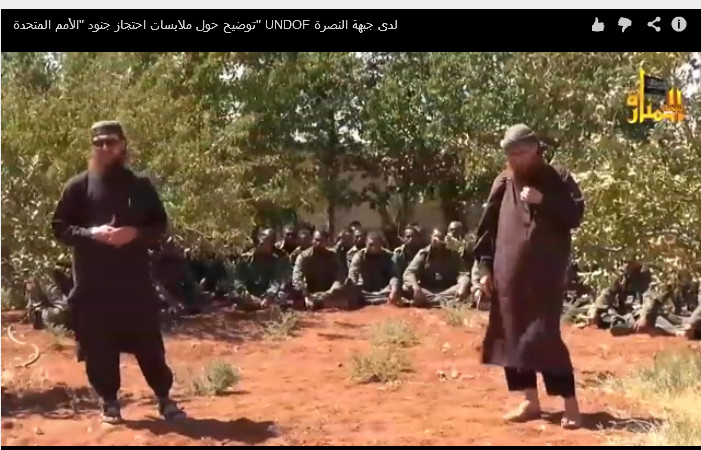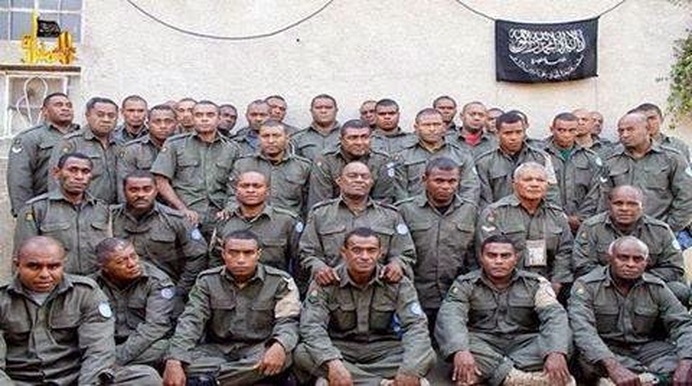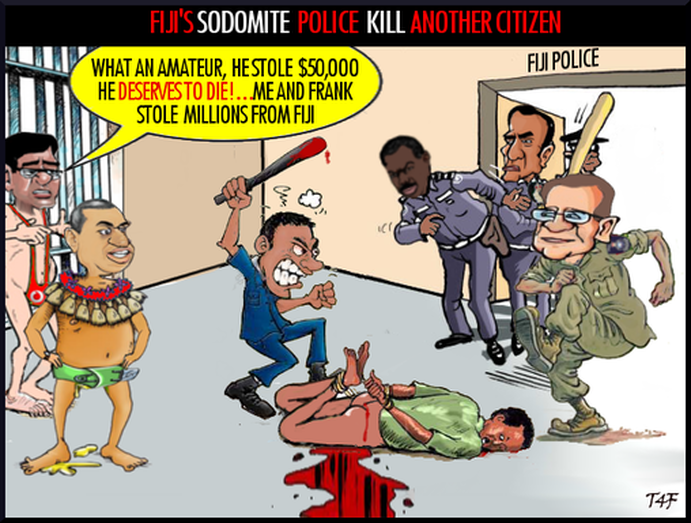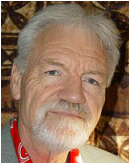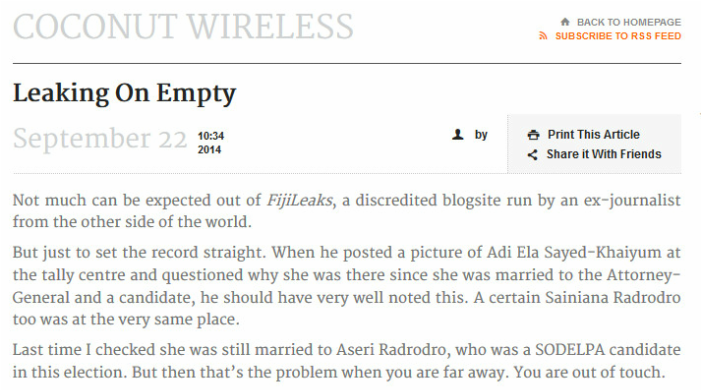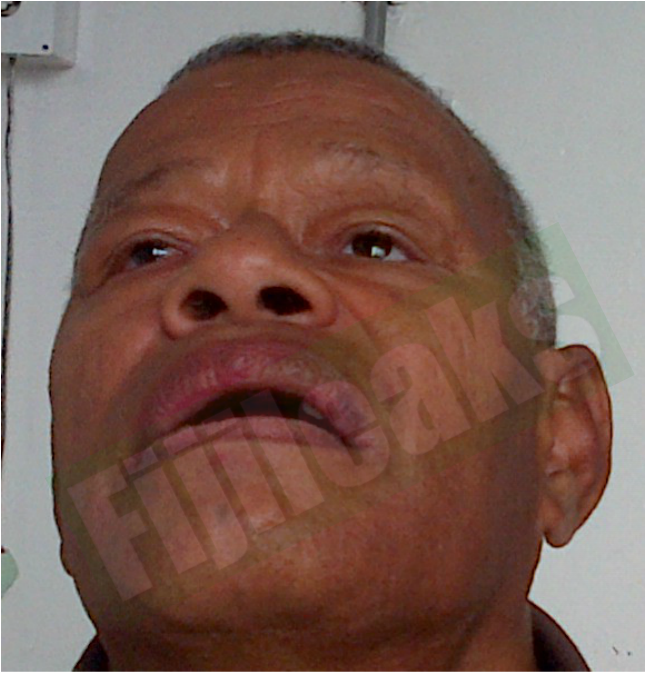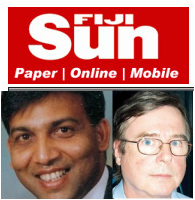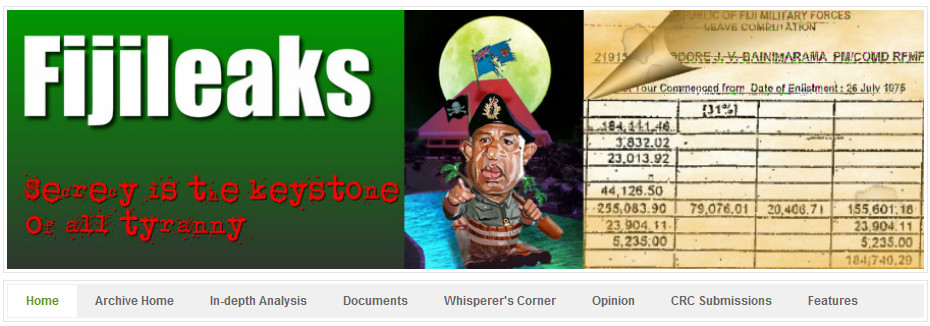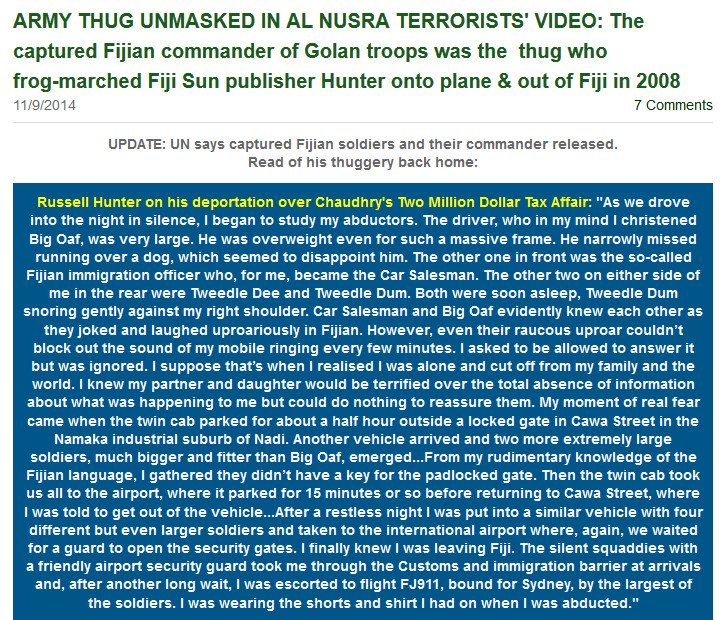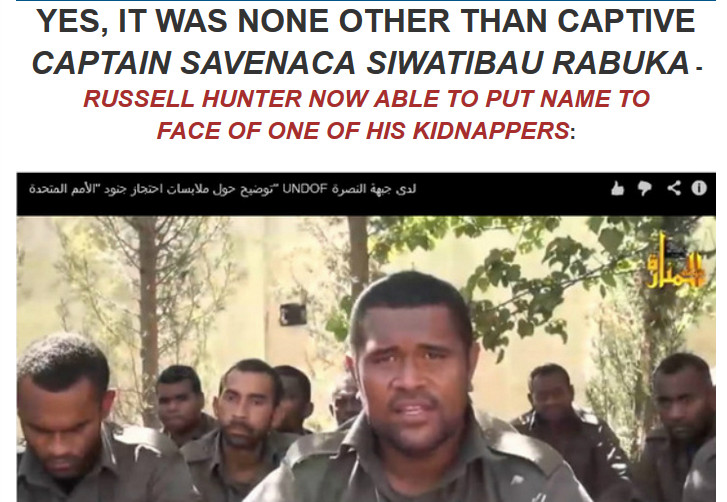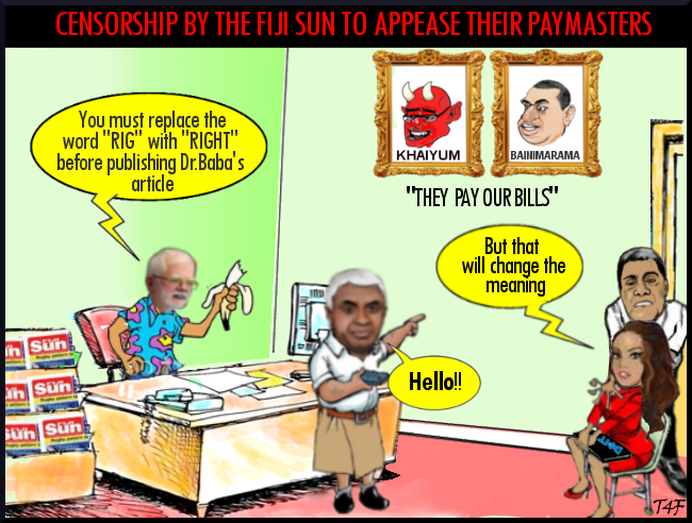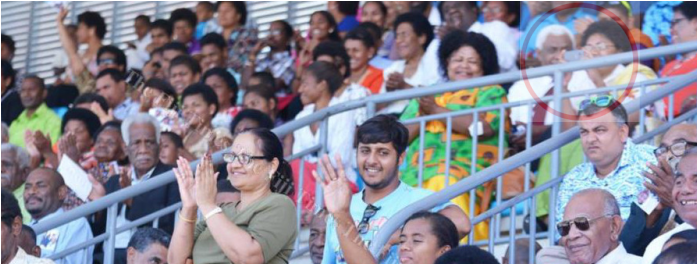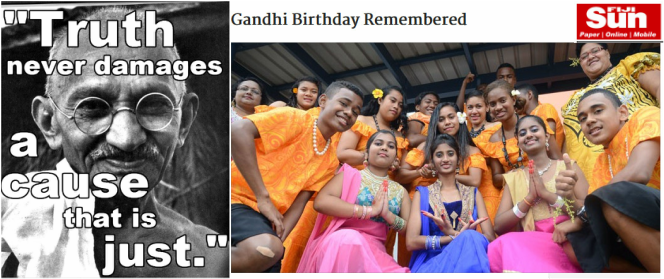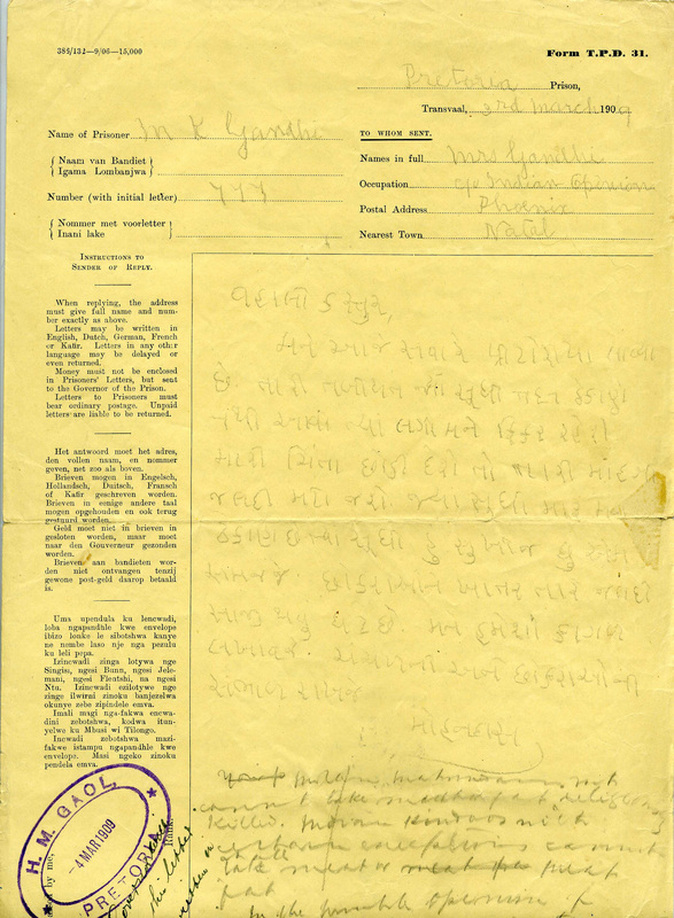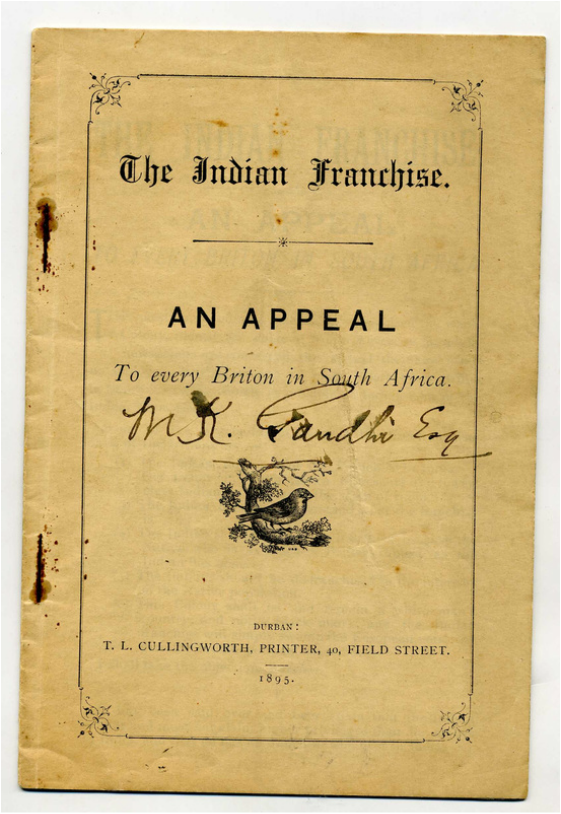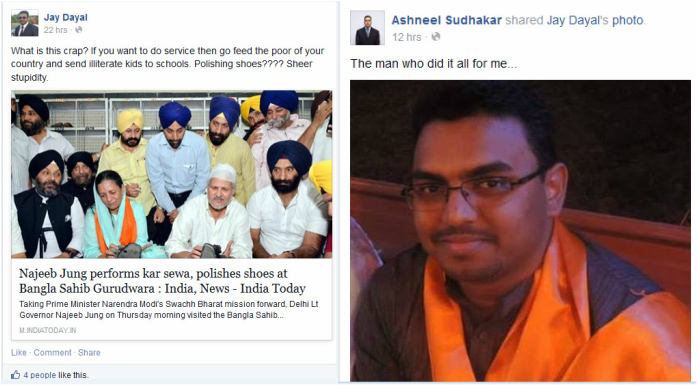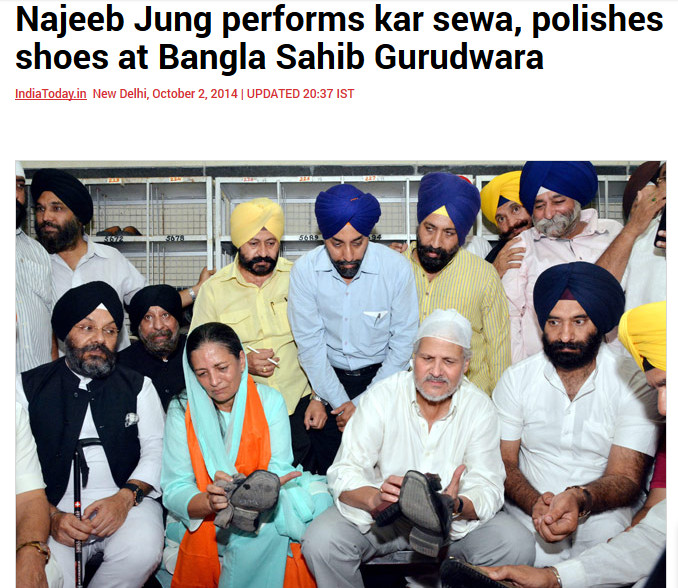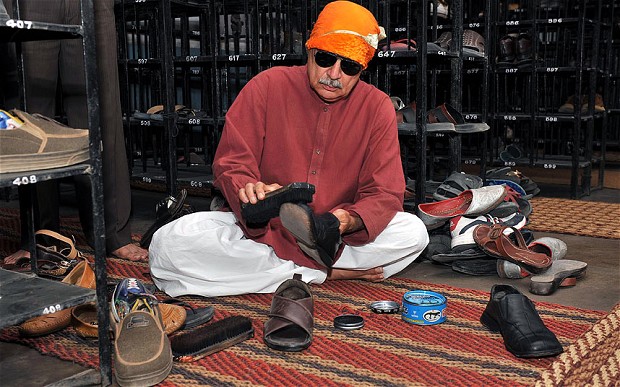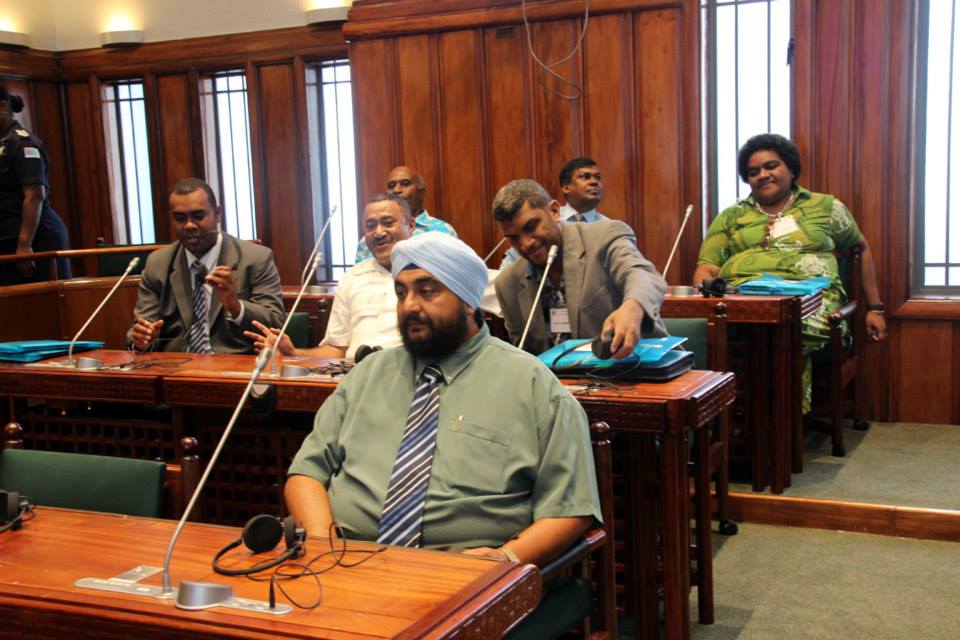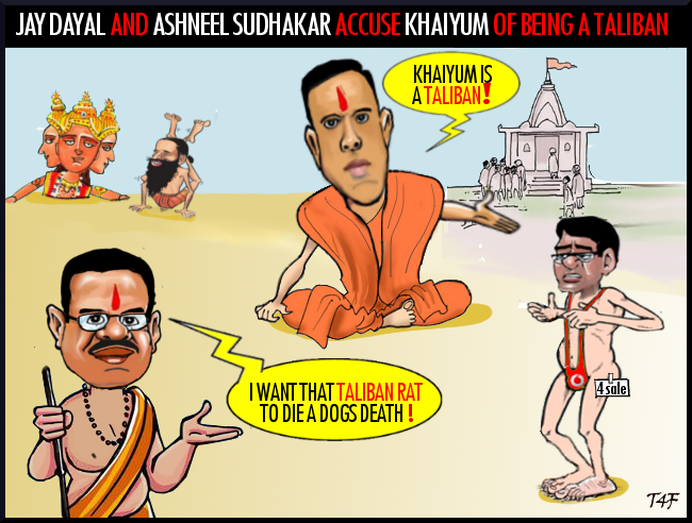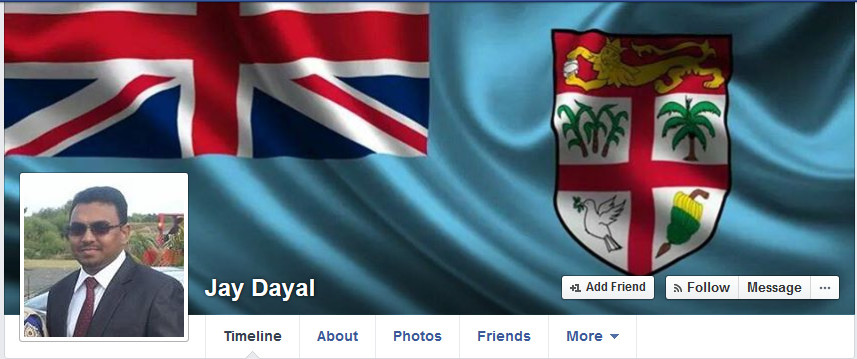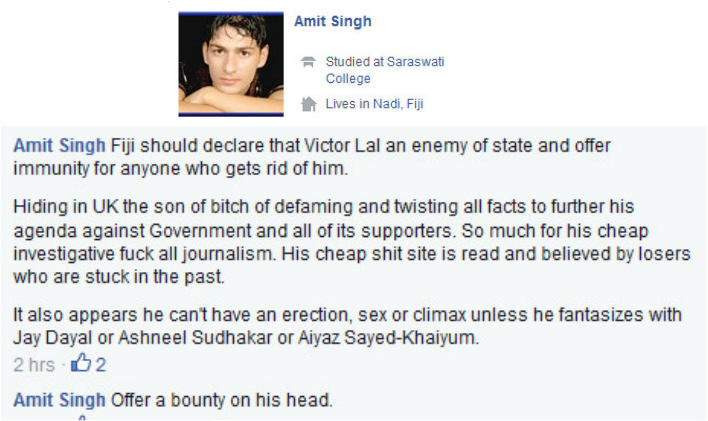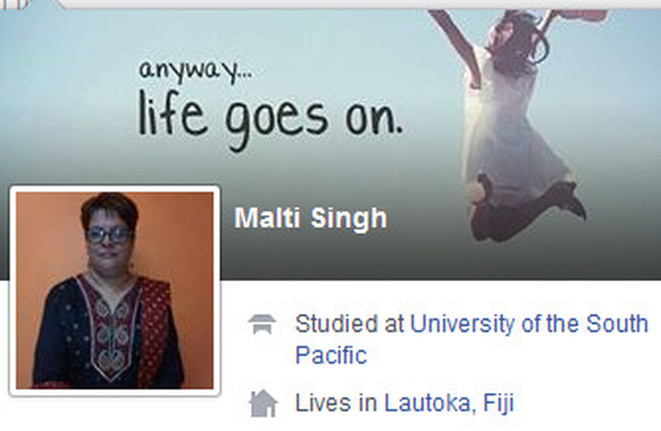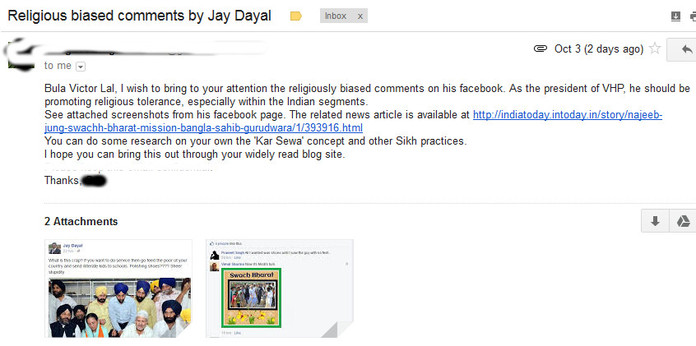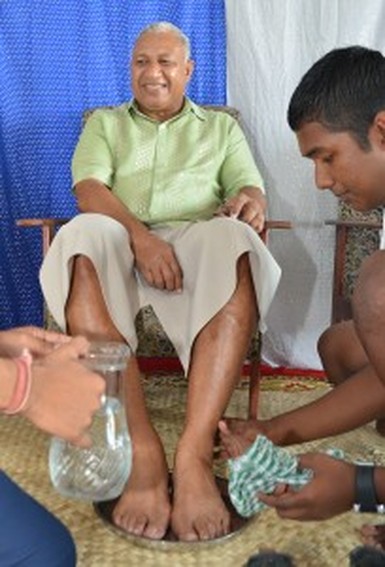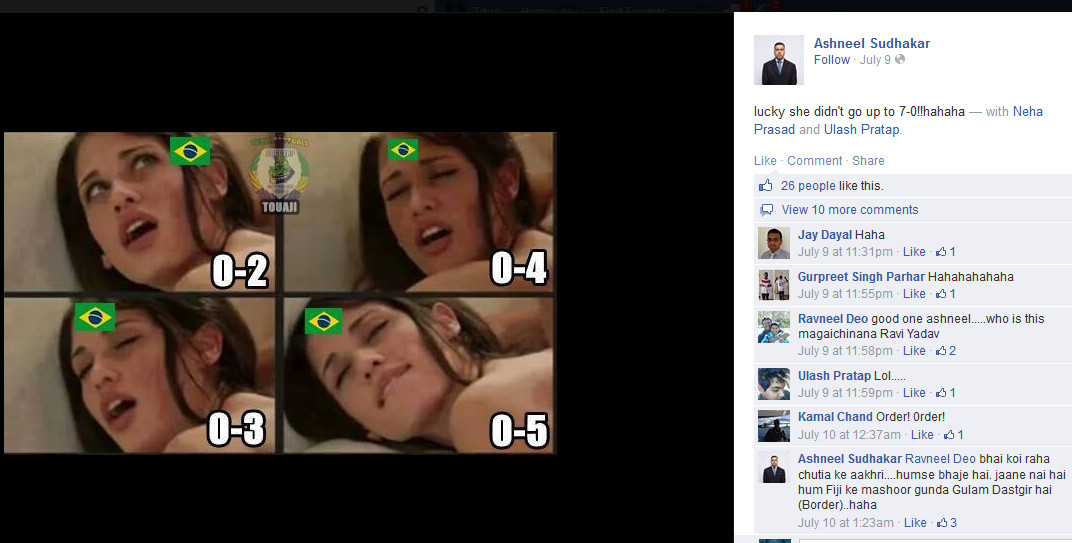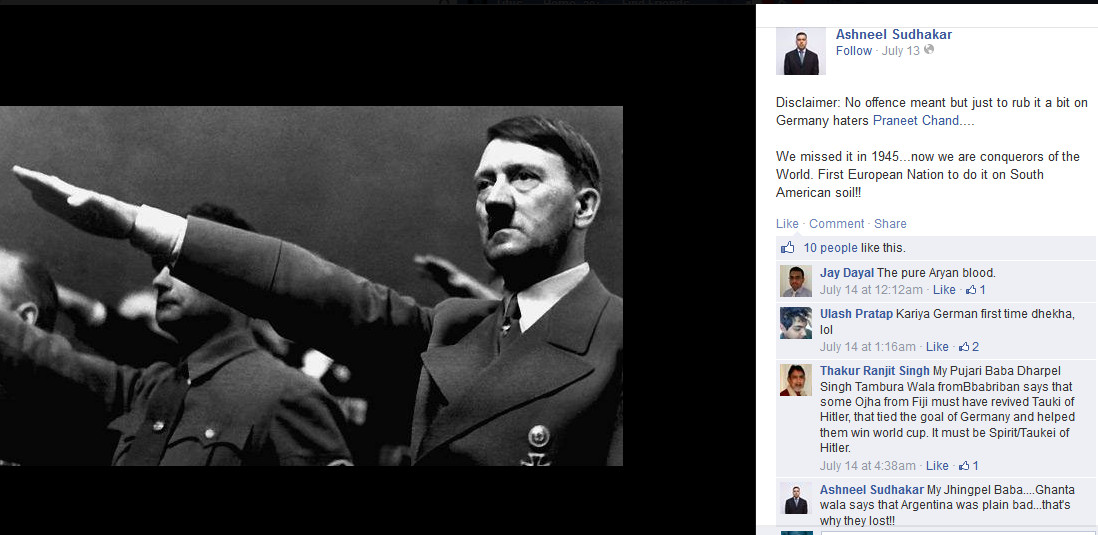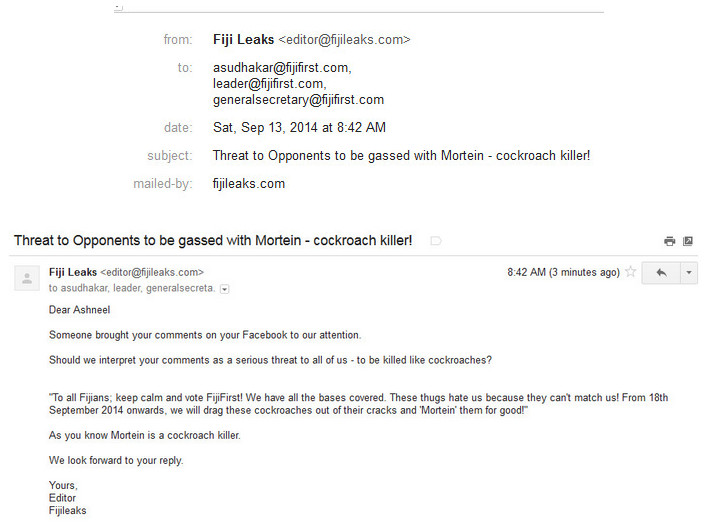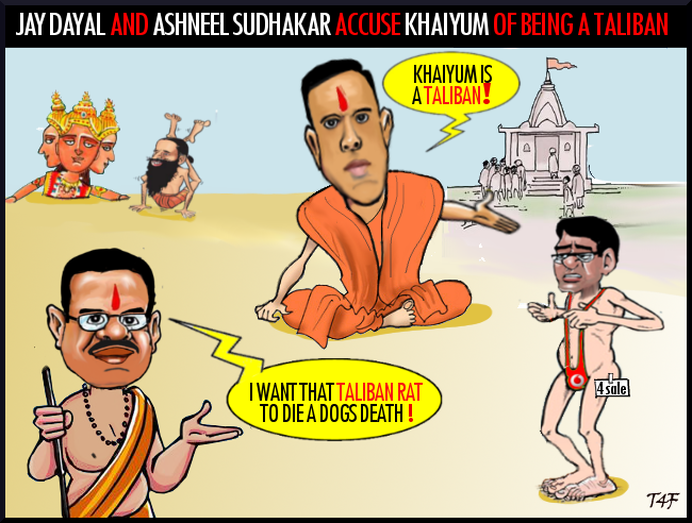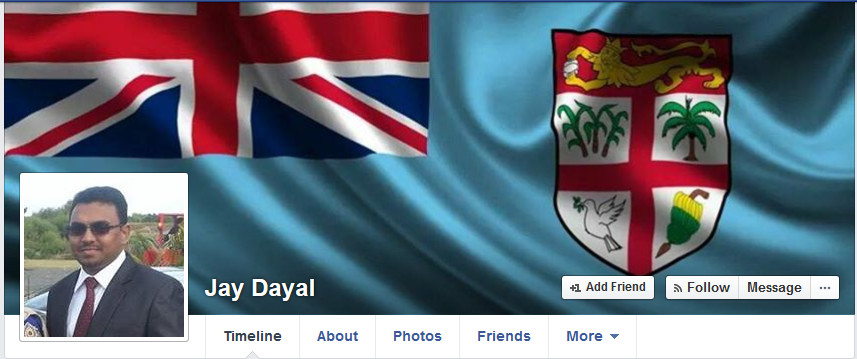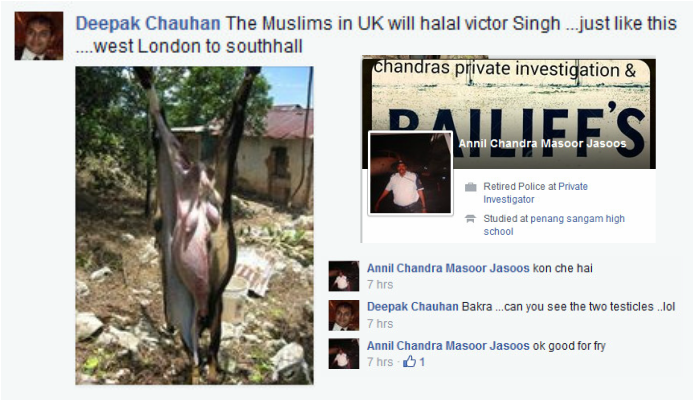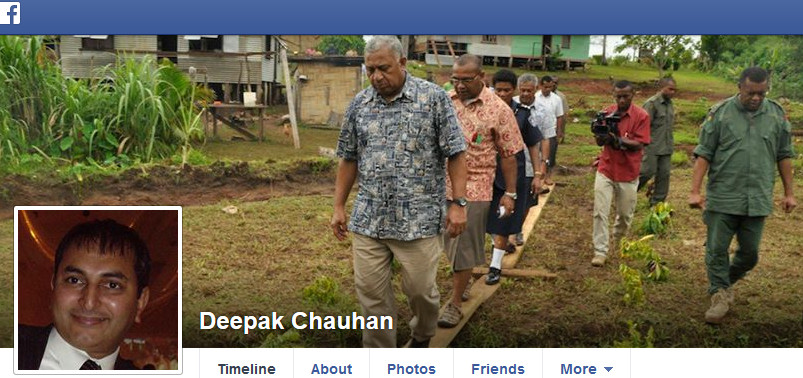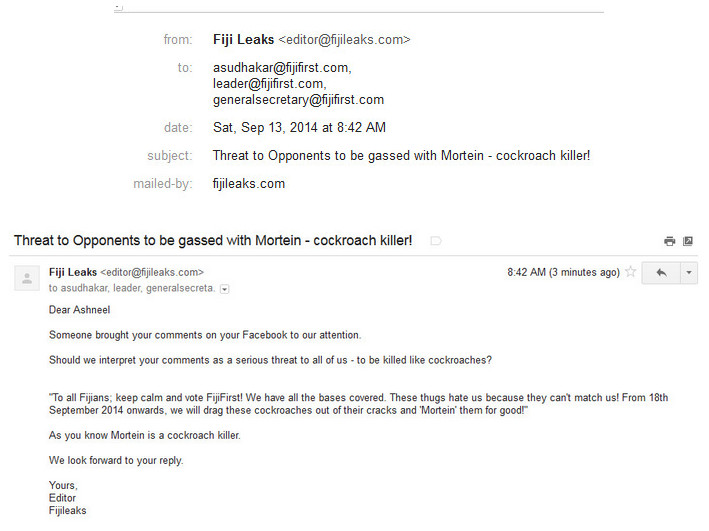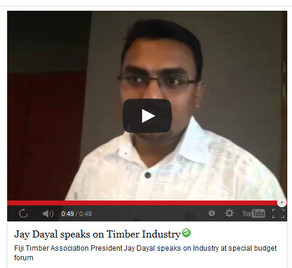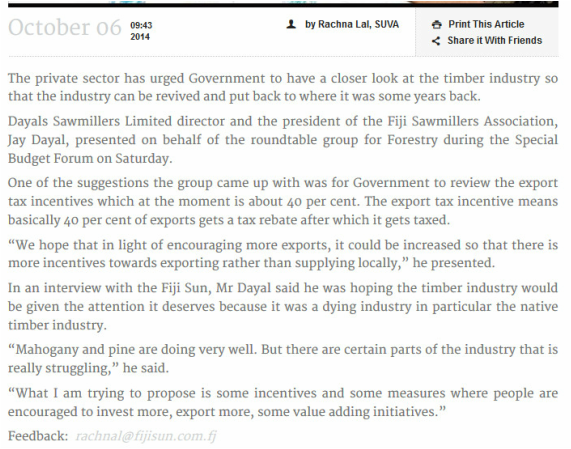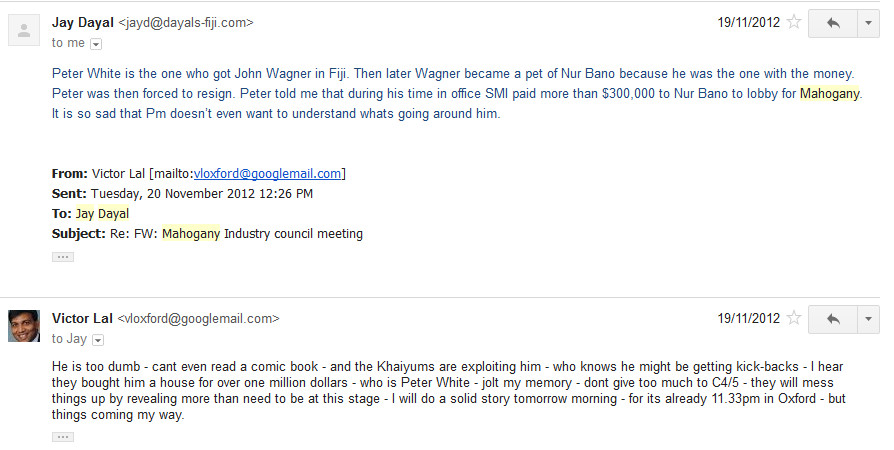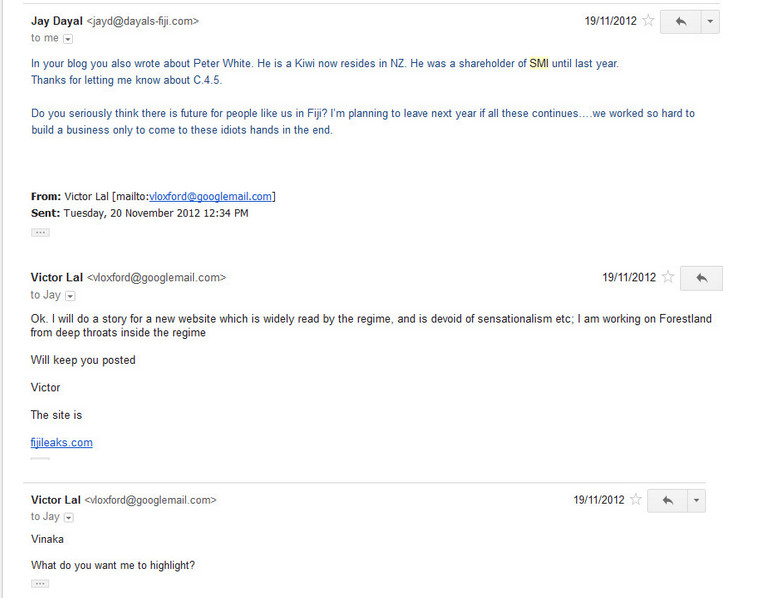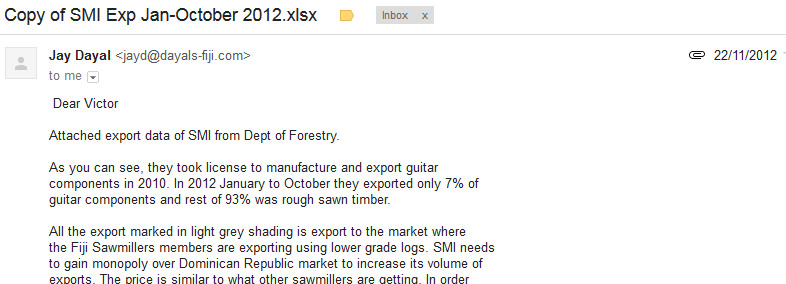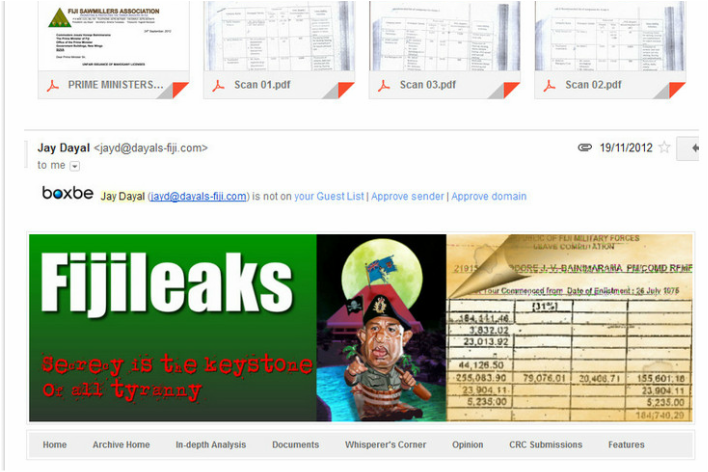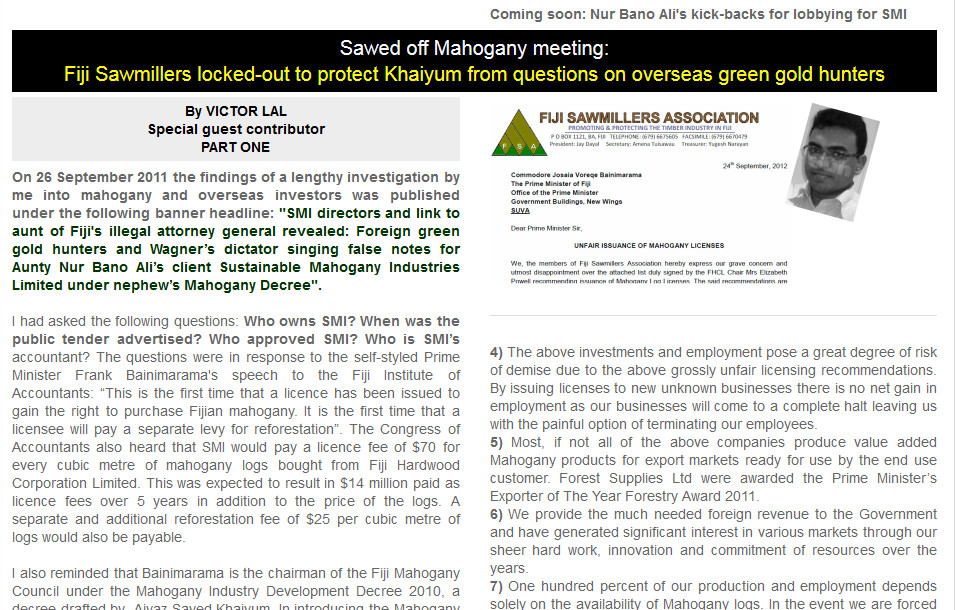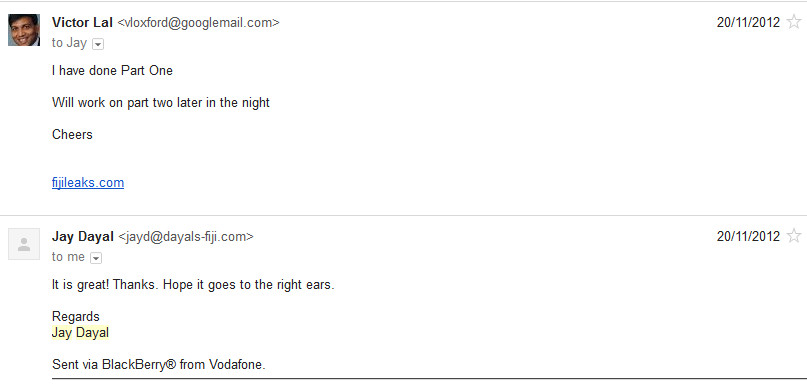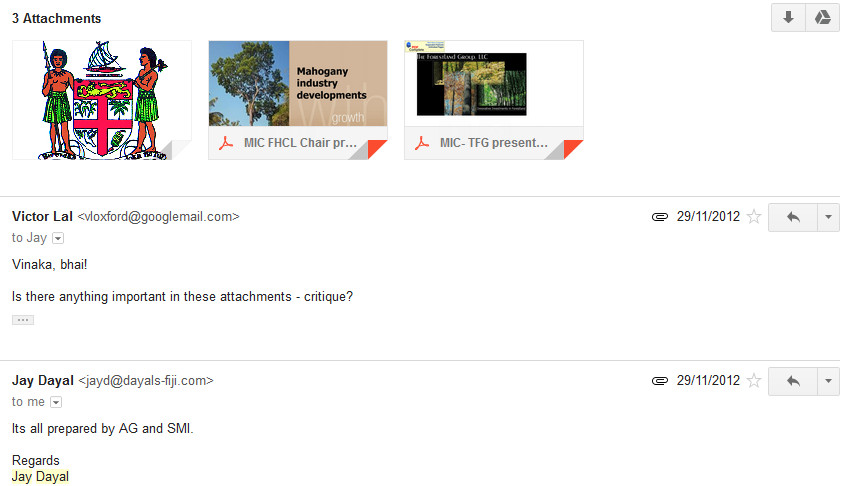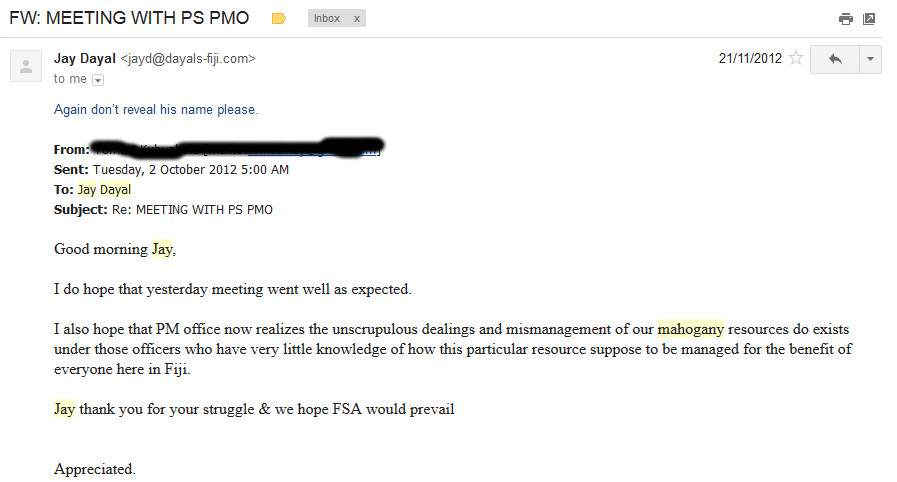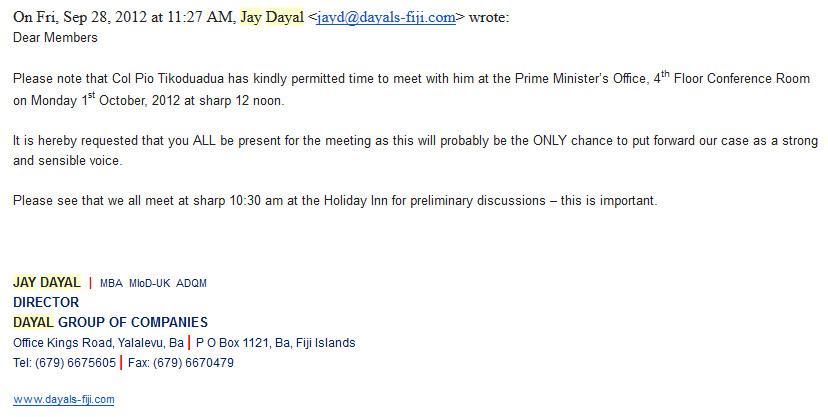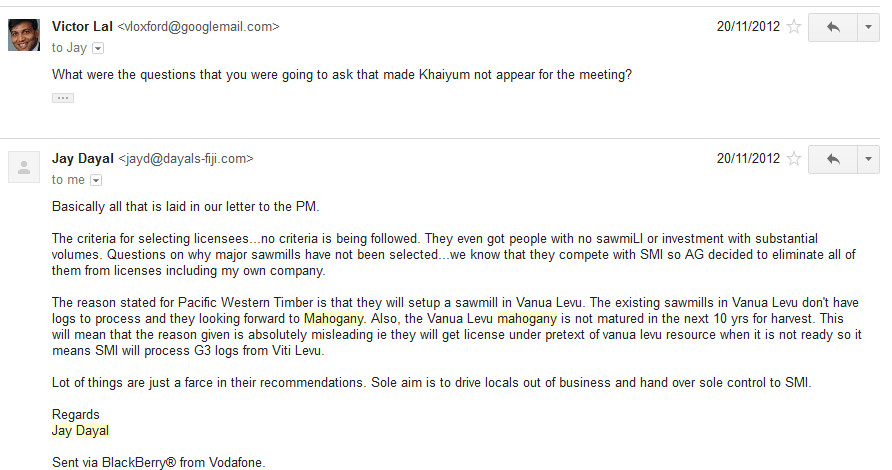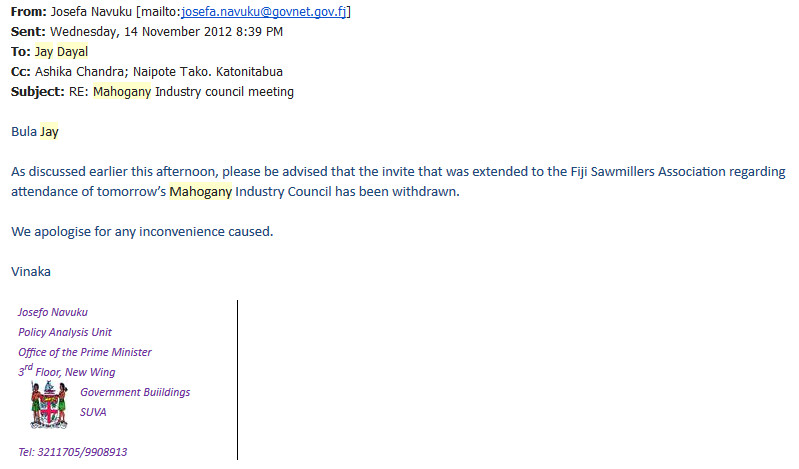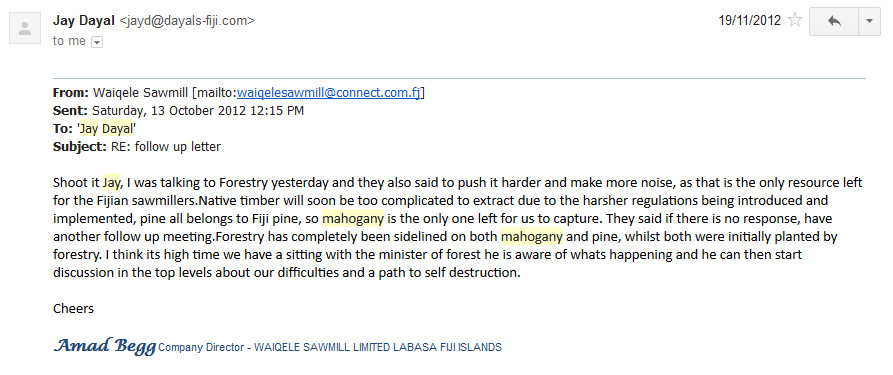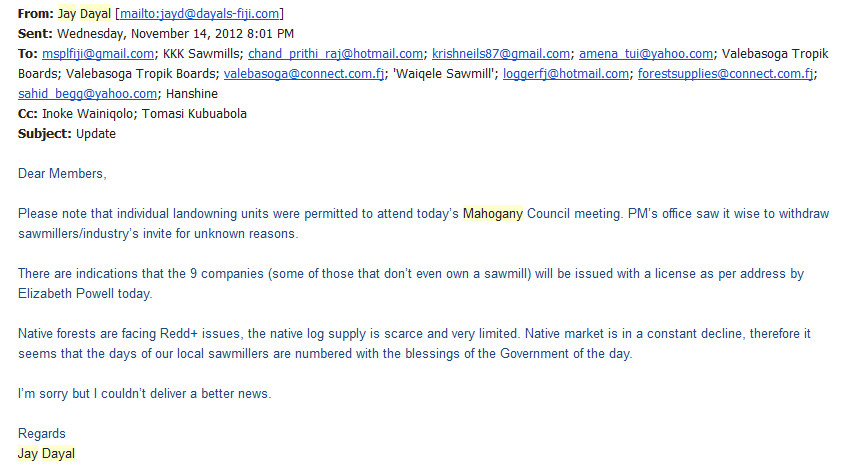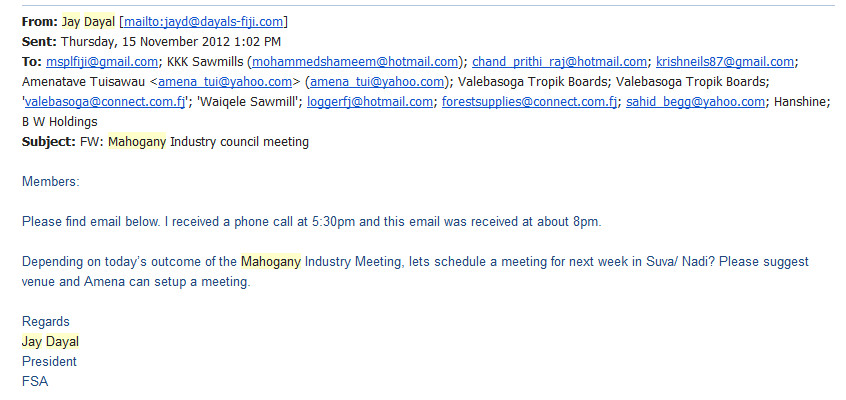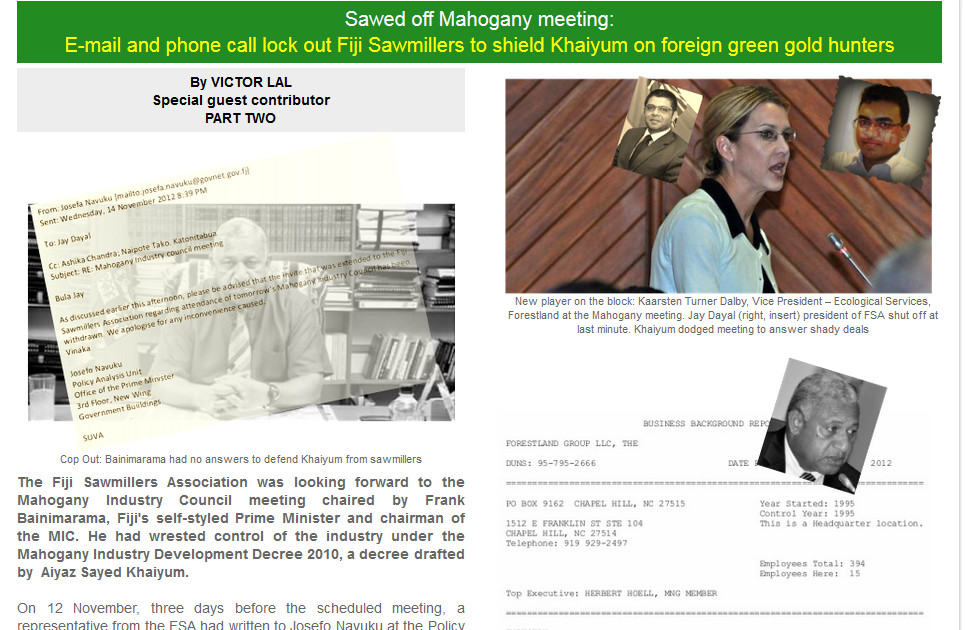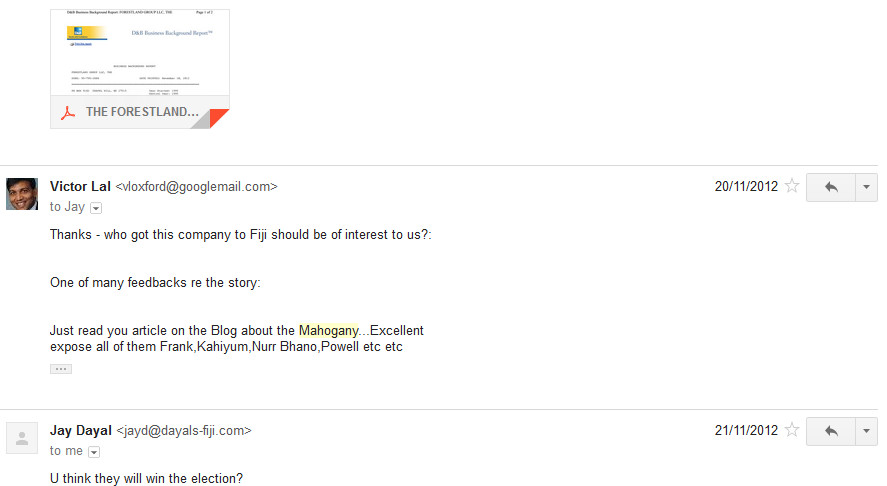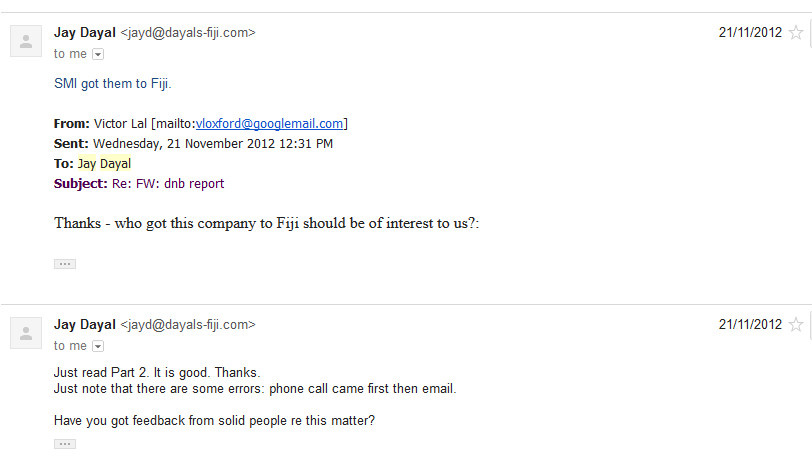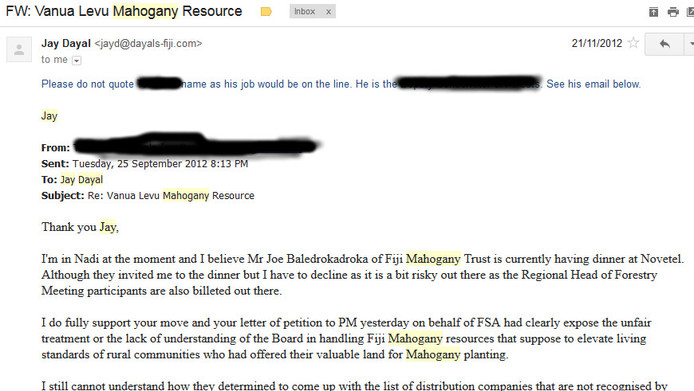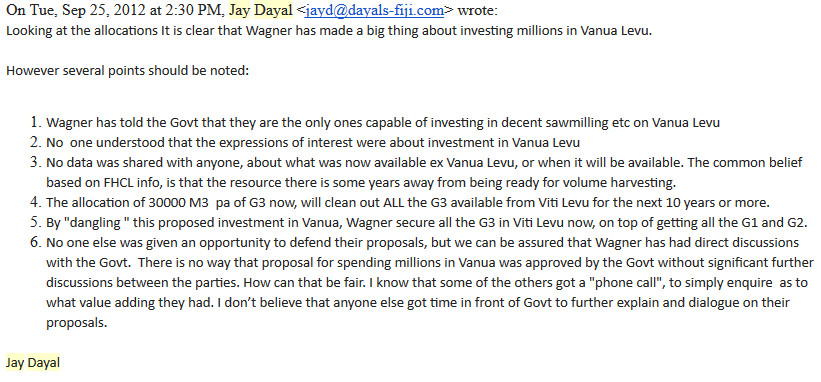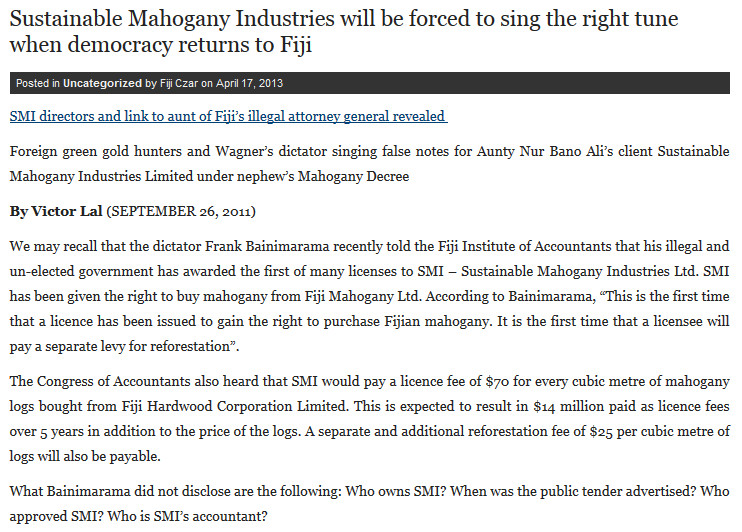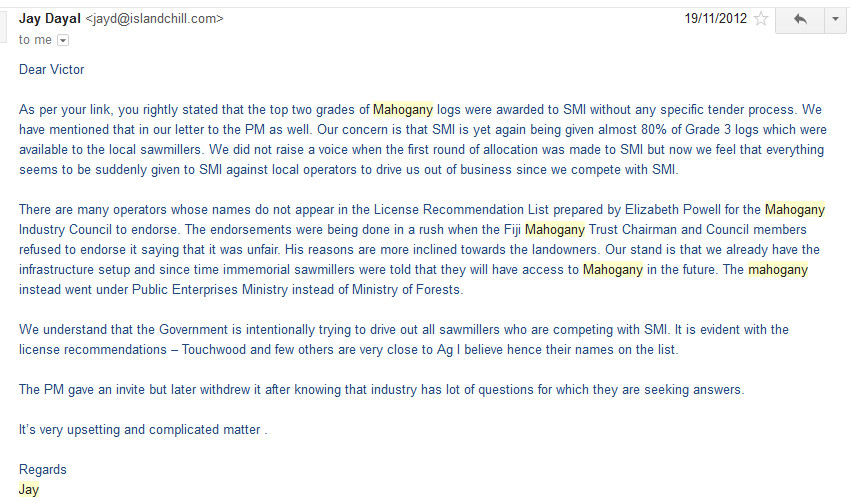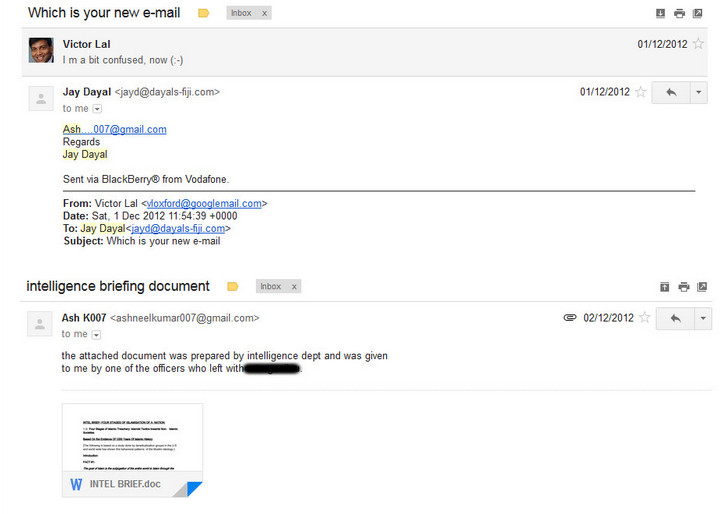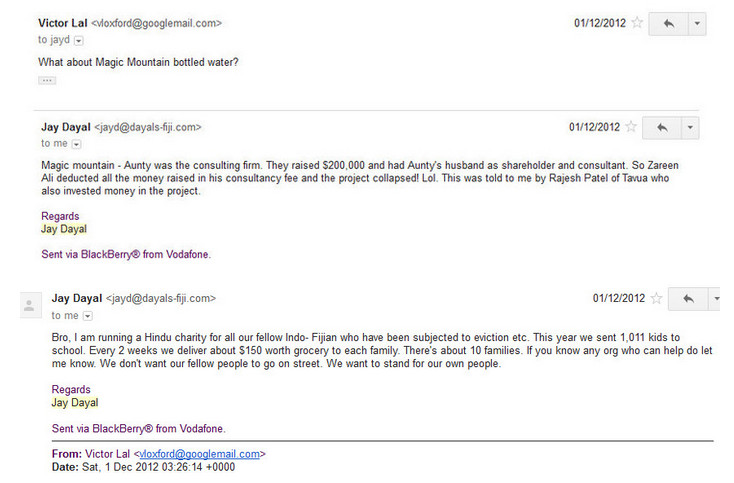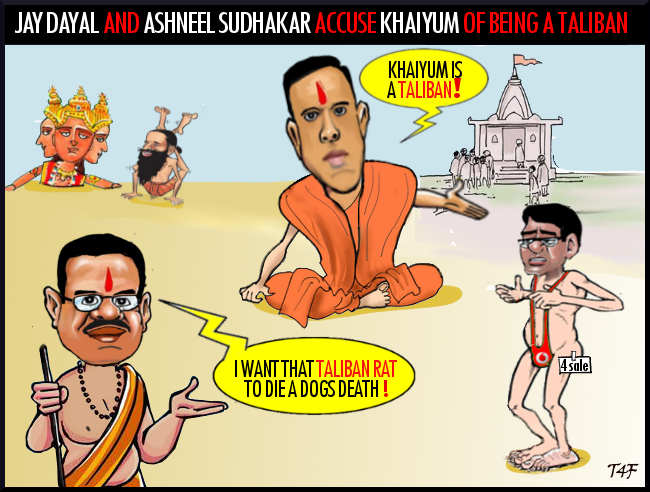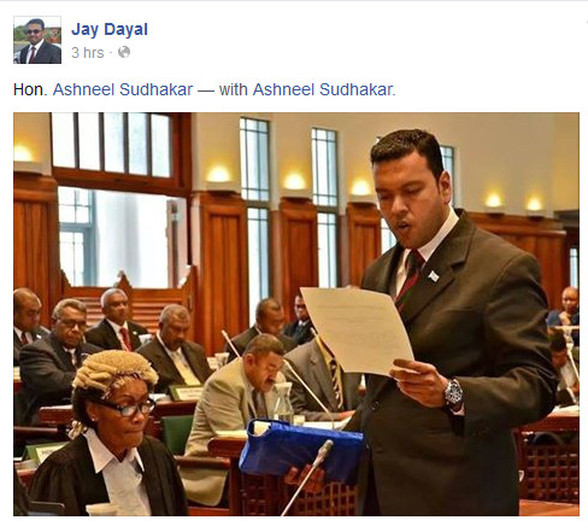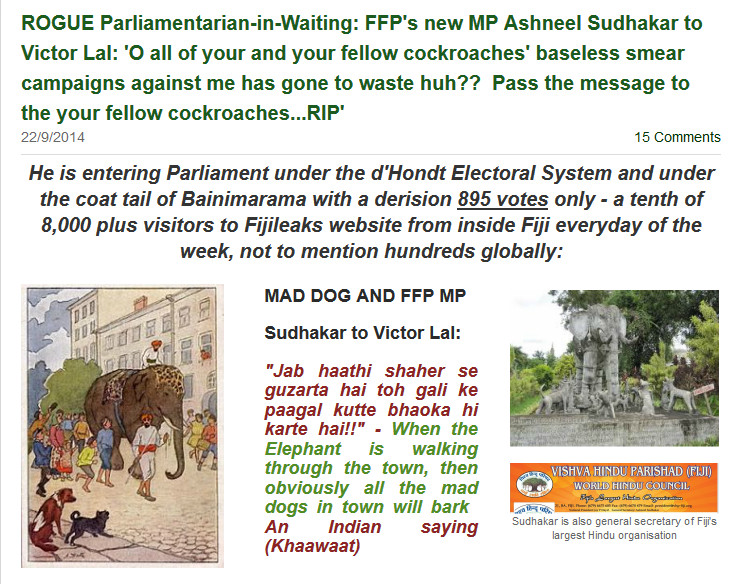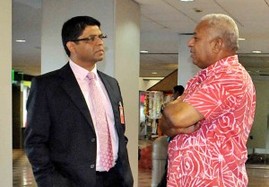
"When certain figures came to the PM complaining about the AG and seeking his removal, Bainimarama sent them packing with the savage admonition to come back to him when they did a fraction of the work the AG was doing for the betterment of the country. The term workaholic could have been invented for him. It has been a unique partnership that now goes into the new Parliament. One of the great shibboleths in Fiji is that the AG is unpopular, even hated, and would lead the PM to defeat unless he cut him loose. The raw figures have proved this wrong. How did it happen? The electorate has undoubtedly recognised his hard work to reform the country. But it’s also a little known fact that the AG gives his personal mobile number to many ordinary people, answers their calls when they ring him and tries to help them navigate a way through the tangled web of Government to solve their problems. He emerges from this election as a political figure of consequence in his own right, having garnered more votes for FijiFirst than any other candidate after Bainimarama and being beaten only by Ro Teimumu Kepa in the overall tally. He is the third most important politician in Fiji in terms of his ability to secure votes and has the political mana to be Deputy Prime Minister, if indeed, that is what is decided."
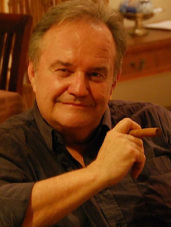 Graham Davis reflects
Graham Davis reflects By GRAHAM DAVIS
Well, he’s done it. Voreqe Bainimarama has seized his place in history by blitzing his opponents and scoring a decisive win in the first genuinely democratic election in Fiji since Independence 44 years ago. By any standard, it is a remarkable achievement. Because this is no run-of-the-mill election win of the kind the world routinely witnesses, a changing of the political guard under a tried and tested order. Bainimarama not only upended the status quo in Fiji when he seized power eight years ago. He took a sledgehammer to the entire political edifice, smashed it to smithereens and then set about rebuilding Fiji into a modern nation-state that has been transformed at almost every level. And transformed it for the better in the eyes of most Fijian voters, who’ve given the PM an overwhelming mandate to continue his reform program.
In the process, Bainimarama himself has changed – the impatient, sometimes fiery authoritarian figure giving way to a softer, more genial presence who has come to relish his encounters with ordinary people and has taken to being a politician in a way that few would have expected. Watching the Internet feed of the PM’s debate on radio with his principal opponent, Ro Teimumu Kepa, many Fijians would have been surprised to see that it was Bainimarama who was most at ease, smiling as she launched a barrage of provocations in his direction, including “you will soon get your just deserts”. Well yes he has, though not quite in the way the GMBRTD – as some people refer to her by the acronym of her chiefly title – would have expected.
SODELPA LIUMURI-ED
There are many dimensions to this extraordinary saga but none more notable than the way in which Bainimarama has carried indigenous opinion with him and rewritten the political rules in Fiji. For the first time, i’Taukei voters have failed to be swayed by the traditional political weapon of crudely exploiting their fears – fears for their land, their religion, their culture and their way of life. SODELPA tried to wield that weapon with a campaign characterised by some of the worst lies ever told in a Fijian election. They included the former Prime Minister, Laisenia Qarase, openly telling i’Taukei that they would not be able to worship Jesus if FijiFirst won the election. It didn’t work. In fact, there’s ample evidence that it backfired, driving voters into the arms of the PM, who patiently explained that these lies were being told to manipulate i’Taukei opinion while he laid out an alternative vision of inclusiveness and hope.
When the polls over the past few weeks gave Bainimarama a commanding lead, the word from SODELPA was that Frank would be luimuri-ed (betrayed) by his ostensible supporters, who were telling him to his face that they supported him but would vote SODELPA in the privacy of the voting booth. In fact, the reverse happened on Election Day. SODELPA was liumuri-ed by many of those who’d pledged allegiance to it publicly but privately voted for Frank. It is arguably the end of the indigenous scare campaign in Fijian politics. The days of i’Taukei leaders treating their own people as fools are over. And not a moment too soon.
A DIPLOMATIC BLUNDER
The extent of the Bainimarama victory has floored his opponents and much of the diplomatic community, which has never believed the opinion polls showing him with a commanding lead all year. Australia and New Zealand, in particular, have peddled the notion that Bainimarama would be forced into a coalition even if he managed to garner the most votes. It has been yet another in a long line of miscalculations by our bigger neighbours since 2006, most of them based on being captive to the views of the wrong people. The reason why few diplomats saw this result coming is that the local diplomatic community continues to place far too much store on the views of partisan participants in the process and certain local NGOs, who have been overwhelmingly opposed to Bainimarama. One ambassador confided to me that as recently as a few months ago, a senior Australian diplomat was still trying to persuade his diplomatic colleagues of the need to “destroy” the PM. The encounter left this ambassador shaking his head. “You cannot have a democracy without racial equality and only Bainimarama can unite Fiji”, he said.
In the election aftermath, Australia and New Zealand will be hoping to step up their recent attempts to ingratiate themselves with a democratically-elected Bainimarama Government. It isn’t going to be easy. There’s a strong feeling in certain circles that they should be brought to account for their overt attempts to damage Fiji for having the impertinence to chart its own course. Overall relations will remain standoffish, the charm offensive by Australian Foreign Minister Julie Bishop notwithstanding. Or the positive contribution that Australia has made co-leading the Multinational Observers Group and at the Elections Office, where Michael Clancy has been a valued deputy to Mohammed Saneem, together with a number of others who have played an integral role in the success of this election.
New Zealand, in particular, continues to sorely offend the Fijian establishment with the content of its travel warnings. The latest – updated after the election – urges New Zealanders to be cautious when visiting Fiji and refers to “some risk to your security because of underlying political tensions”. Really? The visiting TV3 correspondent, Amanda Gillies, might have put herself at risk by “door-stopping” the Prime Minister and gratuitously asking him whether he planned another coup (he didn’t hit her, whatever the blogs say). But it would be difficult for any other visiting New Zealander to detect “underlying political tensions”. Yes, the Government’s opponents are decidedly unhappy but the police and military are ready to step in at the first sign of restiveness, let alone civil disturbances. A SODELPA attempt to stage a march through the streets of Suva on Friday afternoon was firmly rejected. Such marches have been the prelude to disturbances in the past and will not be tolerated again.
A SMEAR ON THE JUDICIARY
The latest NZ Travel Warning goes on to make the outrageous claim that “the government has a degree of influence over the judiciary”. Where is the evidence for the truth of this statement? None is given in the advisory. Given the gravity of the charge and its potential impact on public confidence in the judiciary, isn’t it incumbent on the NZ Government to provide the details on which it bases its claim? Because the truth is that no credible evidence has ever been advanced that the executive branch of the Fijian Government influences the judiciary, nor that the judiciary does the Government’s bidding. Indeed the Chief Justice, Anthony Gates, and his fellow judges pride themselves on being fiercely independent, as does Christopher Pryde, the NZ-born Director of Public Prosecutions. Yes, some political figures have been convicted of a range of offences, including former Prime Ministers Laisenia Qarase and Mahendra Chaudry. But they have been convicted solely on the evidence before the courts and there have been no serious legal challenges to the validity of the charges against them.
The CJ and the DPP are highly aggrieved by the NZ accusations and understandably so because of their potential to damage public confidence in the system. Is it that the Kiwis continue to be irritated that Fiji has maintained a functioning judiciary despite all the attempts by Australia and NZ to deter their citizens from taking up posts in Fiji? If NZ wants to have friendly relations with a democratic Fiji, it must stop trying to denigrate and degrade our institutions.
FREE EDUCATION: THE GAME CHANGER
While the diplomatic miscalculations have been monumental, it has been a correspondingly monumental era in the nation’s development, whether it is the many thousands of households who now have electricity and clean water for the first time, the dramatic improvement in the nation’s roads, the completion of projects such as the Grand Pacific Hotel or the clock tower atop Government Buildings chiming in the hours again for the first time in a generation.
Fiji is patently not the same country in the same arrested state of development that it was when Bainimarama herded the old political order aside at gunpoint in 2006. And while that intervention may have earned him pariah status among Fiji’s bigger neighbours – who fulminated about Bainimarama perpetuating a coup culture – they missed a wider truth. That far from being regarded as a tyrant by the majority of his own people, they came to regard him as a hero, someone who identified with them, empathised with their needs and had their best interests at heart. Nothing exemplifies this more than the Government’s free schooling policy, truly the game changer that has transformed many lives for the better and set Fiji on a path towards being a smarter country.
I was in a taxi on Friday with a driver who said he wished he’d been born in the new Fiji because his widowed mother had been too poor to pay for his school fees. He’d been dragged in front of the class in primary school and humiliated as the principal demanded payment before eventually throwing him out of the school. Heartbreaking stories like this are legion in Fiji. Bainimarama put an end to the suffering of countless parents and students alike this year with his free schooling initiative. So it is only a mystery to outsiders – and the PM’s band of unyielding domestic opponents – that while he may have begun his journey as a coup maker, he ends it having morphed triumphantly into a democrat with the biggest popular vote ever secured by a politician in Fiji.
THUMBS UP FOR THE BAINIMARAMA AGENDA
How it must gall these opponents that the “illegal dictator” is about to become the legally elected Prime Minister, that the “Pariah” is now an important player on both the regional and international stages and that the Fijian people – in an election dubbed credible by the Multinational Observer Group – have put their trust in him to take the nation forward. Not only has Bainimarama emerged triumphant at the polls, his program has now been overwhelmingly endorsed in what has unquestionably been a referendum on every aspect of his program. Every citizen is now a Fijian by popular acclamation. Every Fijian enjoys equal status and equal opportunity by popular acclamation. The Secular State is endorsed by popular acclamation. The Qoliqoli Bill is rejected by popular acclamation.
The point is that Voreqe Bainimarama now has a democratic mandate for the 2013 Constitution, which his opponents say was foisted on the nation, but that the nation has now embraced. And he has a decisive mandate to implement the Manifesto he took to the election. It is inarguable. It is unambiguous. And it is a momentous achievement, an unparalleled triumph of leadership in the Fijian context.
Far from pandering to their prejudices and fears, Bainimarama has convinced the Fijian people – and especially the i’Taukei – to turn their backs on division and embrace a united and inclusive future. He has created Year Zero in the country’s tumultuous history to finally begin the task of nation building that should have begun at Independence in 1970 but was derailed by sectional interests, the elite and a culture of self entitlement and outright selfishness. Instead of working together as one nation, Fijians have spent much of the last 44 years in the thrall of those around them who preach division and hatred. But now – thanks largely to Bainimarama – they have been jolted into the realisation that they have been perpetually manipulated, not for their own benefit, but to suit the base ambitions of others.
In the election coverage on television, I was struck by the number of people – notably i’Taukei – who said they voted for Bainimarama not so much for his service delivery – impressive as that may be – but because he was “the best person to take the nation forward”. This is a hugely positive phenomenon. Because it suggests that ordinary people have rejected the politics of division. They are sick of living in the past. They are tired of the old arguments. They want to embrace a united future in which every Fijian has a stake. And they regard Voreqe Bainimarama as the best person to deliver that future. To offer a vision of progress and hope.
A SUCCESSFUL DOUBLE ACT
I recall a conversation I once had with the Attorney General, Aiyaz Sayed-Khaiyum, in which he opined that the PM’s moral clarity and force of will had provided Fiji with a unique and perhaps unrepeatable opportunity. ” No other leader has ever had the vision to tackle the divisions between us or the courage to take on the forces holding us back”, he said. The AG’s unwavering loyalty to the PM is based on this fundamental premise and this loyalty has been returned in equal measure. When certain figures came to the PM complaining about the AG and seeking his removal, Bainimarama sent them packing with the savage admonition to come back to him when they did a fraction of the work the AG was doing for the betterment of the country. The term workaholic could have been invented for him.
It has been a unique partnership that now goes into the new Parliament. One of the great shibboleths in Fiji is that the AG is unpopular, even hated, and would lead the PM to defeat unless he cut him loose. The raw figures have proved this wrong. How did it happen? The electorate has undoubtedly recognised his hard work to reform the country. But it’s also a little known fact that the AG gives his personal mobile number to many ordinary people, answers their calls when they ring him and tries to help them navigate a way through the tangled web of Government to solve their problems. He emerges from this election as a political figure of consequence in his own right, having garnered more votes for FijiFirst than any other candidate after Bainimarama and being beaten only by Ro Teimumu Kepa in the overall tally. He is the third most important politician in Fiji in terms of his ability to secure votes and has the political mana to be Deputy Prime Minister, if indeed, that is what is decided.
The duo at the top is supplemented with a range of capable individuals, some of whom were proven performers in the last Government, such as Ratu Inoke Kubuabola, Inia Seruiratu, Dr Neil Sharma and Dr Jiko Luveni,. They’re joined by new additions in the Parliament such as Dr Mahendra Reddy and Pio Tikoduadua, who have been star performers as vote getters in this election. Both these figures are widely respected, Dr Reddy as Head of the Commerce Commission and Tikoduadua as former Permanent Secretary in the PM’s Office, a man with a reputation as a “Mr Fixit” who carried the election fight to Ro Teimumu’s doorstep in Rewa and Tailevu and did her significant electoral damage. These, along with many others, will form the nucleus of a fresh administration that Bainimarama says will redouble its efforts to improve the circumstances of Fijians across the nation.
THE CHURCH OF DIVISION
With his comfortable majority, the PM enjoys both a mandate to implement his program and a cushion in the Parliament to keep him secure on the floor of the House. One of his biggest fears – aside, of course, from defeat – was either the slimmest of winning margins that would shackle his reform program or a coalition that he always ruled out but might have embraced if it meant keeping SODELPA at bay. Yet a solid margin in the Parliament is no insurance against continuing problems in the wider community. And there are ominous signs that while the majority may have embraced him at the ballot box, some of Bainimarama’s opponents – political and religious – remain a brooding, malignant presence. Among these, regrettably, are Bainimarama’s old detractors in the Methodist Church, the biggest religious organisation in Fiji and still a bastion of indigenous supremacy, whatever its protestations to the contrary.
The Methodist Church claims that it has turned its back on partisan politics and has conducted a very public campaign to “heal” what it says are the divisions of the past. Yet last week it made the extraordinary decision to boycott the National Day of Thanksgiving for the release of the 45 Fijian Peacekeepers in Syria. In doing so, the Church has ripped the scab off its slowly healing relationship with the Government and restored its pariah status in the eyes of the Prime Minister, who has now been elected democratically by a huge margin and commands unprecedented authority in the country.
The Methodists were to play a major role in the Service of Thanksgiving at the ANZ National Stadium on election eve. But that morning came the news that its leadership would not be taking part because it regarded the event as “political”. This was a State Event at which the President gave the main address, the Prime Minister had no role and to which the leaders of all political parties were formally invited. It was to give thanks to God for protecting our men and sustaining their families during a terrible personal ordeal. Yet the biggest Christian denomination in Fiji chose to boycott the event. The news didn’t get out and has yet to be reported. Why? Partly because nobody seems to have noticed on the day due to the impressive turnout. And partly because after the scale of Wednesday’s election win, the Methodists are hardly anxious for their partisanship and insensitivity to be exposed.
In the event, the Service proceeded without the Methodist leadership, without the Centenary Church Choir but with many Methodists present who were totally unaware of the boycott. The media didn’t notice and neither, it seems, did the aspiring politicians present – Biman Prasad, Mahendra Chaudhry, Roshika Deo and several others. But guess who else wasn’t there? Yes, SODELPA leader Ro Teimumu Kepa, who sent someone else in her place but whose absence confirms what many suspect – that the Methodist Church is SODELPA at prayer. A church so totally politicised that it was willing to turn its back on a service organised by the State, the Nation – not a political party – to give thanks to God for the release of 45 Fijian hostages held by a terrorist group that routinely beheads its victims. To give thanks for the comfort he gave their families and the whole nation.
There has been no public explanation of the boycott and no comment from the Methodist Church leadership. But it is time for all Fijians – and especially Methodists – to demand that the Church hierarchy explain itself. To explain why it turned its back on the hostages and their families. To explain its gross insult to the Nation. The fury in official ranks is palpable. Because it was not the service that was “political” but the actions of the Methodist Church leadership. Why did they really do it? Was it because it was an interfaith service and the Methodist hierarchy was not prepared to share a stage with Hindus or Muslims? Was it because of the failure of the Church’s campaign for the imposition of a Christian State? Was it because the Methodists became convinced that their own star candidate, Ro Teimumu Kepa, would win the election and there would be no consequences? Answers please.
It is deeply troubling that the hierarchy of the largest Church in Fiji is so out of kilter with the public mood that it would engage in such a blatantly partisan stance. Many Methodists will have voted for Bainimarama. And like other Fijians, they have voted overwhelmingly for religious tolerance, not bigotry. They have voted overwhelmingly for equality, not racially-weighted advantages for some. They have voted overwhelmingly for a just and fair society and everyone joining hands to work together to build a better Fiji. They have turned their backs on the division embodied by SODELPA and its acolytes in the Methodist Church and embraced a better future.
It is a wonderful moment in the life of the nation and a historical watershed – the birth of our first real democracy. Voreqe Bainimarama enters the history books as the man, who through sheer force of will, reset the national compass and led Fiji to a more united future. As the PM says: “There has never been a better time to be Fijian”. And most citizens – no matter what their backgrounds and beliefs – will say a collective Amen to that. Source: http://www.grubsheet.com.au/the-new-democracy-begins/
Well, he’s done it. Voreqe Bainimarama has seized his place in history by blitzing his opponents and scoring a decisive win in the first genuinely democratic election in Fiji since Independence 44 years ago. By any standard, it is a remarkable achievement. Because this is no run-of-the-mill election win of the kind the world routinely witnesses, a changing of the political guard under a tried and tested order. Bainimarama not only upended the status quo in Fiji when he seized power eight years ago. He took a sledgehammer to the entire political edifice, smashed it to smithereens and then set about rebuilding Fiji into a modern nation-state that has been transformed at almost every level. And transformed it for the better in the eyes of most Fijian voters, who’ve given the PM an overwhelming mandate to continue his reform program.
In the process, Bainimarama himself has changed – the impatient, sometimes fiery authoritarian figure giving way to a softer, more genial presence who has come to relish his encounters with ordinary people and has taken to being a politician in a way that few would have expected. Watching the Internet feed of the PM’s debate on radio with his principal opponent, Ro Teimumu Kepa, many Fijians would have been surprised to see that it was Bainimarama who was most at ease, smiling as she launched a barrage of provocations in his direction, including “you will soon get your just deserts”. Well yes he has, though not quite in the way the GMBRTD – as some people refer to her by the acronym of her chiefly title – would have expected.
SODELPA LIUMURI-ED
There are many dimensions to this extraordinary saga but none more notable than the way in which Bainimarama has carried indigenous opinion with him and rewritten the political rules in Fiji. For the first time, i’Taukei voters have failed to be swayed by the traditional political weapon of crudely exploiting their fears – fears for their land, their religion, their culture and their way of life. SODELPA tried to wield that weapon with a campaign characterised by some of the worst lies ever told in a Fijian election. They included the former Prime Minister, Laisenia Qarase, openly telling i’Taukei that they would not be able to worship Jesus if FijiFirst won the election. It didn’t work. In fact, there’s ample evidence that it backfired, driving voters into the arms of the PM, who patiently explained that these lies were being told to manipulate i’Taukei opinion while he laid out an alternative vision of inclusiveness and hope.
When the polls over the past few weeks gave Bainimarama a commanding lead, the word from SODELPA was that Frank would be luimuri-ed (betrayed) by his ostensible supporters, who were telling him to his face that they supported him but would vote SODELPA in the privacy of the voting booth. In fact, the reverse happened on Election Day. SODELPA was liumuri-ed by many of those who’d pledged allegiance to it publicly but privately voted for Frank. It is arguably the end of the indigenous scare campaign in Fijian politics. The days of i’Taukei leaders treating their own people as fools are over. And not a moment too soon.
A DIPLOMATIC BLUNDER
The extent of the Bainimarama victory has floored his opponents and much of the diplomatic community, which has never believed the opinion polls showing him with a commanding lead all year. Australia and New Zealand, in particular, have peddled the notion that Bainimarama would be forced into a coalition even if he managed to garner the most votes. It has been yet another in a long line of miscalculations by our bigger neighbours since 2006, most of them based on being captive to the views of the wrong people. The reason why few diplomats saw this result coming is that the local diplomatic community continues to place far too much store on the views of partisan participants in the process and certain local NGOs, who have been overwhelmingly opposed to Bainimarama. One ambassador confided to me that as recently as a few months ago, a senior Australian diplomat was still trying to persuade his diplomatic colleagues of the need to “destroy” the PM. The encounter left this ambassador shaking his head. “You cannot have a democracy without racial equality and only Bainimarama can unite Fiji”, he said.
In the election aftermath, Australia and New Zealand will be hoping to step up their recent attempts to ingratiate themselves with a democratically-elected Bainimarama Government. It isn’t going to be easy. There’s a strong feeling in certain circles that they should be brought to account for their overt attempts to damage Fiji for having the impertinence to chart its own course. Overall relations will remain standoffish, the charm offensive by Australian Foreign Minister Julie Bishop notwithstanding. Or the positive contribution that Australia has made co-leading the Multinational Observers Group and at the Elections Office, where Michael Clancy has been a valued deputy to Mohammed Saneem, together with a number of others who have played an integral role in the success of this election.
New Zealand, in particular, continues to sorely offend the Fijian establishment with the content of its travel warnings. The latest – updated after the election – urges New Zealanders to be cautious when visiting Fiji and refers to “some risk to your security because of underlying political tensions”. Really? The visiting TV3 correspondent, Amanda Gillies, might have put herself at risk by “door-stopping” the Prime Minister and gratuitously asking him whether he planned another coup (he didn’t hit her, whatever the blogs say). But it would be difficult for any other visiting New Zealander to detect “underlying political tensions”. Yes, the Government’s opponents are decidedly unhappy but the police and military are ready to step in at the first sign of restiveness, let alone civil disturbances. A SODELPA attempt to stage a march through the streets of Suva on Friday afternoon was firmly rejected. Such marches have been the prelude to disturbances in the past and will not be tolerated again.
A SMEAR ON THE JUDICIARY
The latest NZ Travel Warning goes on to make the outrageous claim that “the government has a degree of influence over the judiciary”. Where is the evidence for the truth of this statement? None is given in the advisory. Given the gravity of the charge and its potential impact on public confidence in the judiciary, isn’t it incumbent on the NZ Government to provide the details on which it bases its claim? Because the truth is that no credible evidence has ever been advanced that the executive branch of the Fijian Government influences the judiciary, nor that the judiciary does the Government’s bidding. Indeed the Chief Justice, Anthony Gates, and his fellow judges pride themselves on being fiercely independent, as does Christopher Pryde, the NZ-born Director of Public Prosecutions. Yes, some political figures have been convicted of a range of offences, including former Prime Ministers Laisenia Qarase and Mahendra Chaudry. But they have been convicted solely on the evidence before the courts and there have been no serious legal challenges to the validity of the charges against them.
The CJ and the DPP are highly aggrieved by the NZ accusations and understandably so because of their potential to damage public confidence in the system. Is it that the Kiwis continue to be irritated that Fiji has maintained a functioning judiciary despite all the attempts by Australia and NZ to deter their citizens from taking up posts in Fiji? If NZ wants to have friendly relations with a democratic Fiji, it must stop trying to denigrate and degrade our institutions.
FREE EDUCATION: THE GAME CHANGER
While the diplomatic miscalculations have been monumental, it has been a correspondingly monumental era in the nation’s development, whether it is the many thousands of households who now have electricity and clean water for the first time, the dramatic improvement in the nation’s roads, the completion of projects such as the Grand Pacific Hotel or the clock tower atop Government Buildings chiming in the hours again for the first time in a generation.
Fiji is patently not the same country in the same arrested state of development that it was when Bainimarama herded the old political order aside at gunpoint in 2006. And while that intervention may have earned him pariah status among Fiji’s bigger neighbours – who fulminated about Bainimarama perpetuating a coup culture – they missed a wider truth. That far from being regarded as a tyrant by the majority of his own people, they came to regard him as a hero, someone who identified with them, empathised with their needs and had their best interests at heart. Nothing exemplifies this more than the Government’s free schooling policy, truly the game changer that has transformed many lives for the better and set Fiji on a path towards being a smarter country.
I was in a taxi on Friday with a driver who said he wished he’d been born in the new Fiji because his widowed mother had been too poor to pay for his school fees. He’d been dragged in front of the class in primary school and humiliated as the principal demanded payment before eventually throwing him out of the school. Heartbreaking stories like this are legion in Fiji. Bainimarama put an end to the suffering of countless parents and students alike this year with his free schooling initiative. So it is only a mystery to outsiders – and the PM’s band of unyielding domestic opponents – that while he may have begun his journey as a coup maker, he ends it having morphed triumphantly into a democrat with the biggest popular vote ever secured by a politician in Fiji.
THUMBS UP FOR THE BAINIMARAMA AGENDA
How it must gall these opponents that the “illegal dictator” is about to become the legally elected Prime Minister, that the “Pariah” is now an important player on both the regional and international stages and that the Fijian people – in an election dubbed credible by the Multinational Observer Group – have put their trust in him to take the nation forward. Not only has Bainimarama emerged triumphant at the polls, his program has now been overwhelmingly endorsed in what has unquestionably been a referendum on every aspect of his program. Every citizen is now a Fijian by popular acclamation. Every Fijian enjoys equal status and equal opportunity by popular acclamation. The Secular State is endorsed by popular acclamation. The Qoliqoli Bill is rejected by popular acclamation.
The point is that Voreqe Bainimarama now has a democratic mandate for the 2013 Constitution, which his opponents say was foisted on the nation, but that the nation has now embraced. And he has a decisive mandate to implement the Manifesto he took to the election. It is inarguable. It is unambiguous. And it is a momentous achievement, an unparalleled triumph of leadership in the Fijian context.
Far from pandering to their prejudices and fears, Bainimarama has convinced the Fijian people – and especially the i’Taukei – to turn their backs on division and embrace a united and inclusive future. He has created Year Zero in the country’s tumultuous history to finally begin the task of nation building that should have begun at Independence in 1970 but was derailed by sectional interests, the elite and a culture of self entitlement and outright selfishness. Instead of working together as one nation, Fijians have spent much of the last 44 years in the thrall of those around them who preach division and hatred. But now – thanks largely to Bainimarama – they have been jolted into the realisation that they have been perpetually manipulated, not for their own benefit, but to suit the base ambitions of others.
In the election coverage on television, I was struck by the number of people – notably i’Taukei – who said they voted for Bainimarama not so much for his service delivery – impressive as that may be – but because he was “the best person to take the nation forward”. This is a hugely positive phenomenon. Because it suggests that ordinary people have rejected the politics of division. They are sick of living in the past. They are tired of the old arguments. They want to embrace a united future in which every Fijian has a stake. And they regard Voreqe Bainimarama as the best person to deliver that future. To offer a vision of progress and hope.
A SUCCESSFUL DOUBLE ACT
I recall a conversation I once had with the Attorney General, Aiyaz Sayed-Khaiyum, in which he opined that the PM’s moral clarity and force of will had provided Fiji with a unique and perhaps unrepeatable opportunity. ” No other leader has ever had the vision to tackle the divisions between us or the courage to take on the forces holding us back”, he said. The AG’s unwavering loyalty to the PM is based on this fundamental premise and this loyalty has been returned in equal measure. When certain figures came to the PM complaining about the AG and seeking his removal, Bainimarama sent them packing with the savage admonition to come back to him when they did a fraction of the work the AG was doing for the betterment of the country. The term workaholic could have been invented for him.
It has been a unique partnership that now goes into the new Parliament. One of the great shibboleths in Fiji is that the AG is unpopular, even hated, and would lead the PM to defeat unless he cut him loose. The raw figures have proved this wrong. How did it happen? The electorate has undoubtedly recognised his hard work to reform the country. But it’s also a little known fact that the AG gives his personal mobile number to many ordinary people, answers their calls when they ring him and tries to help them navigate a way through the tangled web of Government to solve their problems. He emerges from this election as a political figure of consequence in his own right, having garnered more votes for FijiFirst than any other candidate after Bainimarama and being beaten only by Ro Teimumu Kepa in the overall tally. He is the third most important politician in Fiji in terms of his ability to secure votes and has the political mana to be Deputy Prime Minister, if indeed, that is what is decided.
The duo at the top is supplemented with a range of capable individuals, some of whom were proven performers in the last Government, such as Ratu Inoke Kubuabola, Inia Seruiratu, Dr Neil Sharma and Dr Jiko Luveni,. They’re joined by new additions in the Parliament such as Dr Mahendra Reddy and Pio Tikoduadua, who have been star performers as vote getters in this election. Both these figures are widely respected, Dr Reddy as Head of the Commerce Commission and Tikoduadua as former Permanent Secretary in the PM’s Office, a man with a reputation as a “Mr Fixit” who carried the election fight to Ro Teimumu’s doorstep in Rewa and Tailevu and did her significant electoral damage. These, along with many others, will form the nucleus of a fresh administration that Bainimarama says will redouble its efforts to improve the circumstances of Fijians across the nation.
THE CHURCH OF DIVISION
With his comfortable majority, the PM enjoys both a mandate to implement his program and a cushion in the Parliament to keep him secure on the floor of the House. One of his biggest fears – aside, of course, from defeat – was either the slimmest of winning margins that would shackle his reform program or a coalition that he always ruled out but might have embraced if it meant keeping SODELPA at bay. Yet a solid margin in the Parliament is no insurance against continuing problems in the wider community. And there are ominous signs that while the majority may have embraced him at the ballot box, some of Bainimarama’s opponents – political and religious – remain a brooding, malignant presence. Among these, regrettably, are Bainimarama’s old detractors in the Methodist Church, the biggest religious organisation in Fiji and still a bastion of indigenous supremacy, whatever its protestations to the contrary.
The Methodist Church claims that it has turned its back on partisan politics and has conducted a very public campaign to “heal” what it says are the divisions of the past. Yet last week it made the extraordinary decision to boycott the National Day of Thanksgiving for the release of the 45 Fijian Peacekeepers in Syria. In doing so, the Church has ripped the scab off its slowly healing relationship with the Government and restored its pariah status in the eyes of the Prime Minister, who has now been elected democratically by a huge margin and commands unprecedented authority in the country.
The Methodists were to play a major role in the Service of Thanksgiving at the ANZ National Stadium on election eve. But that morning came the news that its leadership would not be taking part because it regarded the event as “political”. This was a State Event at which the President gave the main address, the Prime Minister had no role and to which the leaders of all political parties were formally invited. It was to give thanks to God for protecting our men and sustaining their families during a terrible personal ordeal. Yet the biggest Christian denomination in Fiji chose to boycott the event. The news didn’t get out and has yet to be reported. Why? Partly because nobody seems to have noticed on the day due to the impressive turnout. And partly because after the scale of Wednesday’s election win, the Methodists are hardly anxious for their partisanship and insensitivity to be exposed.
In the event, the Service proceeded without the Methodist leadership, without the Centenary Church Choir but with many Methodists present who were totally unaware of the boycott. The media didn’t notice and neither, it seems, did the aspiring politicians present – Biman Prasad, Mahendra Chaudhry, Roshika Deo and several others. But guess who else wasn’t there? Yes, SODELPA leader Ro Teimumu Kepa, who sent someone else in her place but whose absence confirms what many suspect – that the Methodist Church is SODELPA at prayer. A church so totally politicised that it was willing to turn its back on a service organised by the State, the Nation – not a political party – to give thanks to God for the release of 45 Fijian hostages held by a terrorist group that routinely beheads its victims. To give thanks for the comfort he gave their families and the whole nation.
There has been no public explanation of the boycott and no comment from the Methodist Church leadership. But it is time for all Fijians – and especially Methodists – to demand that the Church hierarchy explain itself. To explain why it turned its back on the hostages and their families. To explain its gross insult to the Nation. The fury in official ranks is palpable. Because it was not the service that was “political” but the actions of the Methodist Church leadership. Why did they really do it? Was it because it was an interfaith service and the Methodist hierarchy was not prepared to share a stage with Hindus or Muslims? Was it because of the failure of the Church’s campaign for the imposition of a Christian State? Was it because the Methodists became convinced that their own star candidate, Ro Teimumu Kepa, would win the election and there would be no consequences? Answers please.
It is deeply troubling that the hierarchy of the largest Church in Fiji is so out of kilter with the public mood that it would engage in such a blatantly partisan stance. Many Methodists will have voted for Bainimarama. And like other Fijians, they have voted overwhelmingly for religious tolerance, not bigotry. They have voted overwhelmingly for equality, not racially-weighted advantages for some. They have voted overwhelmingly for a just and fair society and everyone joining hands to work together to build a better Fiji. They have turned their backs on the division embodied by SODELPA and its acolytes in the Methodist Church and embraced a better future.
It is a wonderful moment in the life of the nation and a historical watershed – the birth of our first real democracy. Voreqe Bainimarama enters the history books as the man, who through sheer force of will, reset the national compass and led Fiji to a more united future. As the PM says: “There has never been a better time to be Fijian”. And most citizens – no matter what their backgrounds and beliefs – will say a collective Amen to that. Source: http://www.grubsheet.com.au/the-new-democracy-begins/
